|
Click on pictures to enlarge
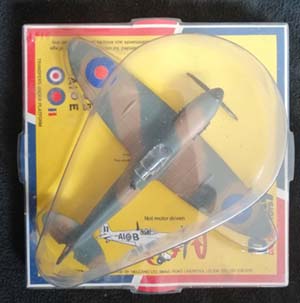
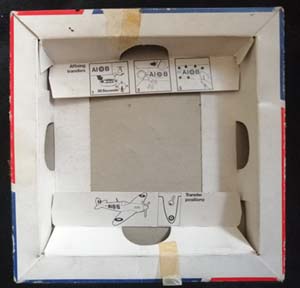
|
Vintage Dinky Spitfire
In Original Box (No
9 Pg 1 Misc) Here is a stunning vintage dinky
model of the MK I/II Spitfire.
Usually the top cover turns
yellow but this one has been kept out of the light and is
still clear. It has never been removed from its box.
Click on picture to enlarge
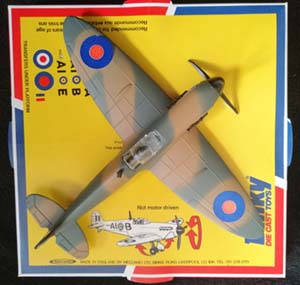
£250


|
|
Click on pictures to
enlarge
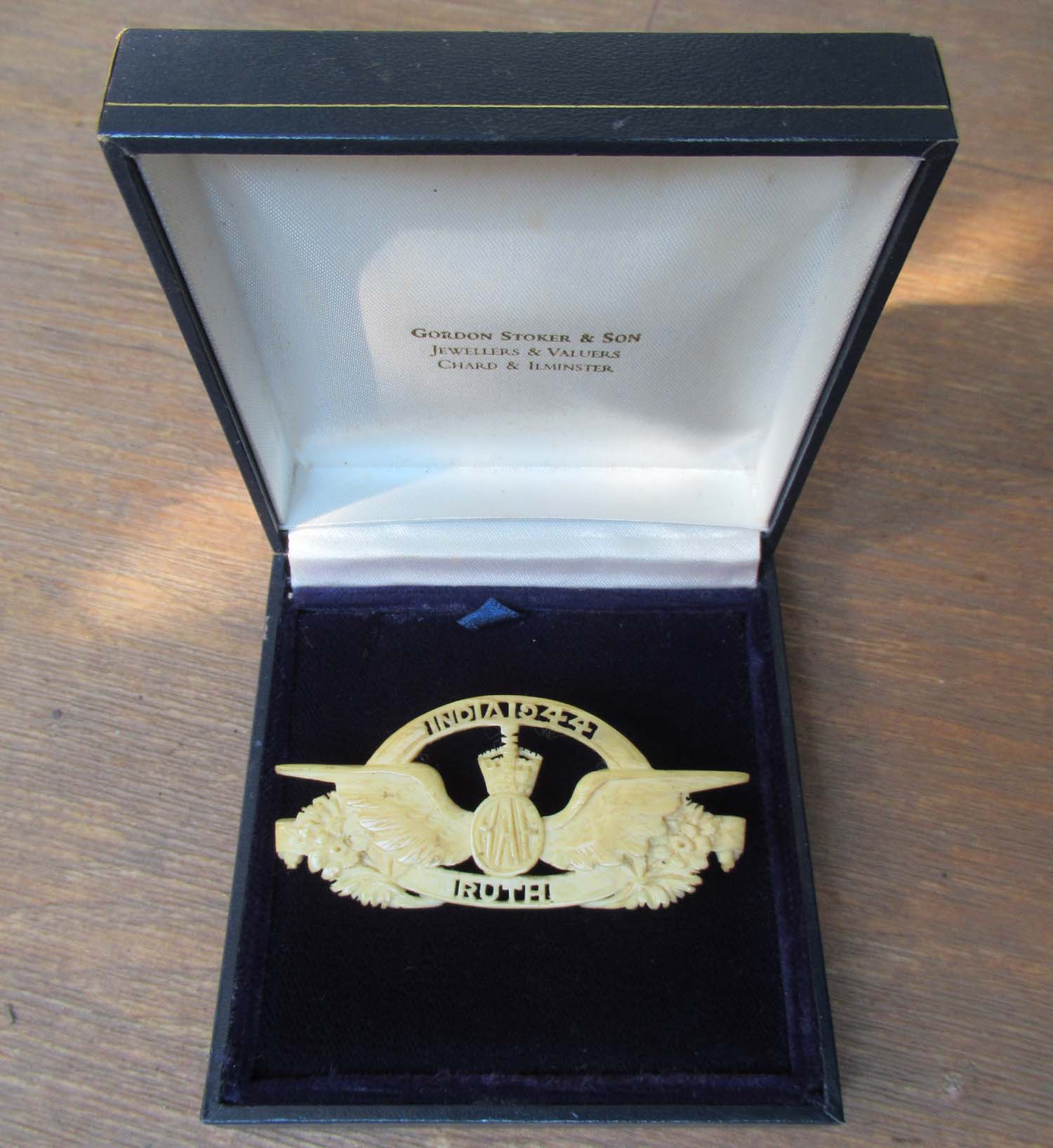 |
Sweetheart Badge
India 1944 (No 16 Pg 1 Misc)
This is a lovely piece made from
Ivory. They were brought by members of the R.A.F for their
wives or girlfriends back home.
It is from India and is
dated 1944 and the name inscribed into the bottom of the
badge is Ruth.
Click on pictures to
enlarge
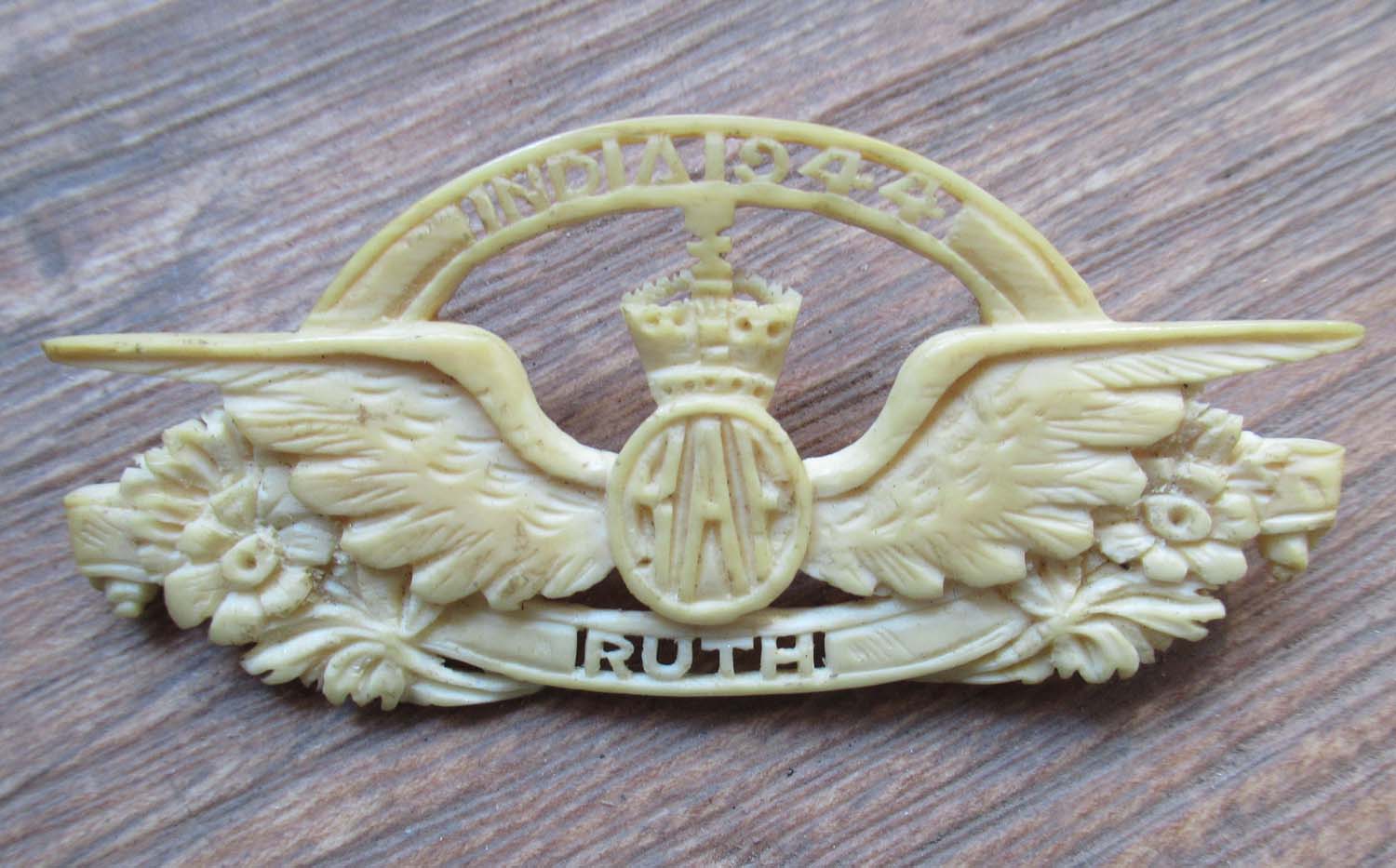
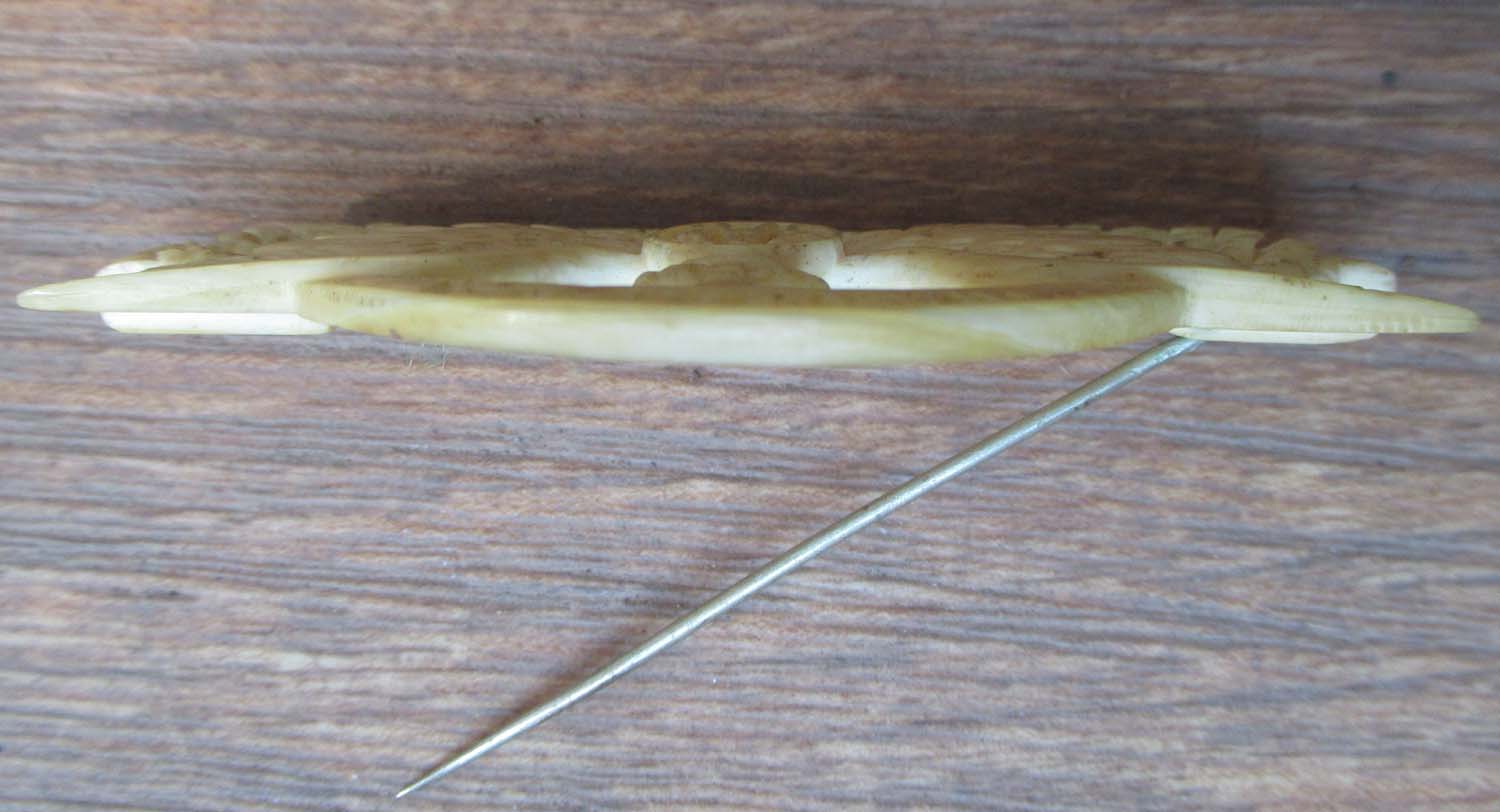
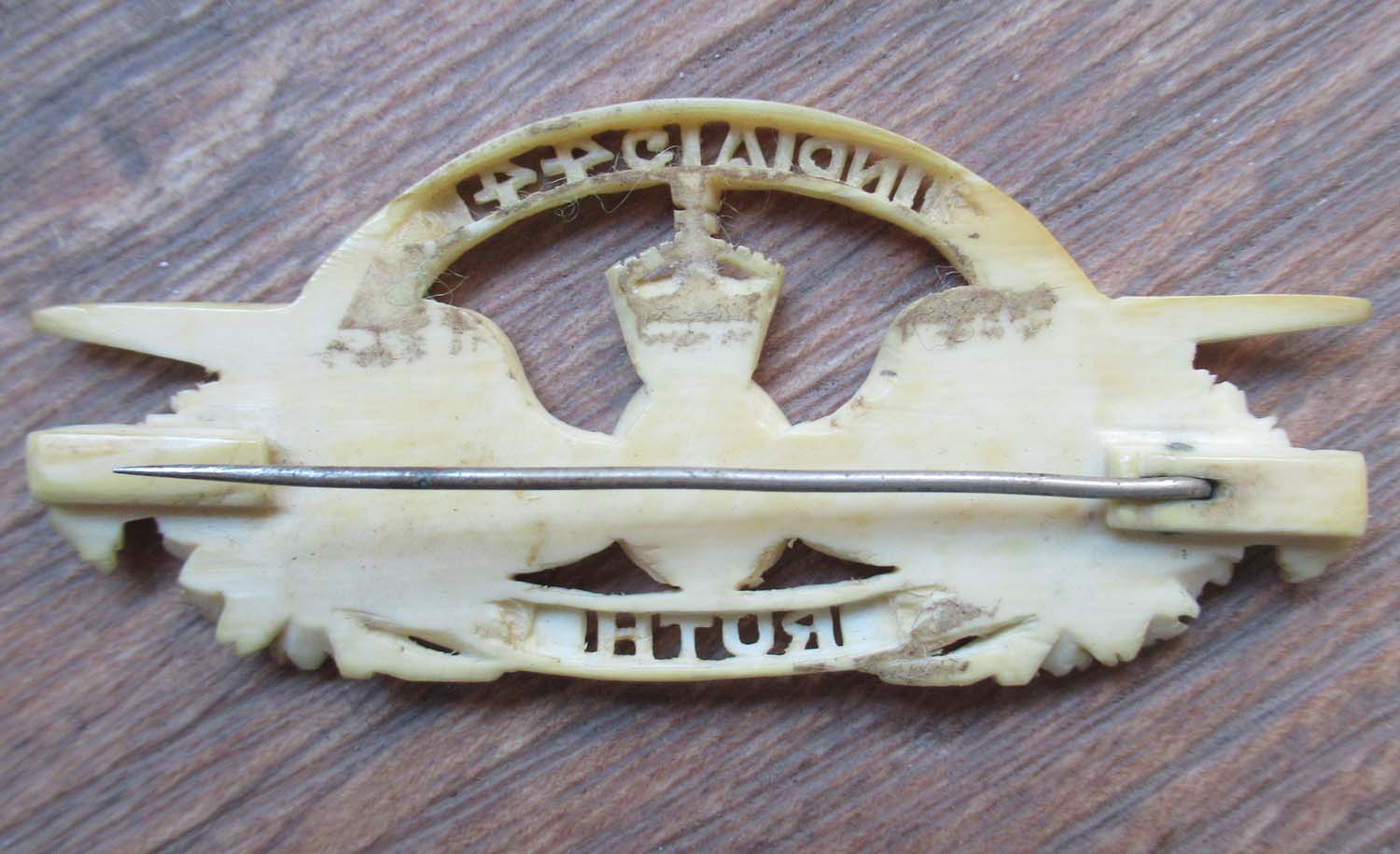
£60


|
|
Click on pictures to
enlarge
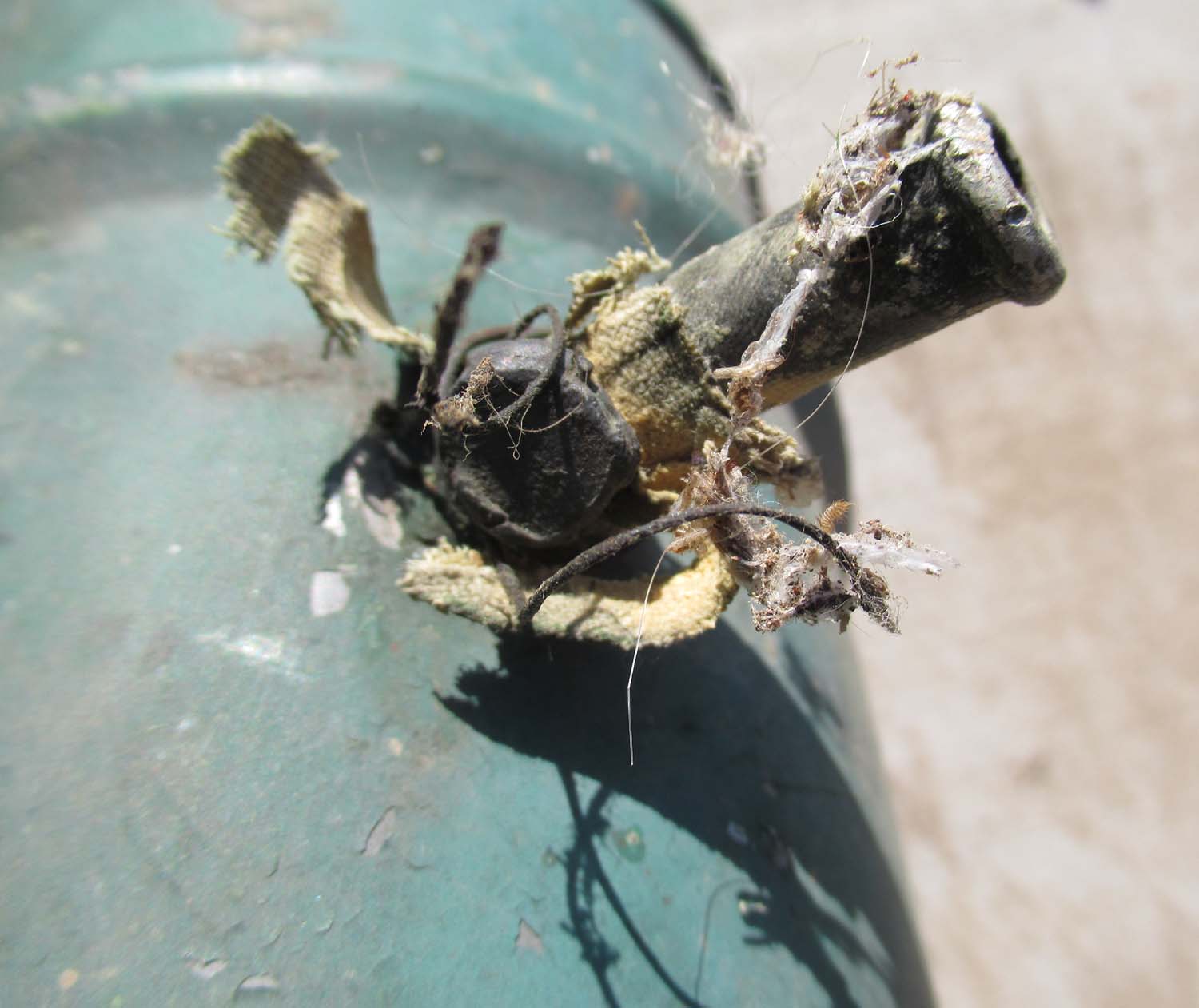
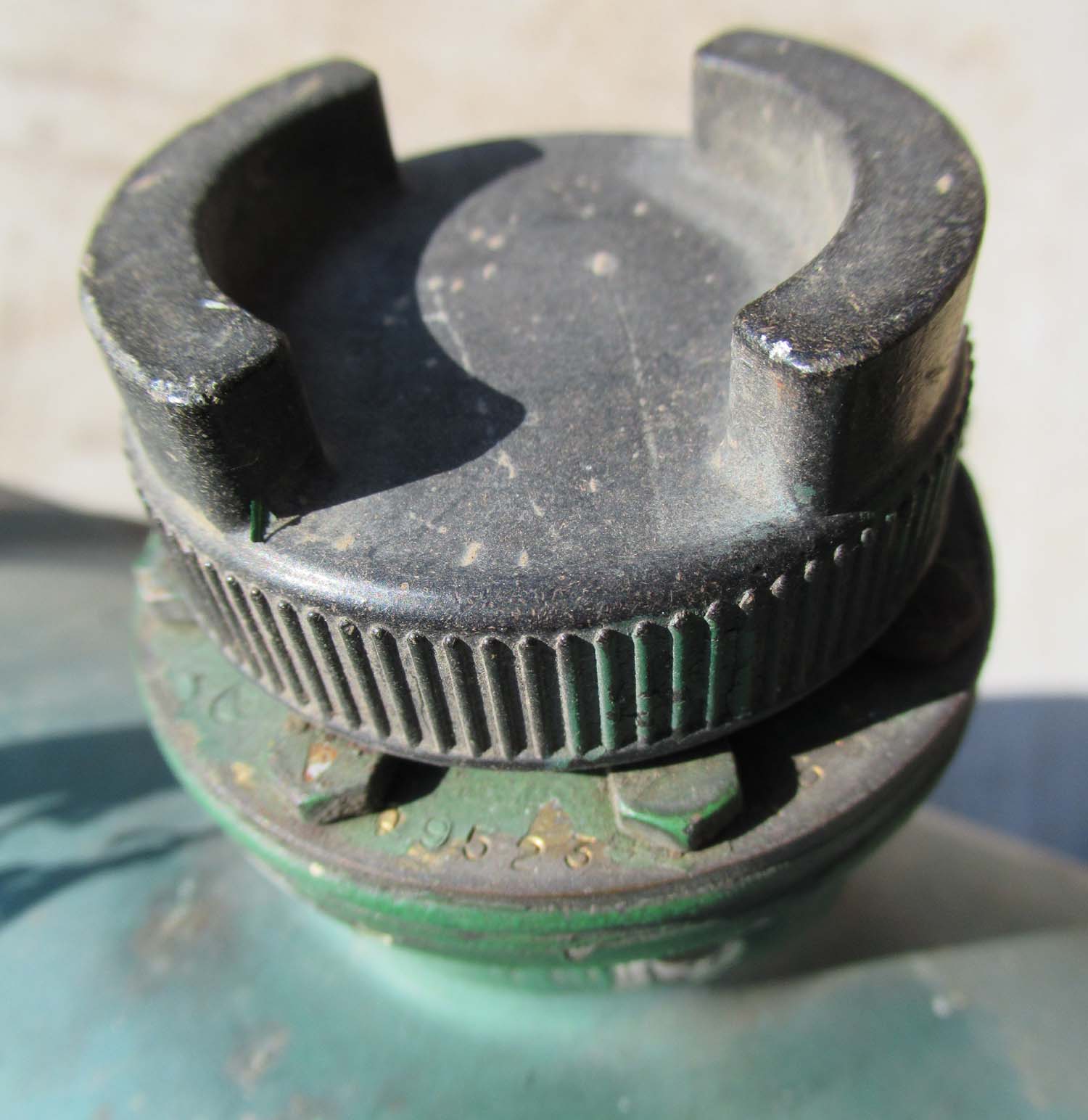
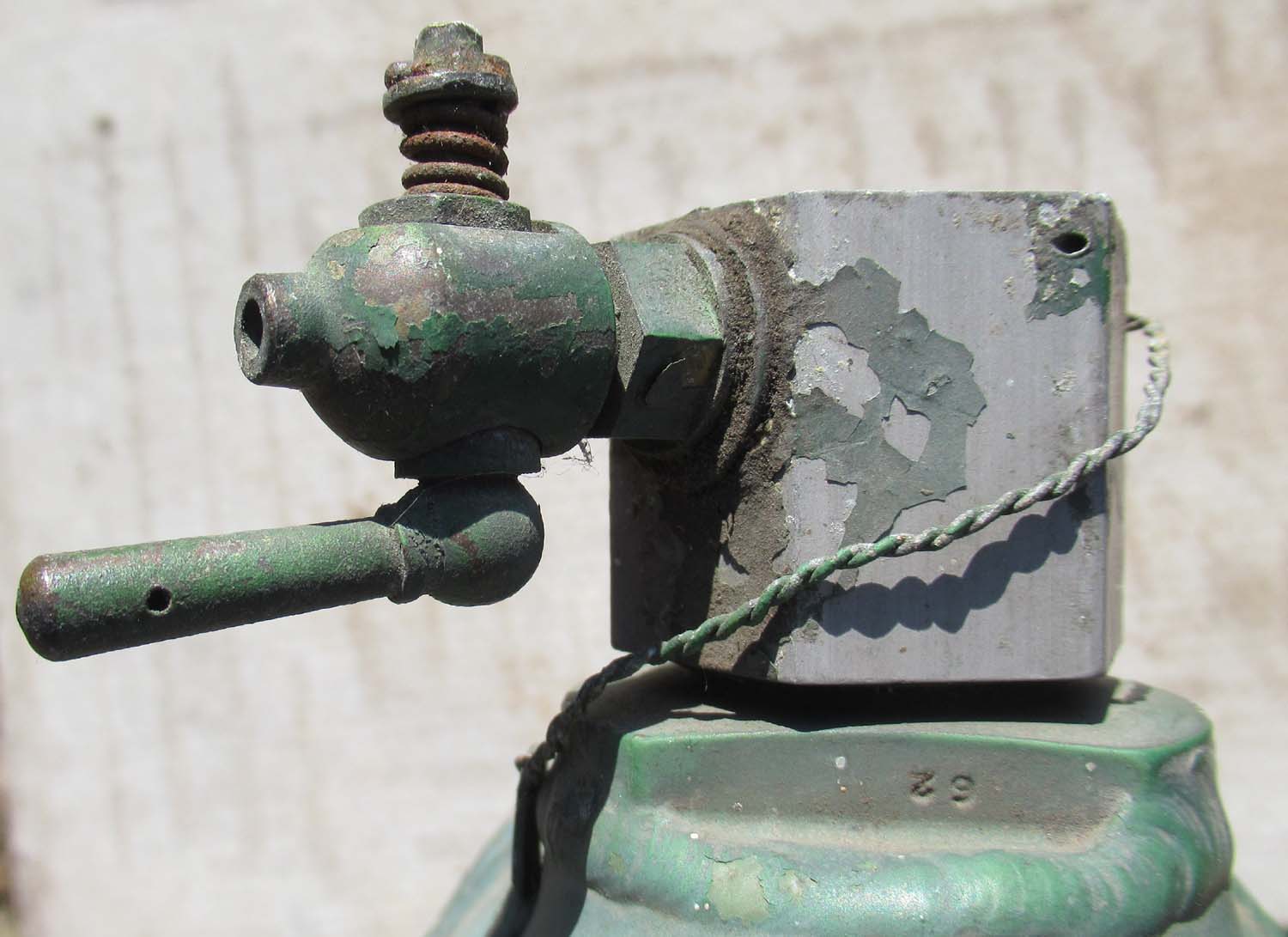 |
De Havilland
Mosquito Drinking Water Tank (No 21 Pg 1 Misc)
Here we
have a three gallon drinking water tank from a DeHavilland
Mosquito.
This is
is a nice piece in good condition with the filler cap and
the original tap.
Ref No:
Q98360KISS B4
Click on pictures to
enlarge
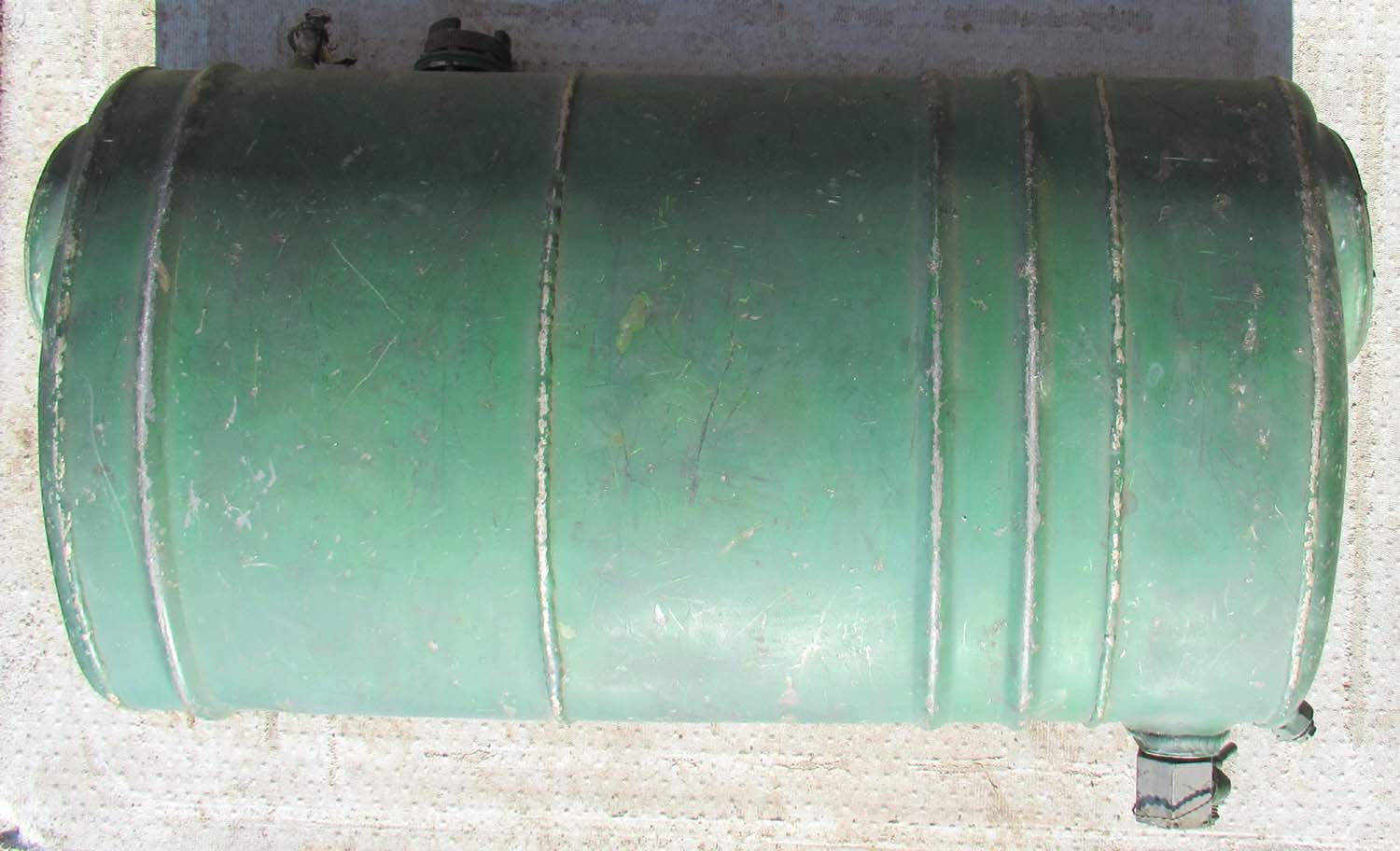
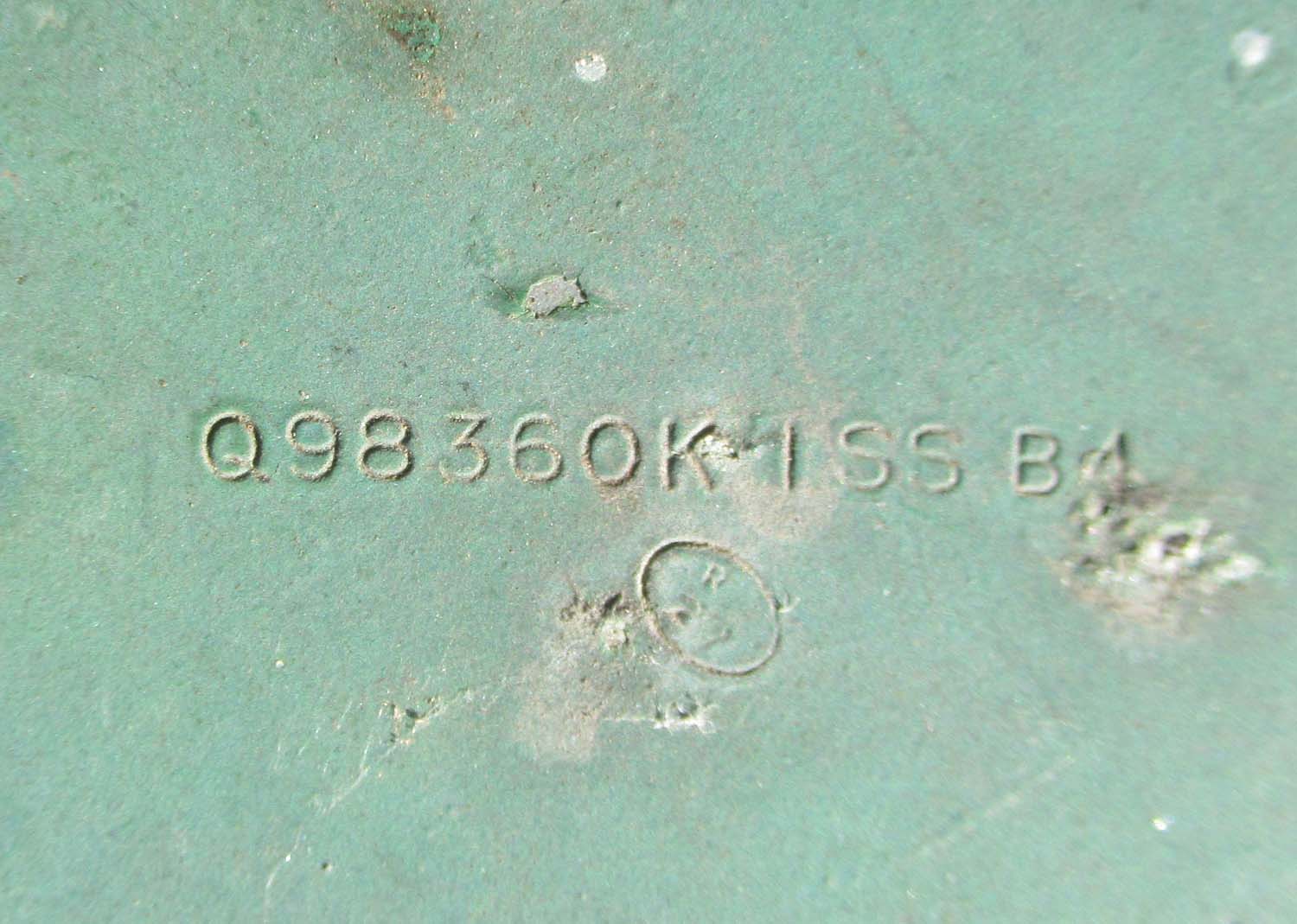

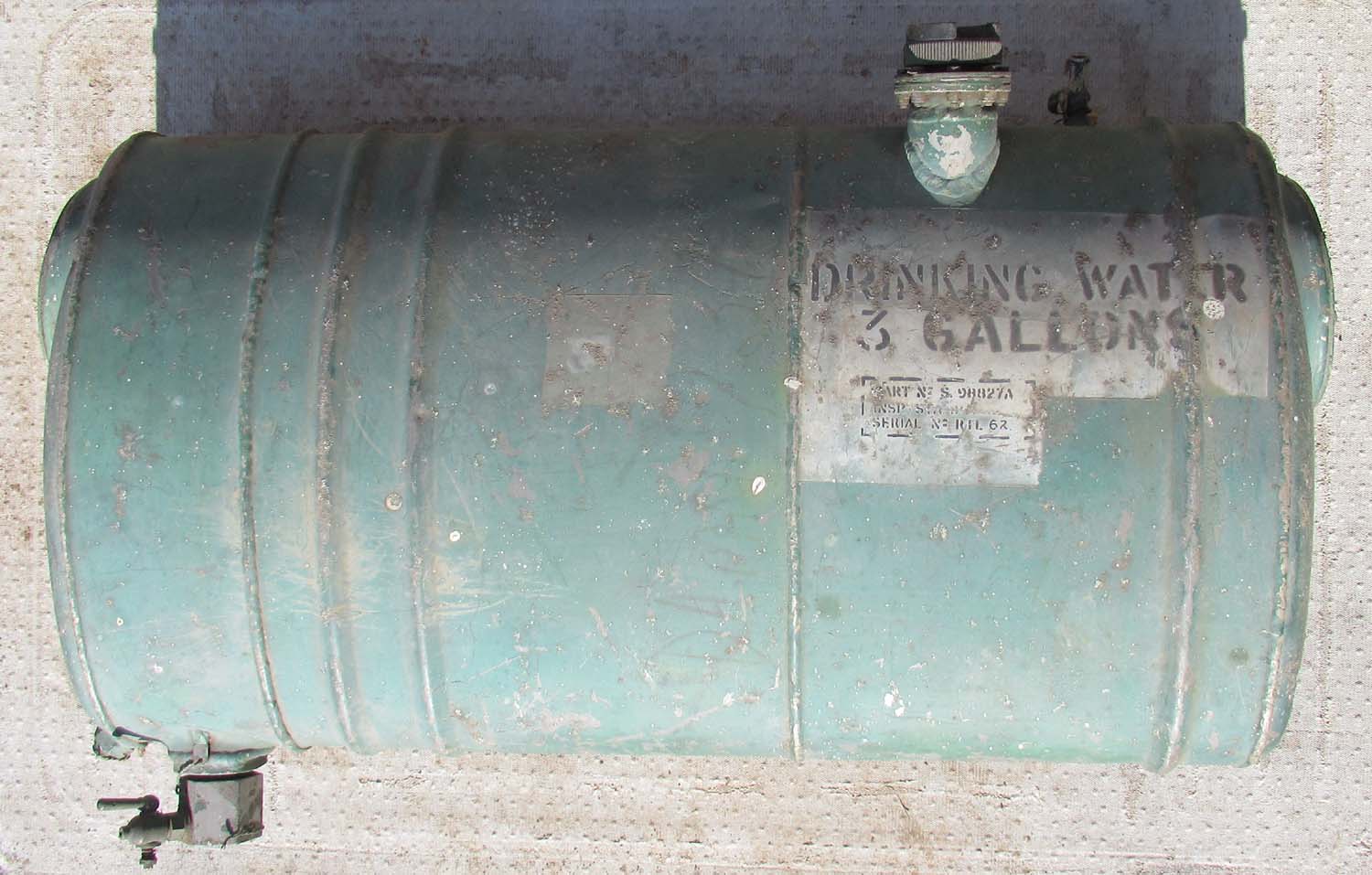
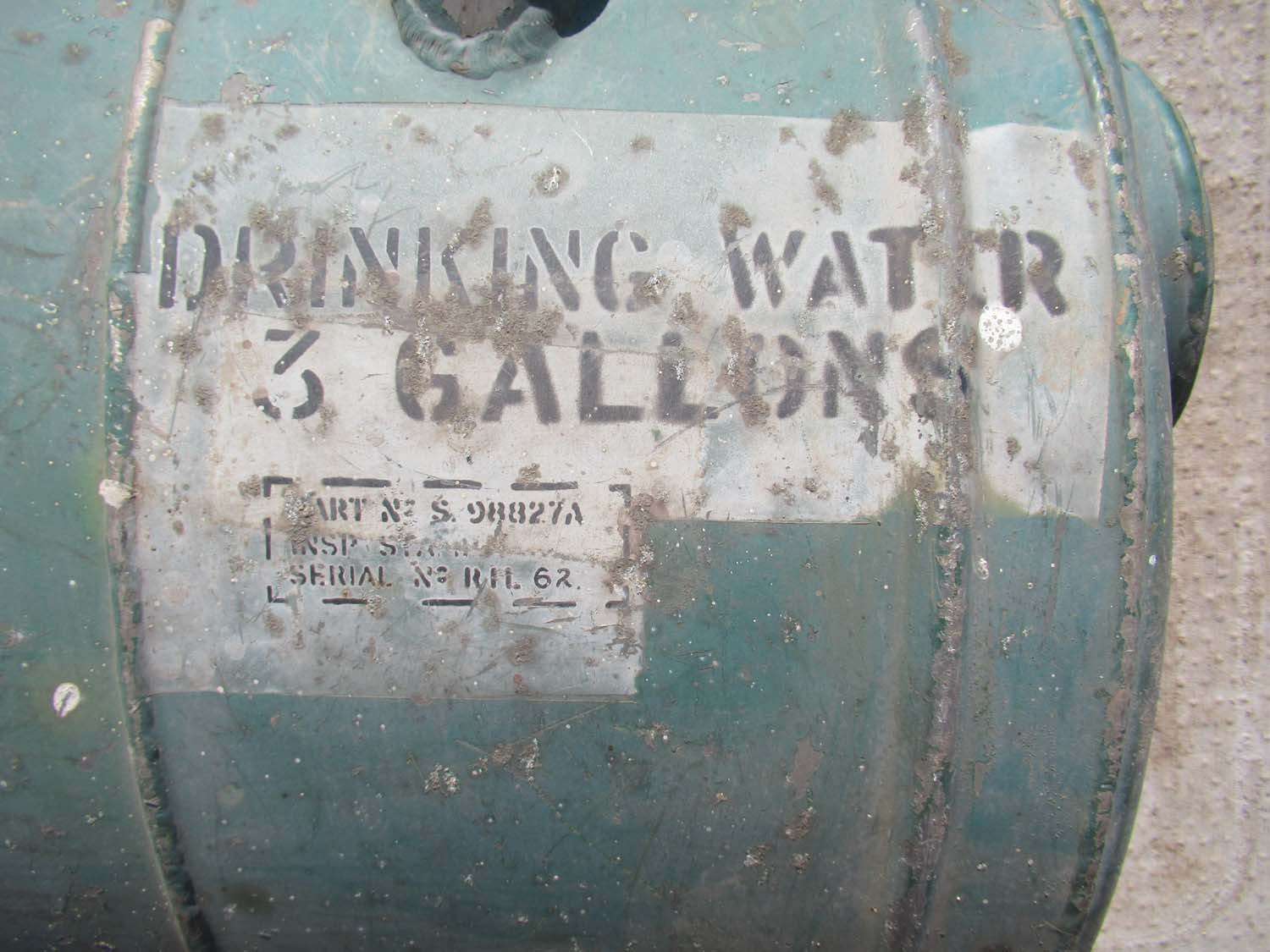
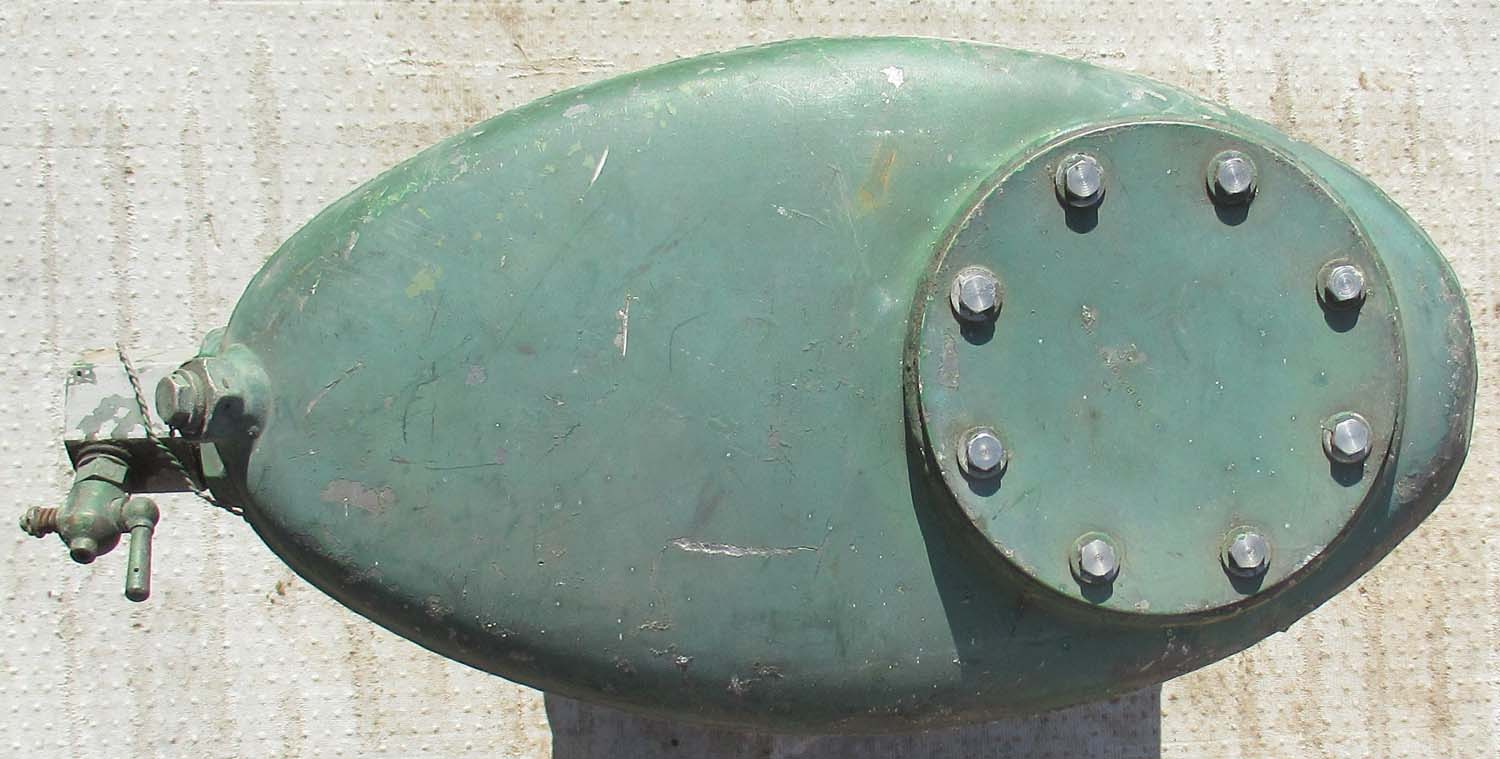
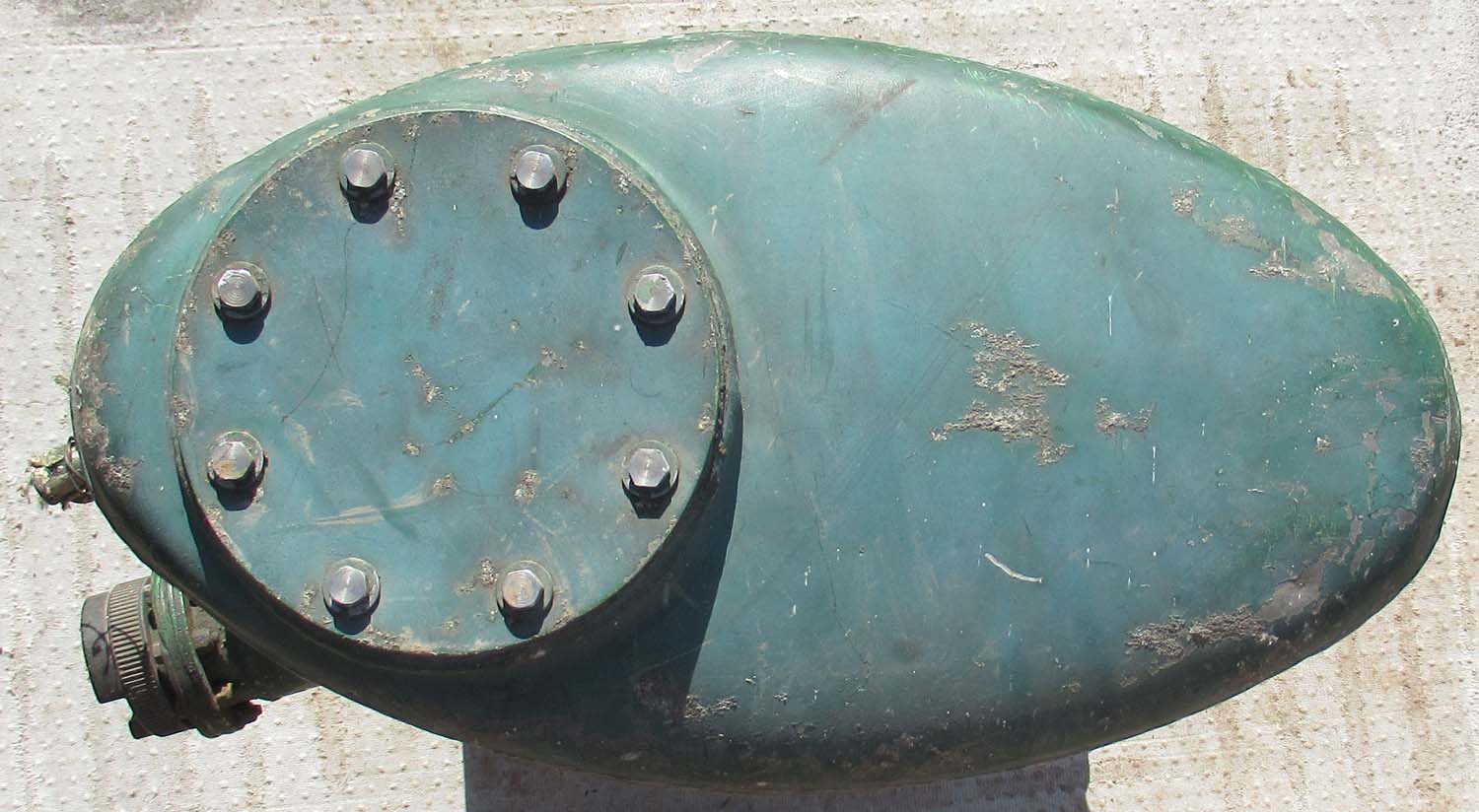
£295


|
|
Click on
picture to enlarge
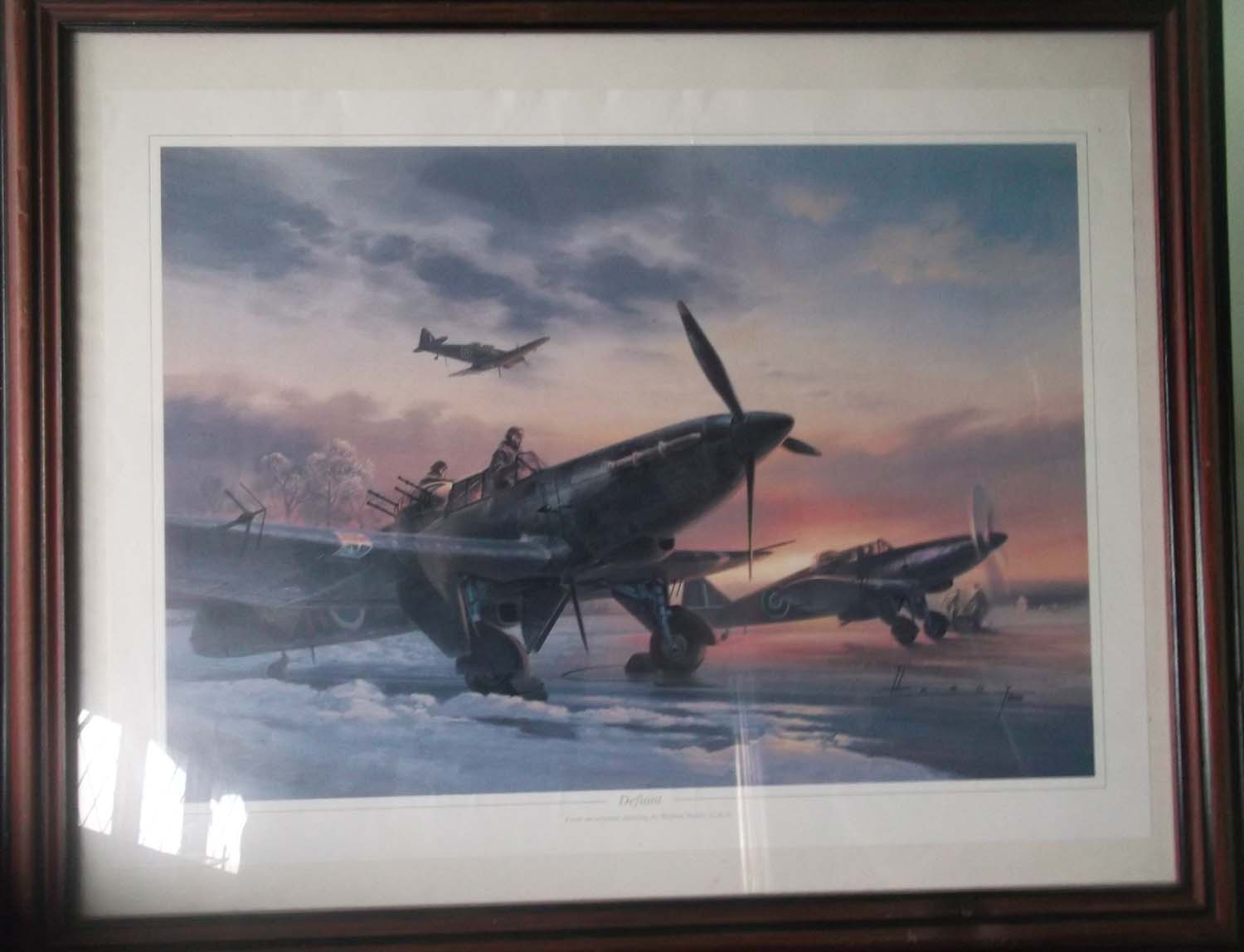 |
Bolton Paul Defiant Night
Fighter Print
(No 33 Pg 1 Misc)
A stunning framed print of the
Bolton Paul Defiant night Fighter from an original painting
by Wilfred Hardy.
£125


|
|
Click on
pictures to enlarge
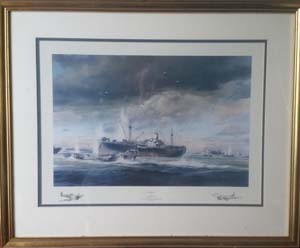
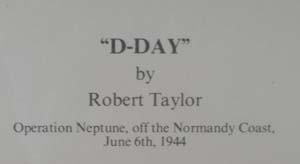
|
Framed Robert
Taylor 'D-Day' (No 32 Pg 1 Misc)
Here we have a framed Robert Taylor
print
depicting Operation Neptune on June 6th 1944.
Robert Taylor’s portrayal captures the very essence of that
Herculean battle on the first day. The painting contains
over 30 craft of all types and is dominated by one of the
many large transport ships, lowering her landing craft under
bombardment from shore batteries. Barrage balloons flying,
this massive fleet sailed into the teeth of the German
defences, to land its invasion forces against all odds.
Each print carries
two small prints of pencil ‘remarque’ drawings on the tint
border, depicting a DC3 Dakota dropping paratroops, and a
patrolling Spitfire.
£175


|
|
Click on
pictures to enlarge
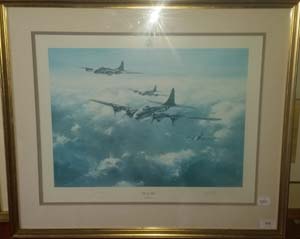
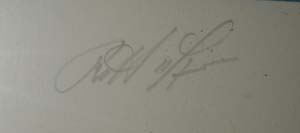

|
Framed Robert
Taylor 'Memphis Belle' (No 31 Pg 1 Misc)
Here we have a
limited edition, framed Robert Taylor print.
This has original signatures of
Robert Taylor and Col Bob Morgan, pilot of Memphis Belle.
This comes with a certificate of
authenticity.
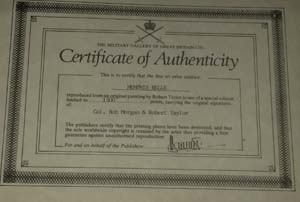
This print turns the clock back to World War
II when Colonel Bob Morgan and his crew took on the flak and
fighters of the Luftwaffe deep over enemy territory. Today
this famous bomber rests in more peaceful surroundings of
the West Memphis Airport, lovingly restored to her former
glory.
£295


|
|
Click on
picture to enlarge
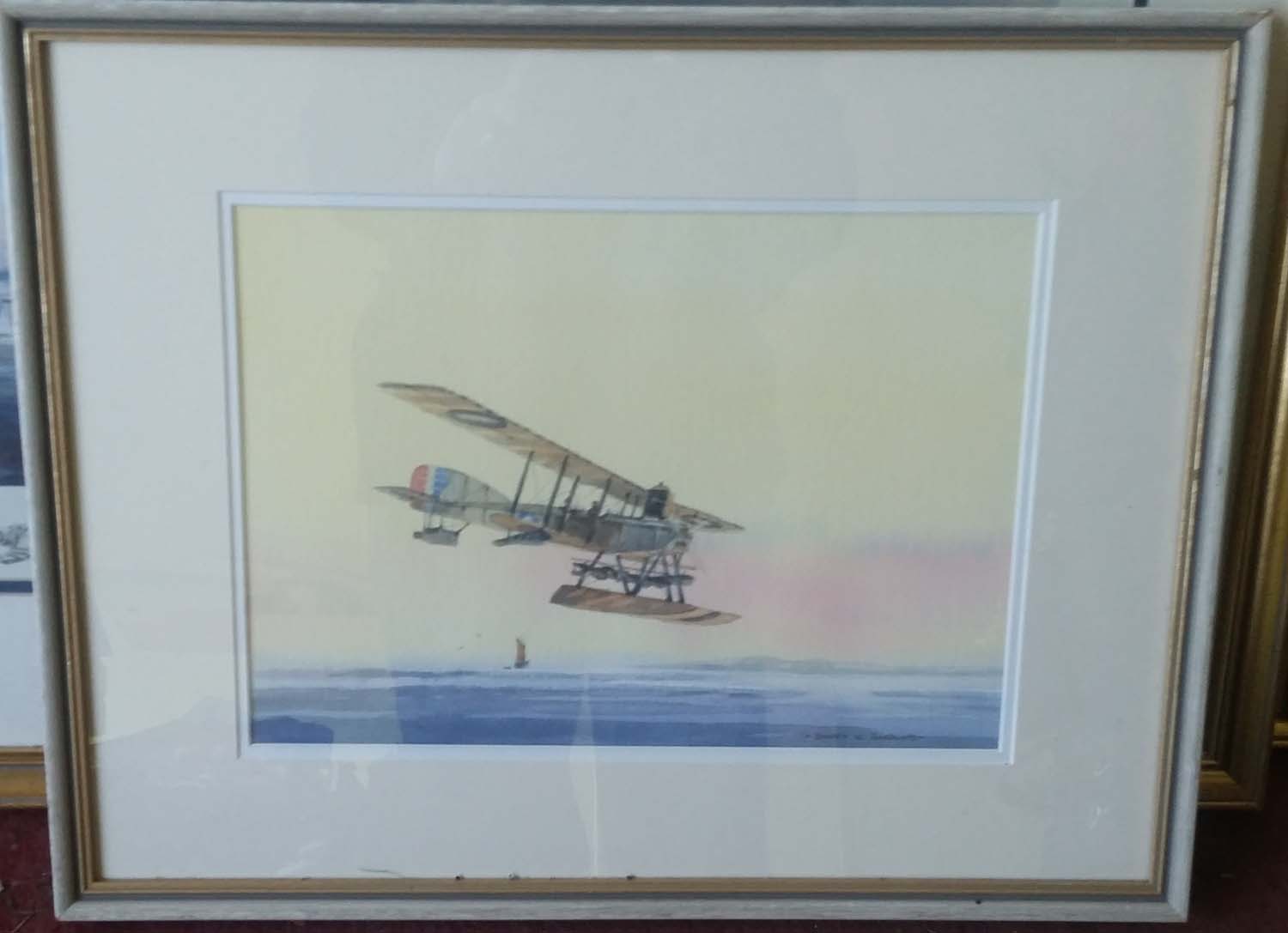 |
Study of a
Seaplane Water Colour (No 30 Pg 1 Misc)
Here we have a water
colour by Barry K Barnes.
This is signed by the artist and
framed.
£95


|
|
Click on
picture to enlarge
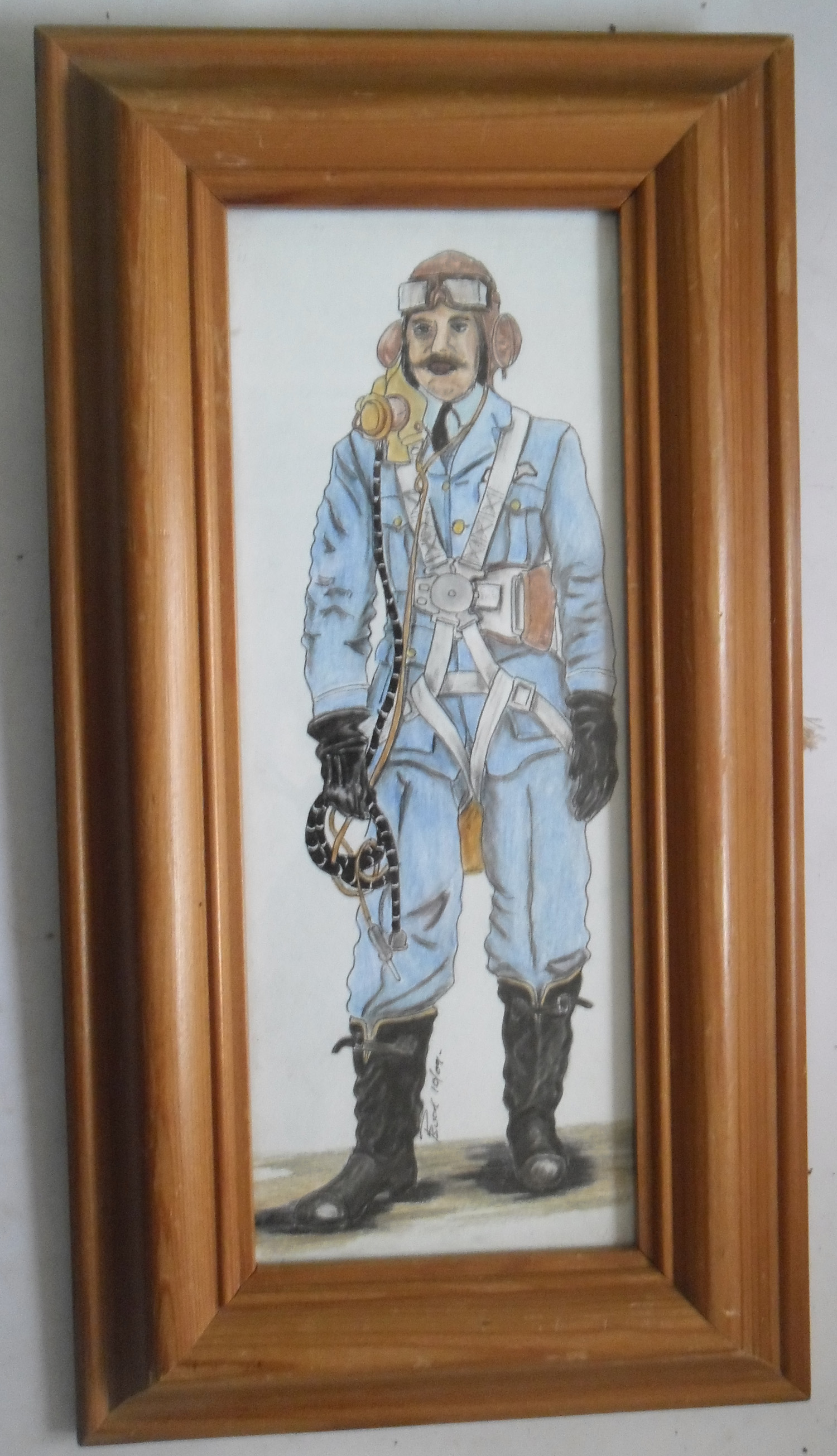 |
Original Fighter Pilot
Drawing
2 (No 29 Pg 1 Misc)
A stunning original drawing (not
a print ) a one off picture of an RAF fighter pilot signed
by the artist.
Measures 320mm by 170mm.
£75


|
|
Click on
picture to enlarge
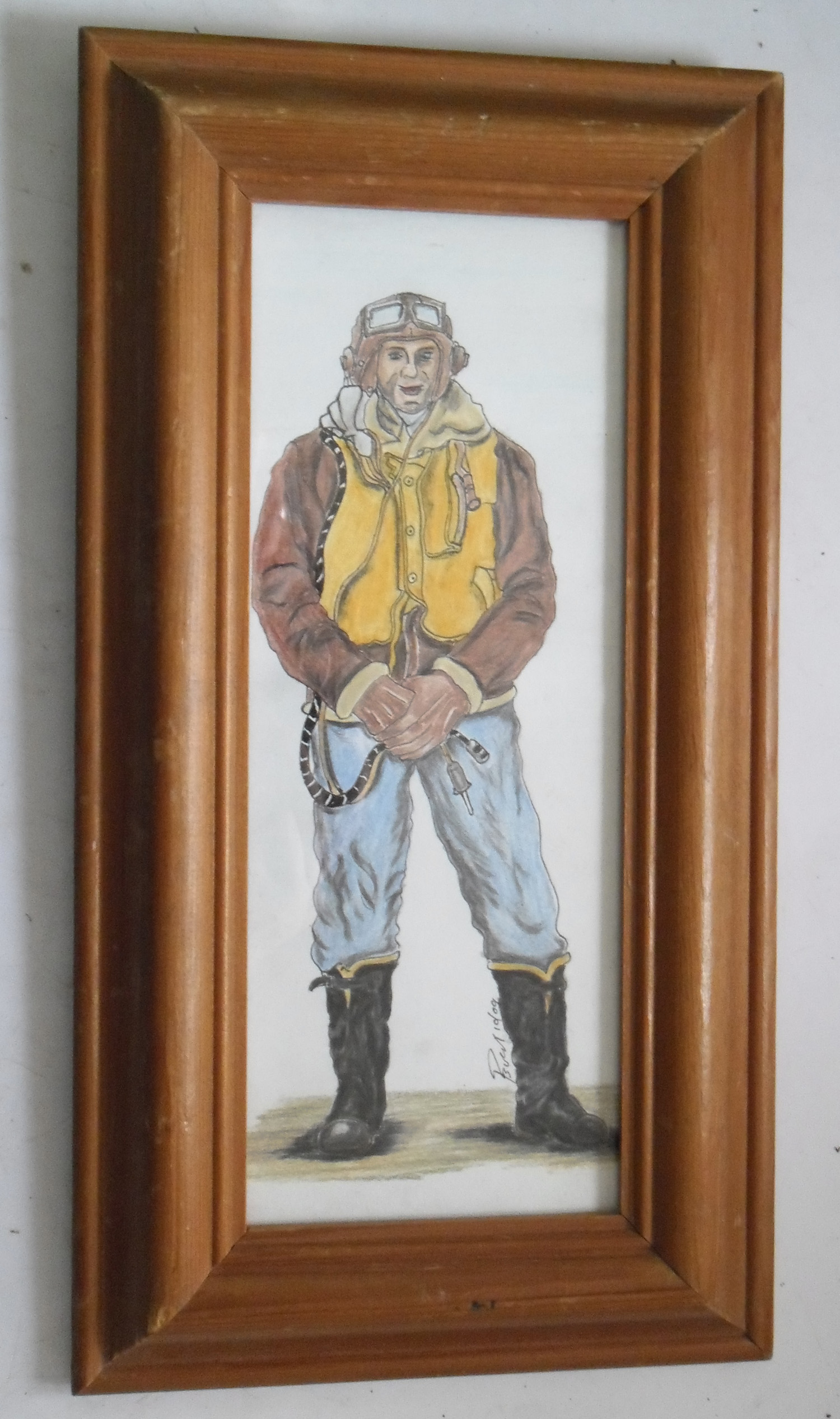 |
Original Fighter Pilot
Drawing 1 (No
28 Pg 1 Misc)
A stunning original drawing (not
a print ) a one off picture of an RAF fighter pilot signed
by the artist.
Measures 320mm by 170mm.
£75


|
|
Click on
pictures to enlarge
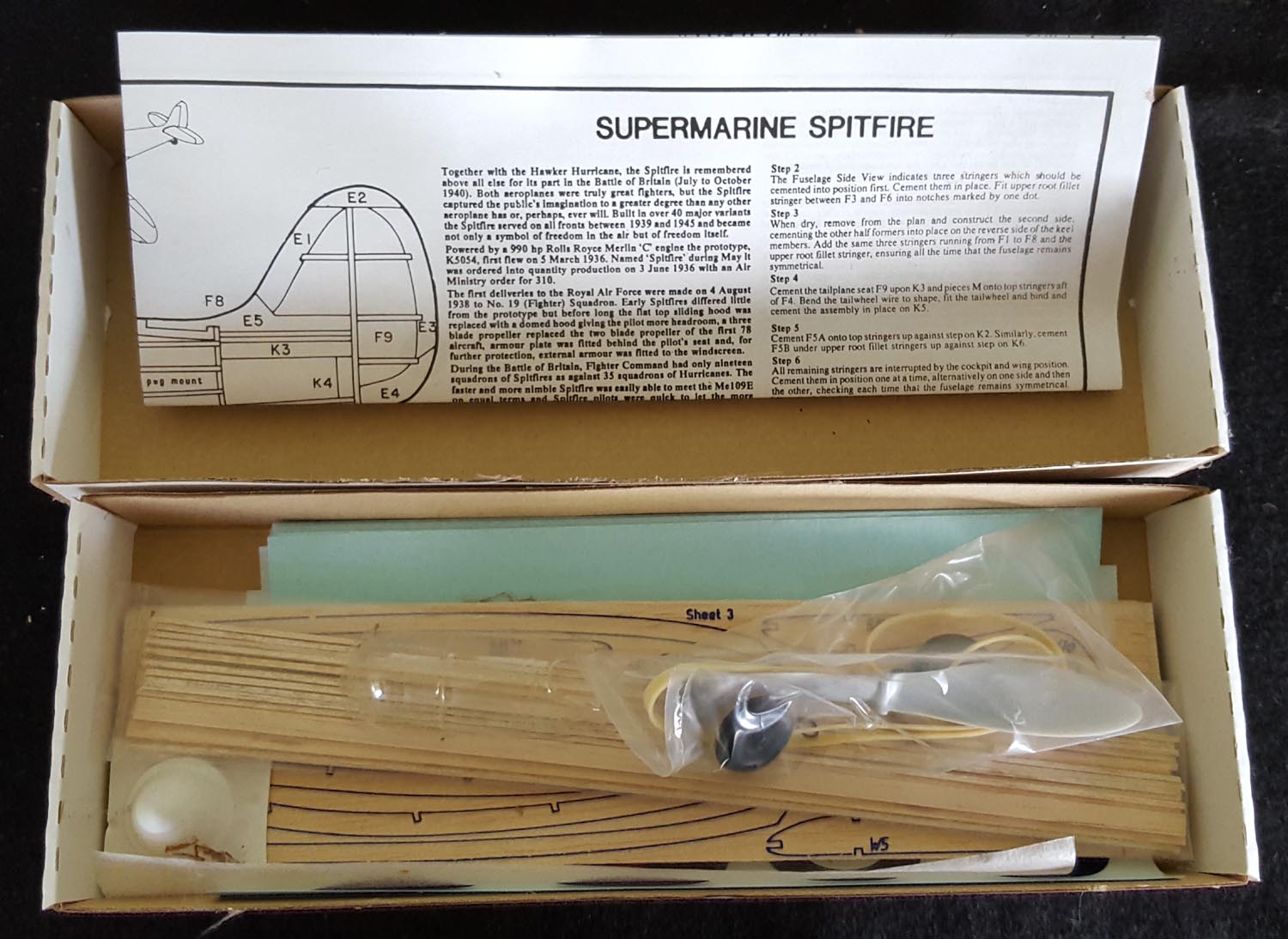
£35


|
Rubber Band Powered Spitfire
2 (No 27 Pg 1 Misc)
A traditional balsa wood kit of
a Spitfire with a 18.4" wingspan. Tissue covered and powered
by an elastic band.
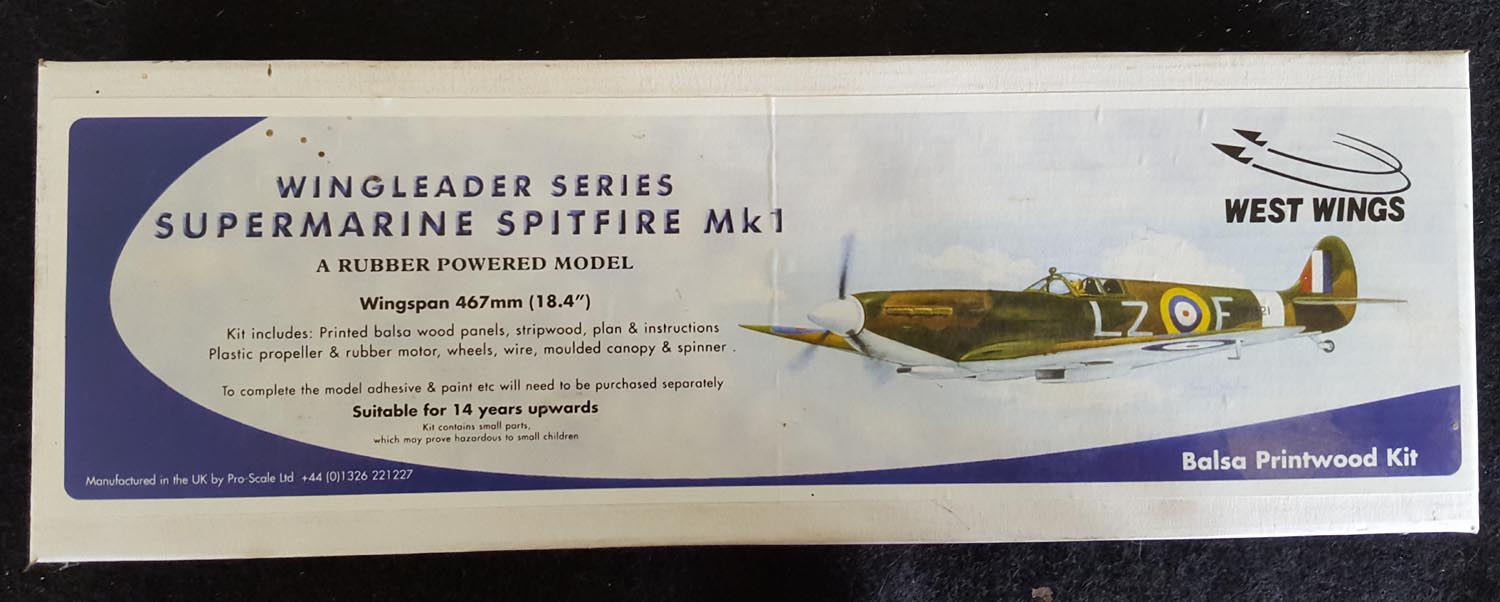
|
|
Click on
pictures to enlarge
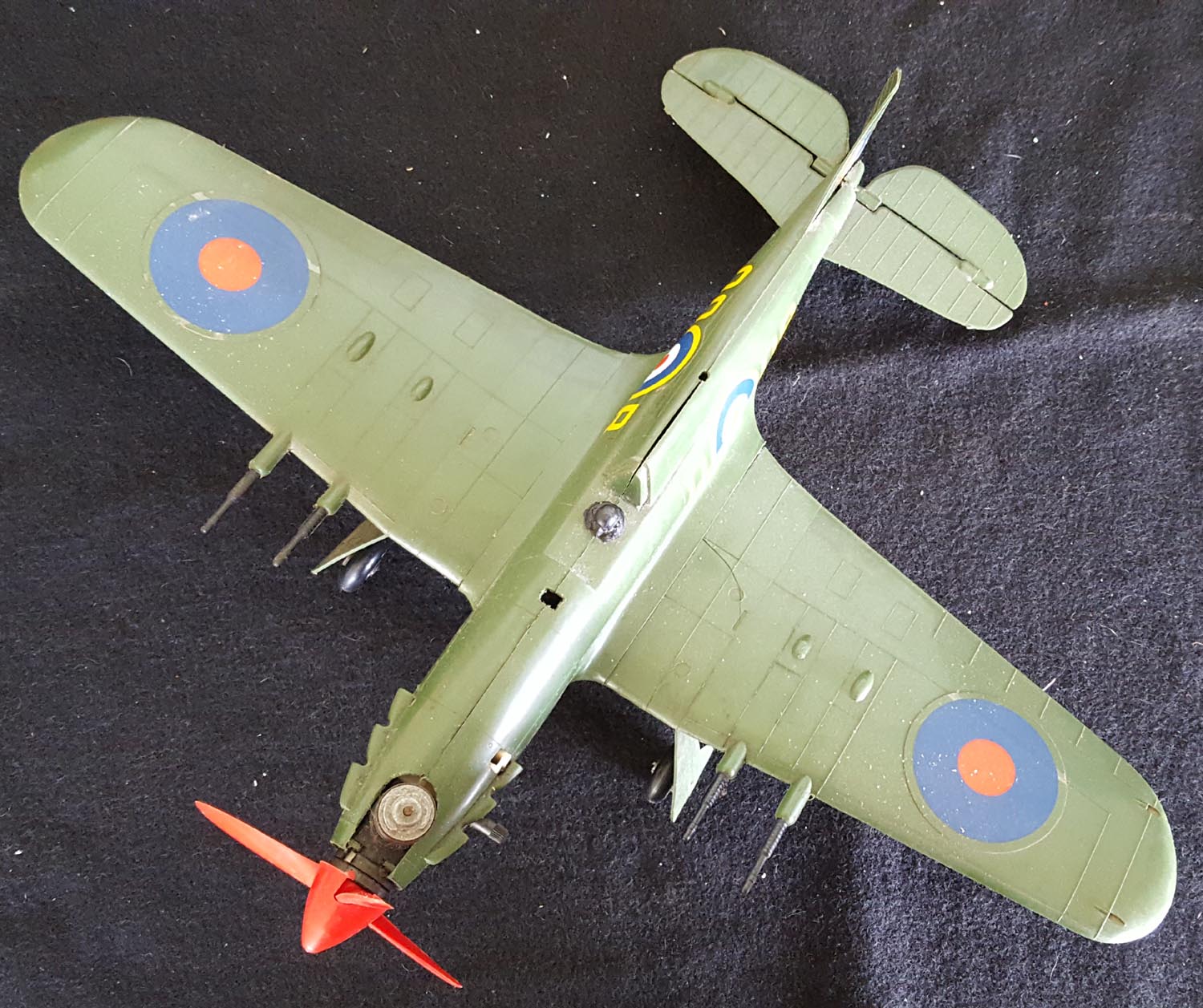
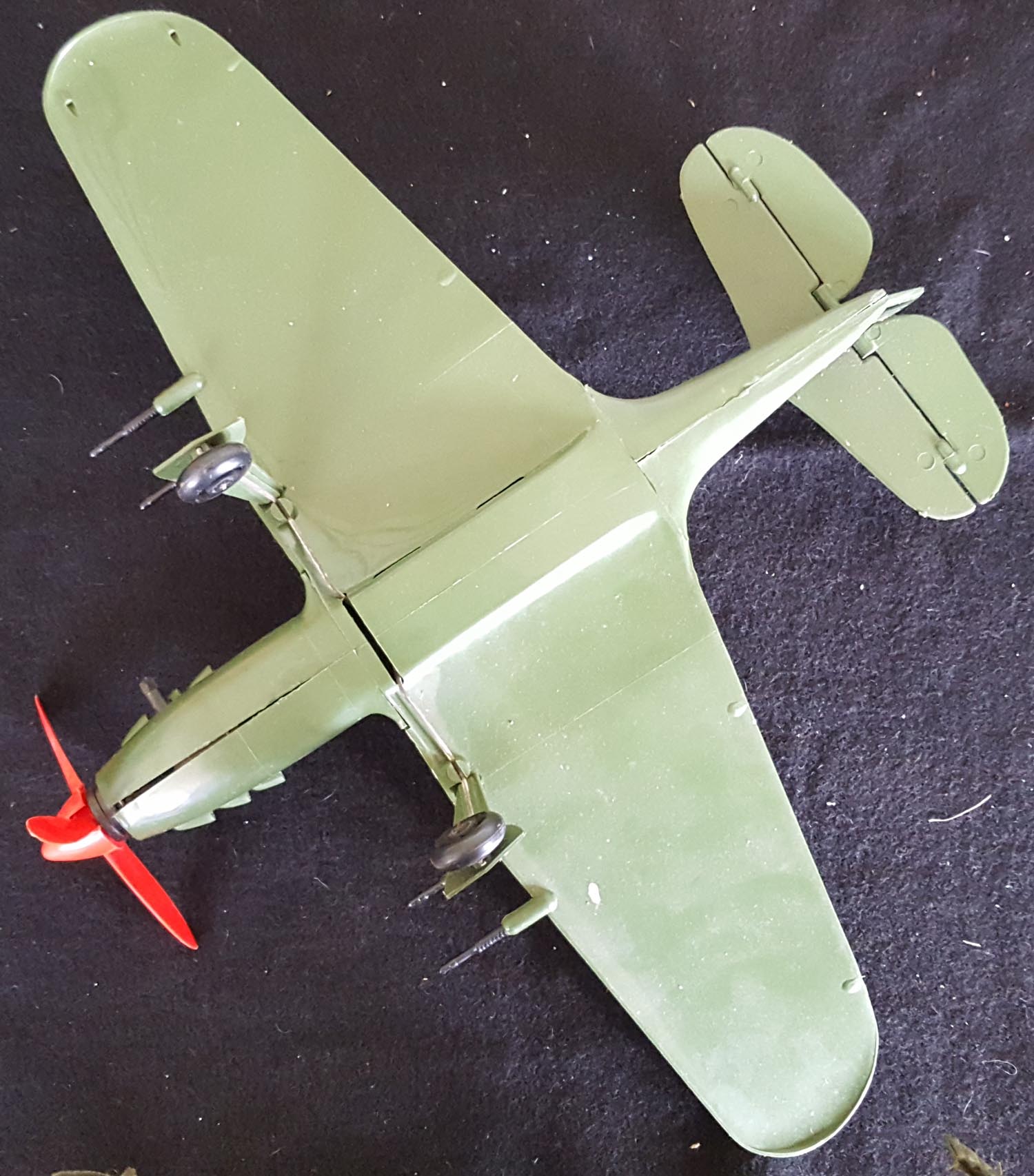 |
Kiel Kraft Glow fuel
Powered Control Line Hurricane
(No 25 Pg 1 Misc)
This is a classic Kiel
Kraft Hurricane to be flown by control, line made some time
in the 1970s. It is complete except for its missing canopy.
The engine turns over and even its original recoil spring
starter works although I never used it myself . The
fuel and even the glow plugs are still available today and
if you have the patience to get it started it has an
immense amount of power for a tiny engine.
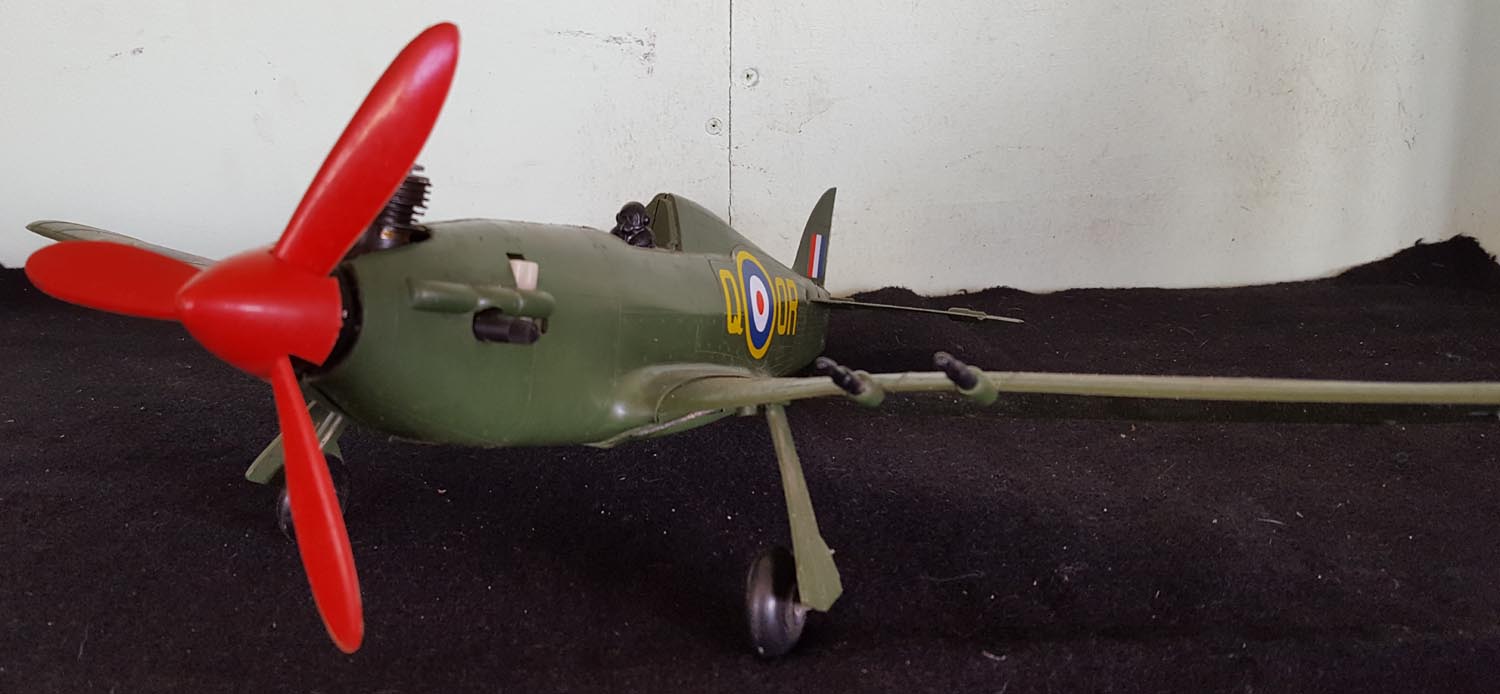
£125


|
|
Click on
pictures to enlarge
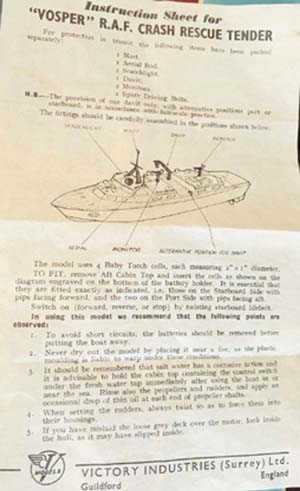 . .
£125


|
Vintage Model Vosper RAF Tender
(No 24 Pg 1 Misc)
Vintage Victory
Industries Vosper RAF Crash Tender believed to date to
the 1950's .
A Really nice clean example, looks
unused, clean battery compartment with instructions. Good
box (some minor age wear) with inner packaging.
The
brass rudders and props are really bright and turn
freely.
From looking at instructions there is a small
plastic push in aerial missing, the front plastic mast
has a bend from age - it has not been tested for
operation but is sold as untested.
Click on
pictures to enlarge
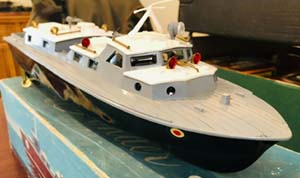
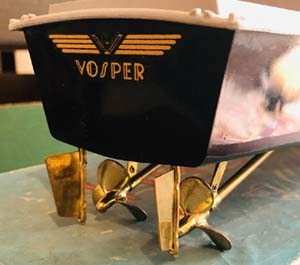
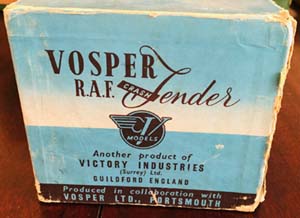
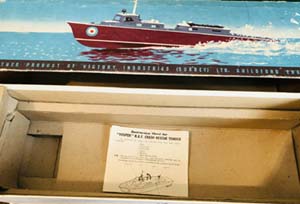
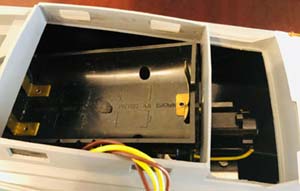
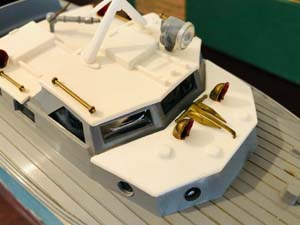
|
|
Click on
pictures to enlarge


|
Fire Extinguisher Bottle
(No 23 Pg 1 Misc)
Fire
extinguisher bottle used for putting out engine fire's
whilst airborne. This is a system fitted to most heavy
bombers including the Lancaster. This bottle is well used
and has many stamps. The earliest date I can find is 1943.
£85


Sorry surface
delivery only overseas.
|
|
Click on pictures to enlarge
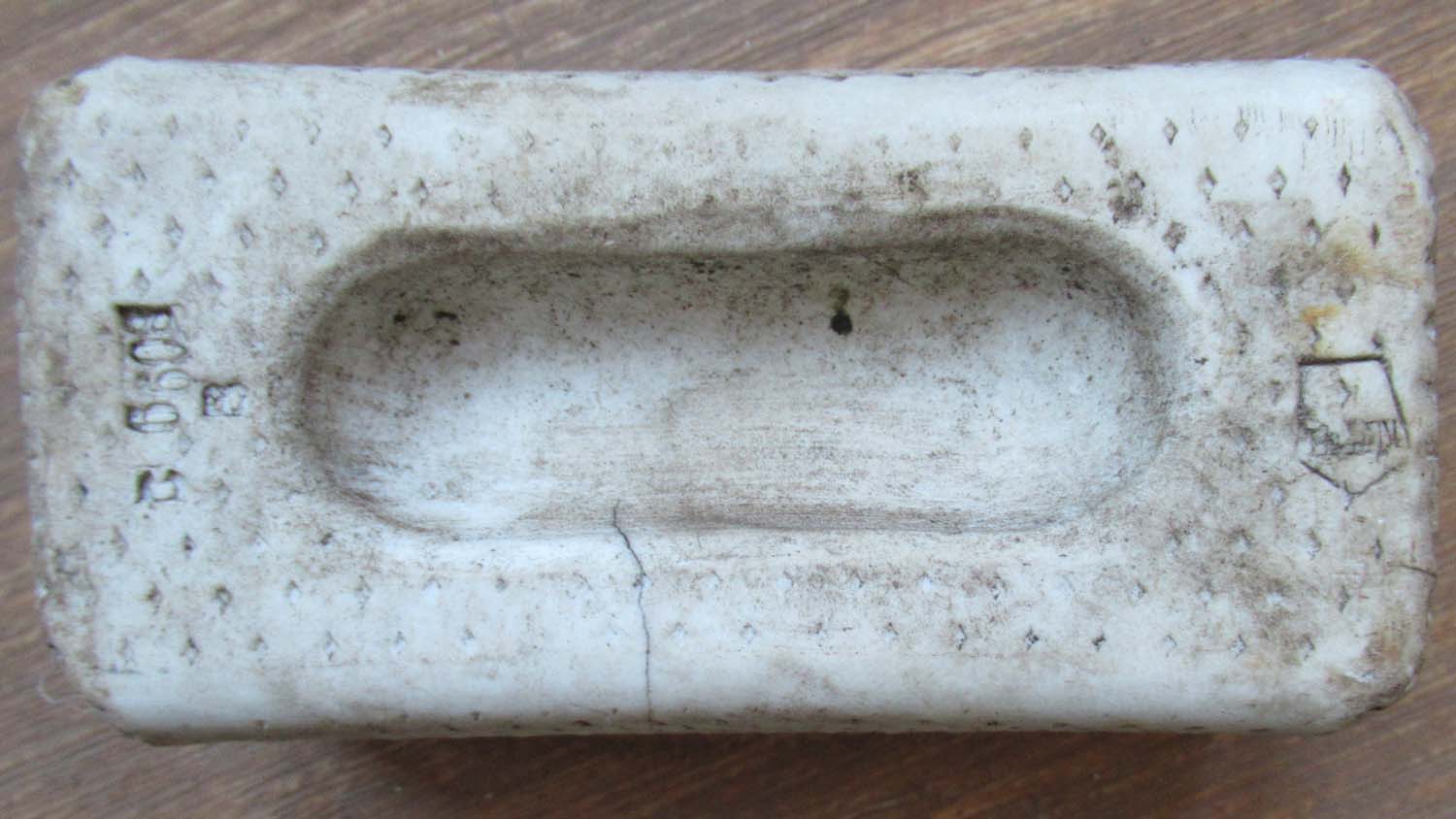
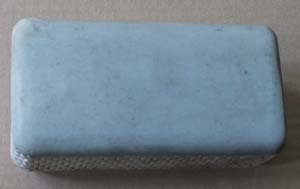
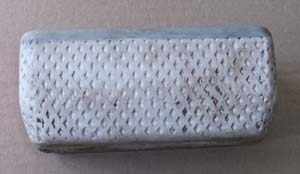
Focke Wulf
Fw-190A of Jagd Gruppe 1 at Deelen in 1943
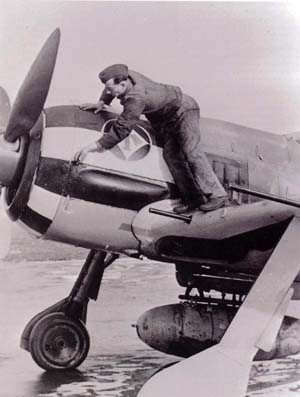
Deelen,
photographed on 17 Apr 1943 by a Spitfire of 541 Sqn RAF
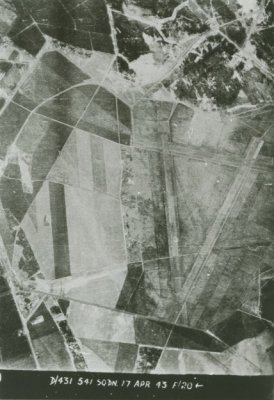 |
Deelen Airfield
Luftwaffe Landing Marker (No 22 Pg 1 Misc)
This is a stunning piece
ideal for using as a paper weight and makes a great
conversational piece. It has superb provenance and was
purchased on our trip to
Arnhem .
Click on pictures to enlarge
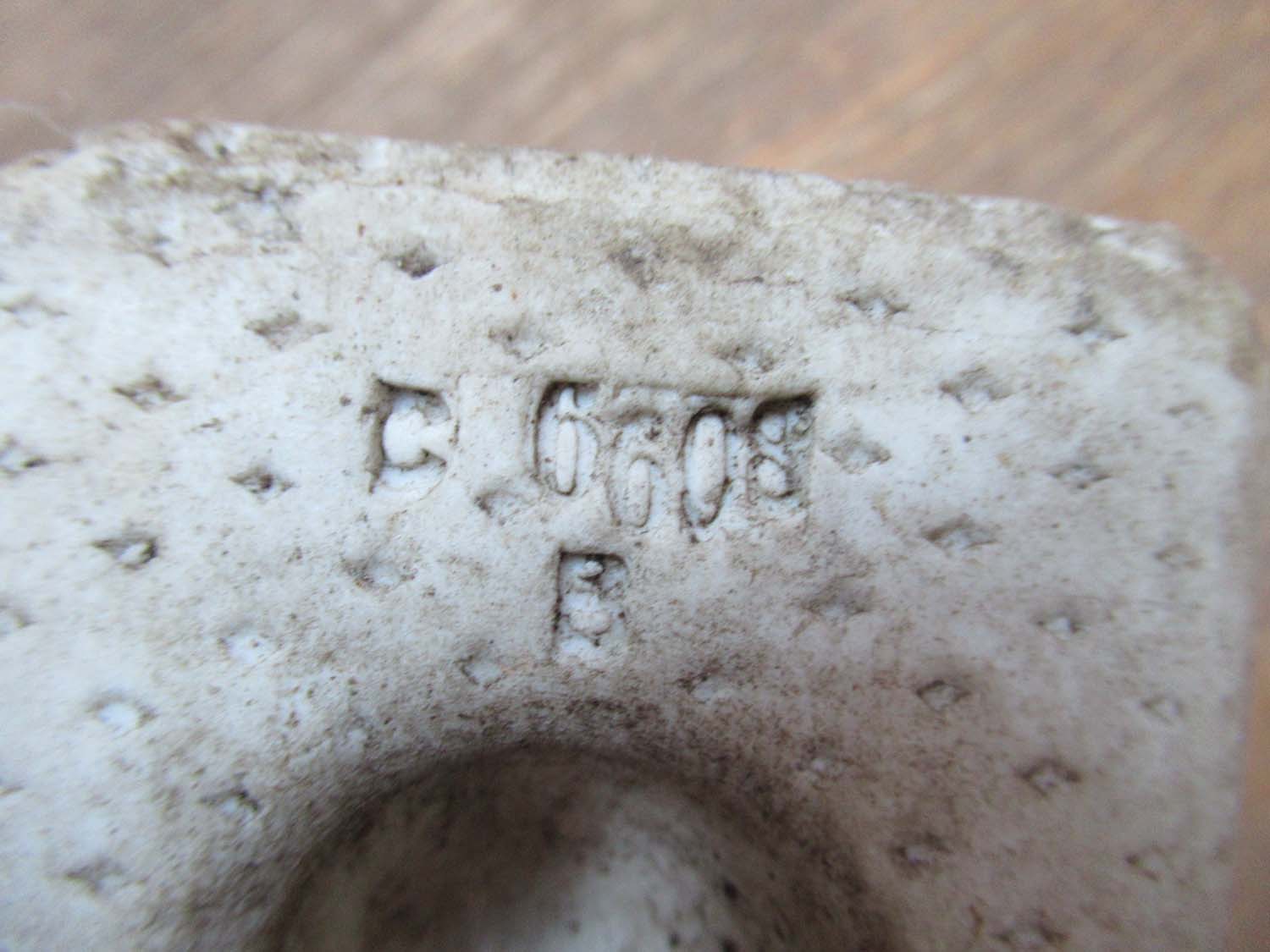
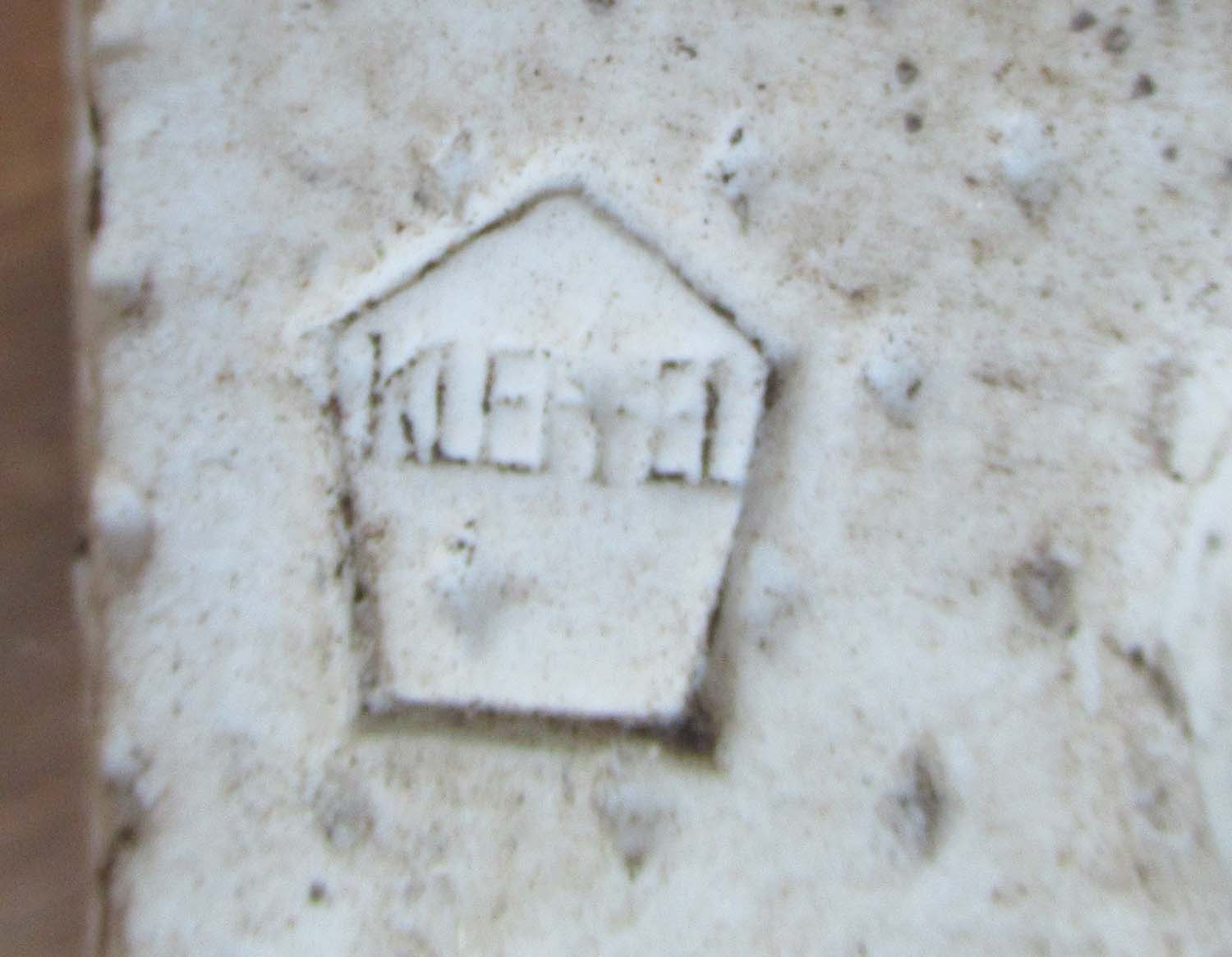
These
markers were placed along the runway to allow the night
fighters to find the runway. Of coarse to have anything
luminous would alert allied aircraft to the airfield and
mark it perfectly as a target so these small bricks were
painted with a light reflective material and illuminate only
when light from the landing lamps of the aircraft are
switched on. They were found in a pile on the edge of Deelen
airfield after the person that originally dug them up as a
child
recovered them some 60 years later. In
excellent condition a superb piece of history.
Airfield
Deelen (Dutch: vliegveld Deelen,
vliegbasis Deelen, or Militair
vliegterrein Deelen, also known
as Fliegerhorst Deelen, Deelen
Air Base or Military Aviation
Terrain Deelen, ICAO: EHDL) was
an air base north of Arnhem.
The airfield opened as an
auxiliary airfield in 1913 to
support flying operations of the
Luchtvaartafdeeling (LVA) in
Soesterberg.
Along with the airstrip at Nieuw
Milligen, it was intended to
suppport patrols along the
Dutch-German border during World
War I.
The original airfield was
situated north of the Vrijland
estate.
Its unpaved runways were
ploughed under in early 1940, in
order to disable them for
possible use by invading German
troops.
The German
occupying forces greatly
expanded the airfield to the
north, partly in the
municipality of Ede, and partly
in National Park "Hooge Veluwe".
They renamed the airfield "Fliegerhorst
Deelen" (code named Alster) and
built an 'A'-shaped runway
system and facilities, adhering
to the most modern standards of
the Luftwaffe.
It included measures such as
bomb protection and far going
camouflage (the so-called "Heimatschuetz"
From 1942 the Fliegerhorst had
it's own railway connection, the
so called "bomb-line", which
connected the line
Arnhem-Utrecht with the
Fliegerhorst.
On the south side of the
airfield two storage halls and
loading and offloading platforms
were constructed.
A branch ran into the "Hooge
Veluwe" park, where fuel and
ammunitions were stored, another
branch split off to the
Grossraum-Gefechtsstand
"Diogenes", the German Air
Defense bunker (type Ceasar).
Between 1940 and 1945 the
following units were stationed
at Fliegerhorst Deelen:
4e Gruppe Jagdgeschwader 54 (Focke-Wulf
Fw 190)
3e Zerstörergeschwader
(Messerschmitt Bf 110)
2e Gruppe Nachtjagdgeschwader
(Junkers Ju 88)
4, 7 and 12 Flak Gruppe
In the build up to Operation
Market Garden (The "Bridge too
Far) the Fliegerhorst was bombed
several times, causing the
Luftwaffe units to leave the
airfield.
It remained open however, for
use as an auxiliary field, and
to store V-1 flying bombs.
By March 1945 all military
activities at the airfield had
come to a halt.
Deelen, photographed in
September 1944. A large number
of craters is visible on the
tracks, making it very clear
that German air operations could
no longer be performed from this
airfield
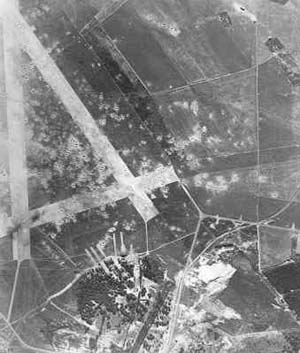
Between
1945 and 1950 the airfield was
used as storage area. Mostly
Canadian (Canada left some
37,000 vehicles, motorbikes and
trucks at the airfield),
American and English war
supplies but captured German
stocks could also be found.
£35 each
Several
available


|
|
Click on pictures to
enlarge
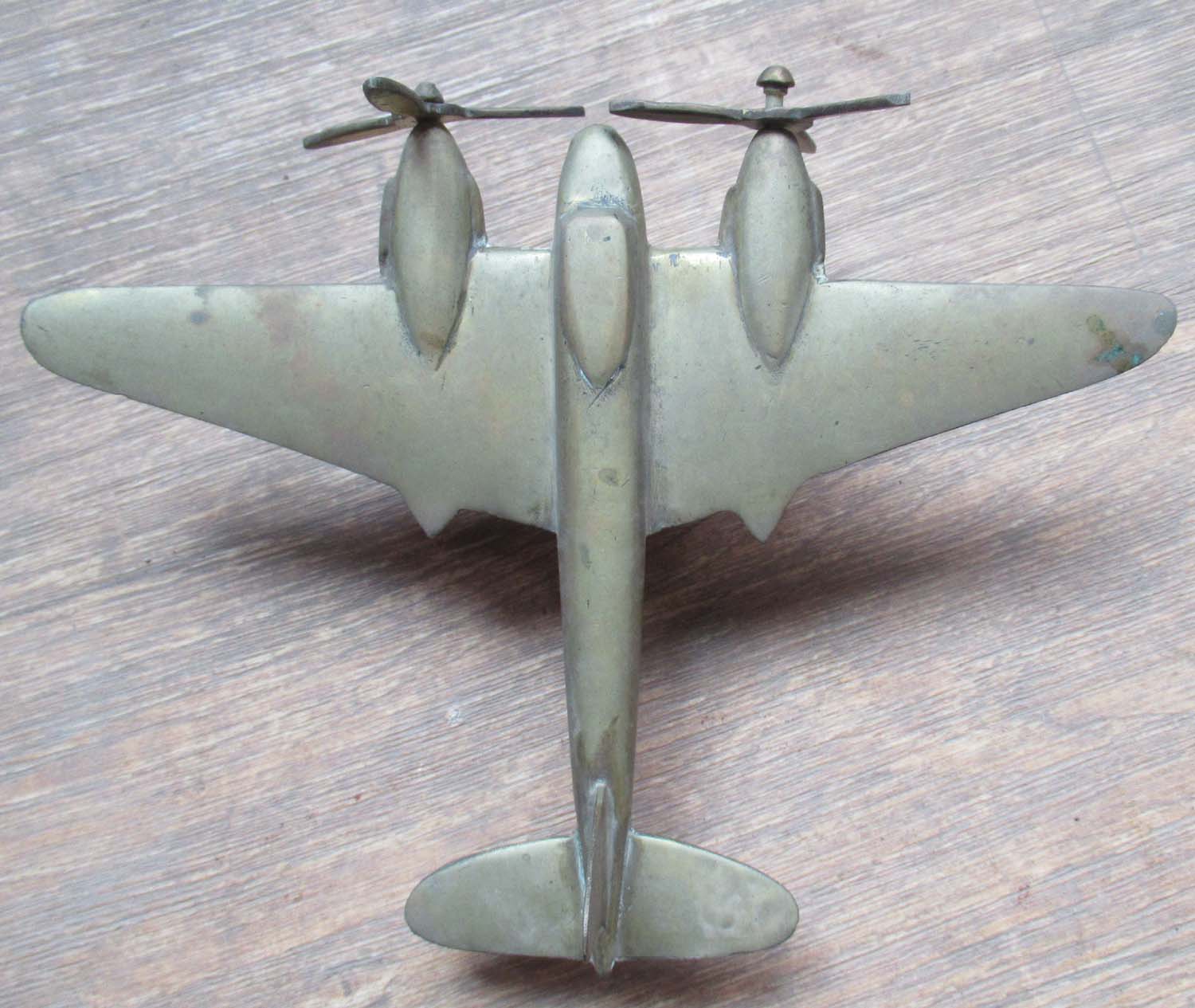
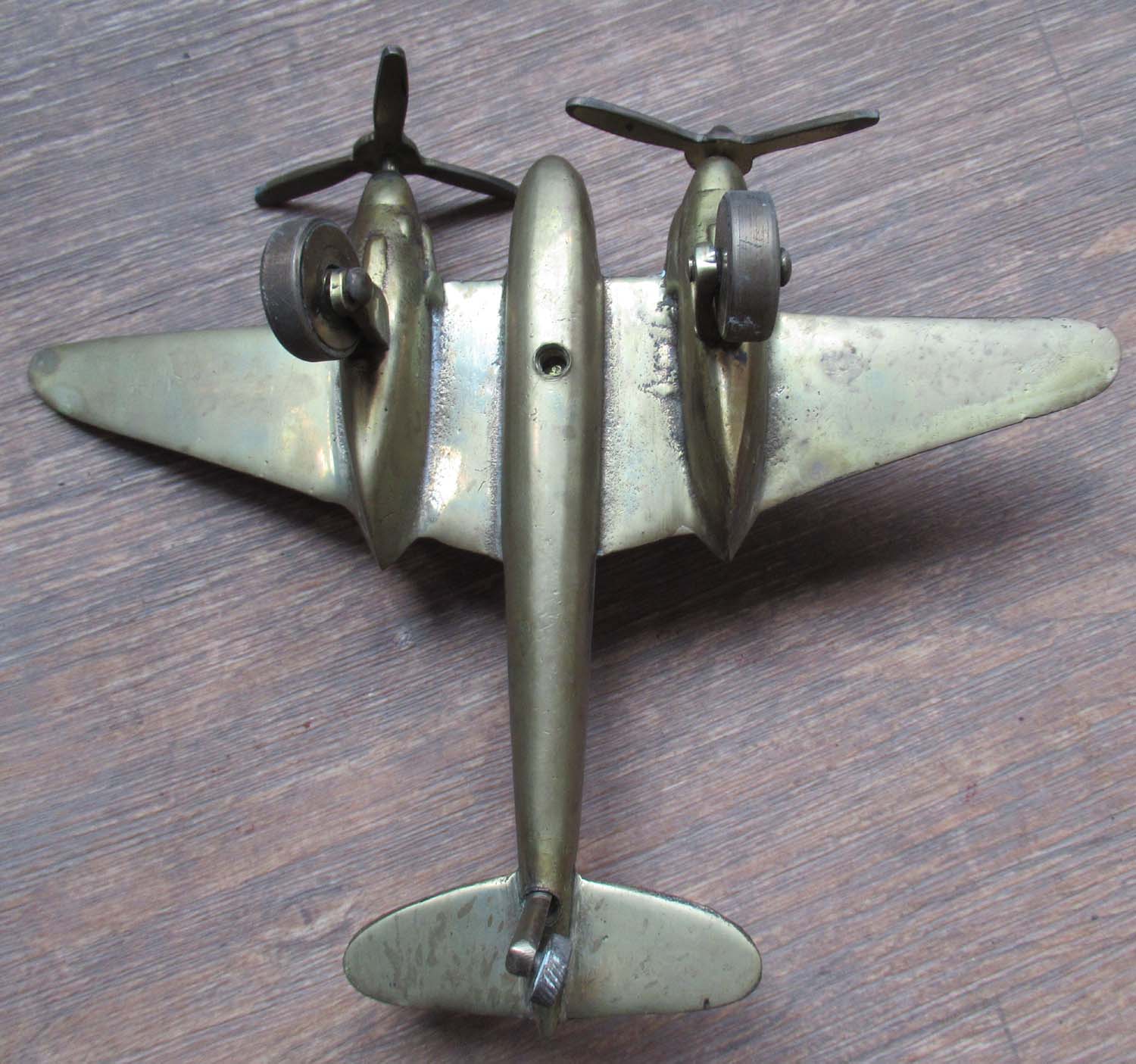 |
De Havilland
Mosquito Brass Trench Art (No 20 Pg 1 Misc)
Here we have a trench art
piece of a Mosquito made from brass.
It is approx 2.5" high to the top of the cockpit and 6.5"
from nose to tail.
The wingspan is approx 8.5". It weighs 896 grams.
It is set on its wheels and
it has moveable propellers. There is a hole on the base so
it could be set on a stand.
Click on pictures to
enlarge
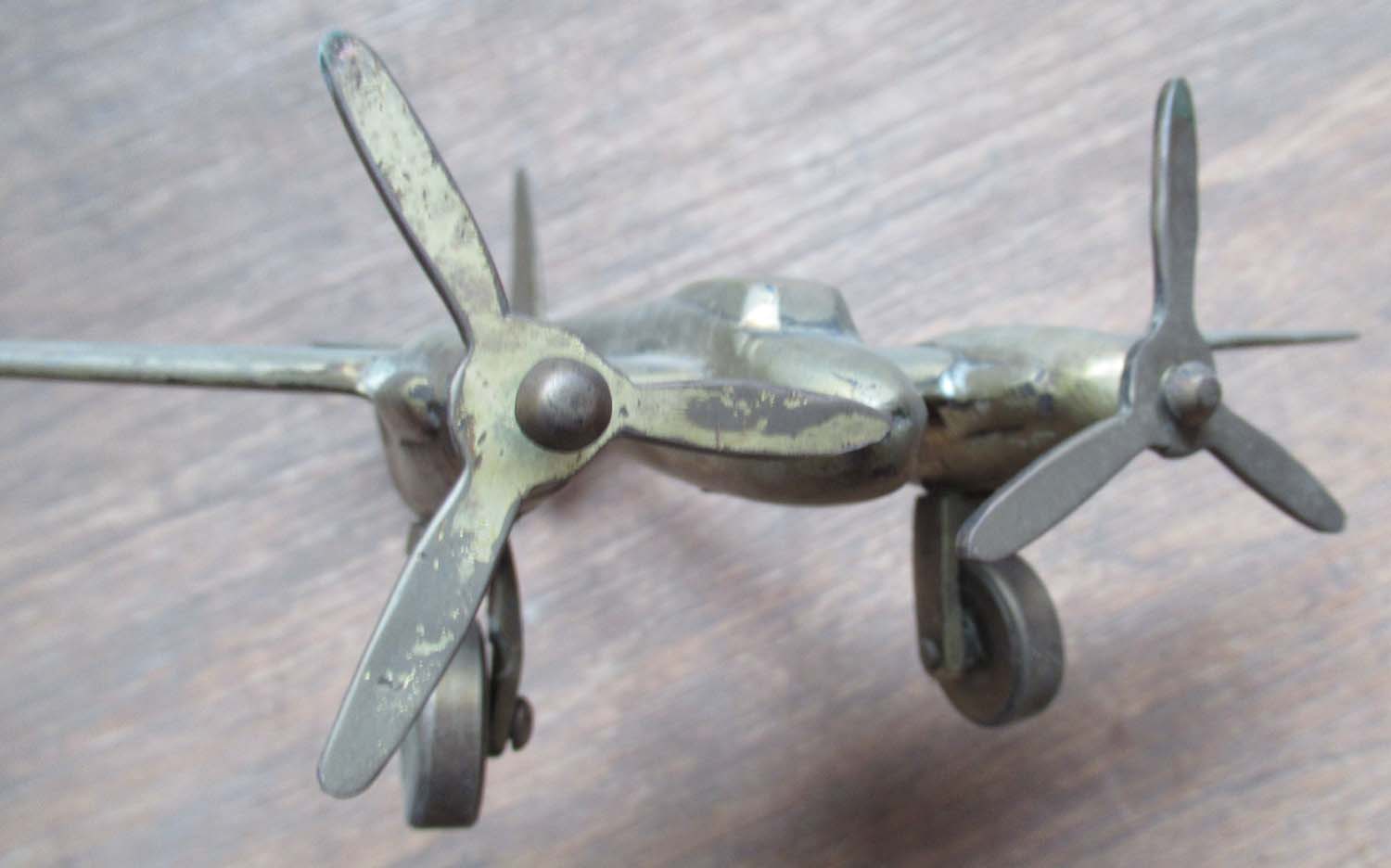
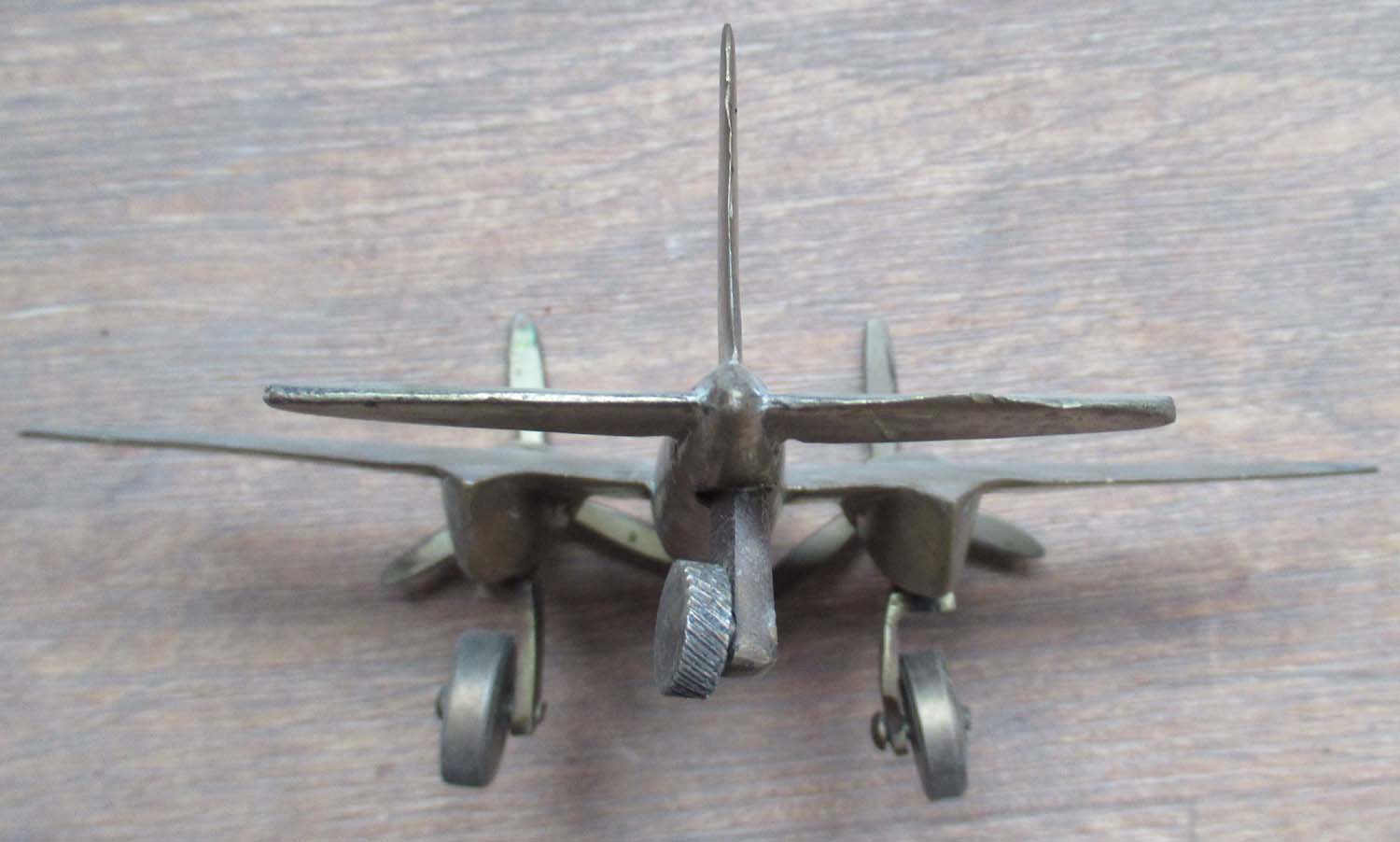
£75


|
|
Click on pictures to
enlarge
.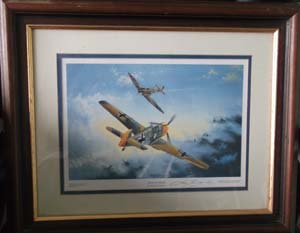 |
Limited Edition Battle of Britain scene print
titled 'Head To Head' (No
19 Pg 1 Misc)
A superb framed limited
edition numbered print signed by the artist Thomas Gower.
£175


|
|
Click on pictures to
enlarge
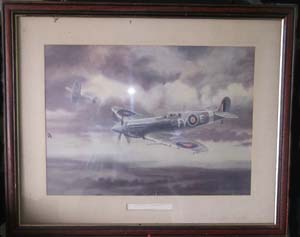 |
Framed Print of Mk IX Spitfires of 611 Squadron
(No 18 Pg 1 Misc)

£95


|
|
Click on pictures to
enlarge
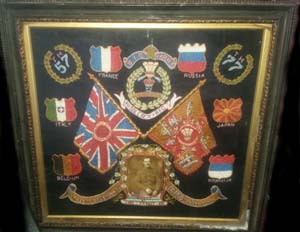
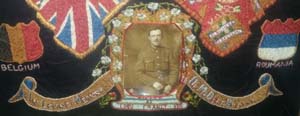
|
WWI Silkwork
Memorial Picture (No 17 Pg 1 Misc)
Here we have a
Memorial for a soldier that Fell at the Battle of Loos in
1915
It has the Middlesex Regiment
Insignia over two flags
On the Right Flag looks to be
Destinations that the Regiment Visited during the war
The Bottom Reads
In Loving Memory of my Dear
Brother
There is also a Photo of a
Soldier and Underneath is written
Killed at Loos France 1915
£195


|
|
Stirrup Hand-pump had a 30 feet
range could be used by
fire-guards at a safe distance from heat and fire.
A jet of
water could be fired from 30 feet or as a spray at 15 feet.
Click on pictures to
enlarge
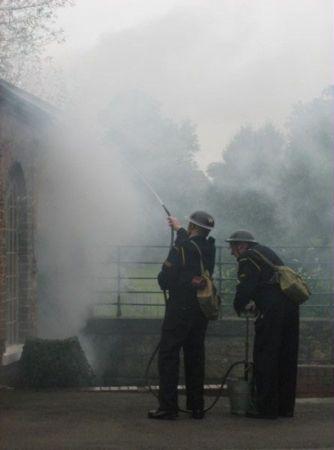
..\Website products 342\large 1.jpg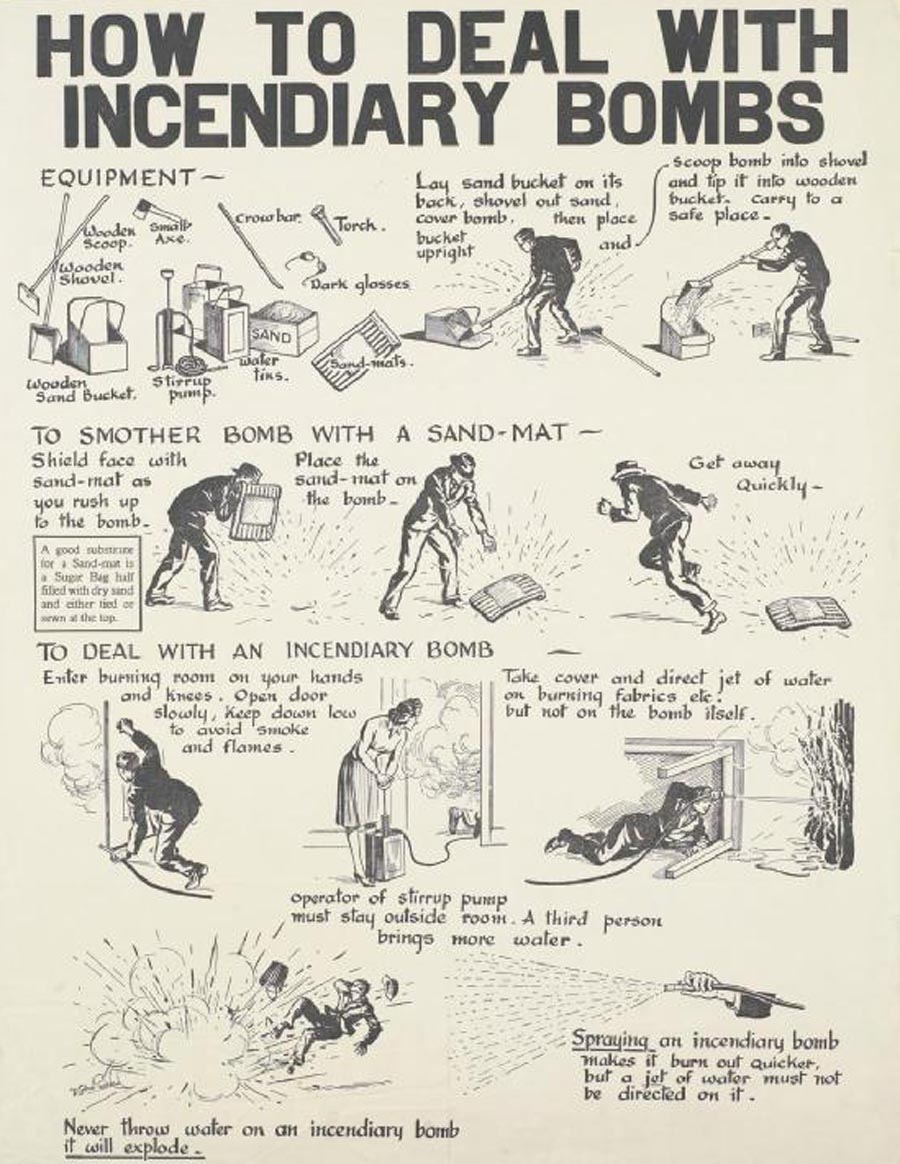
|
Wartime Stirrup
Pump Dated 1941 (No 15 Pg 1 Misc)
Here we have a stirrup
hand-pump dated Janary 1941. It is in good original
condition.
Click on pictures to
enlarge
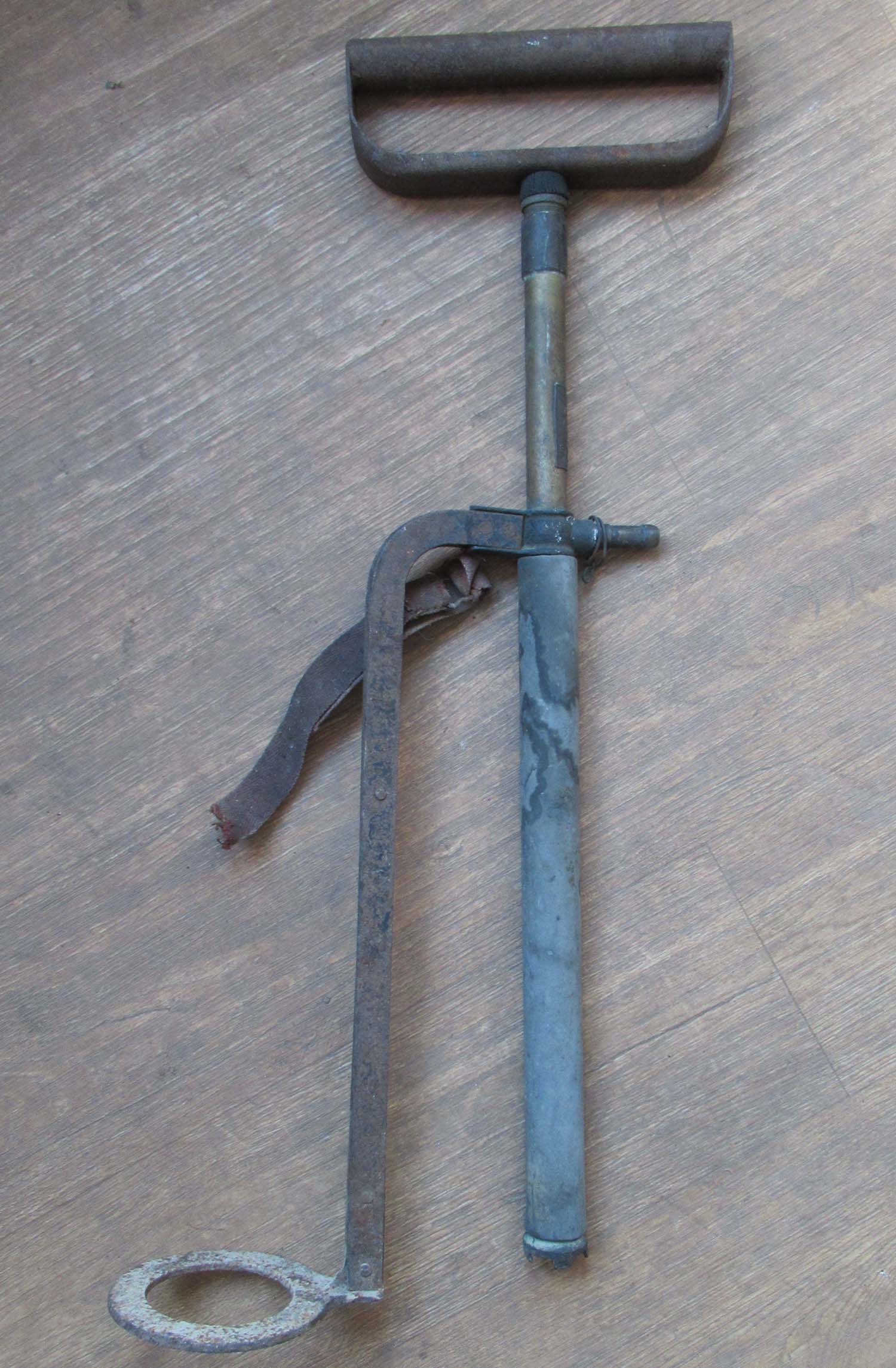
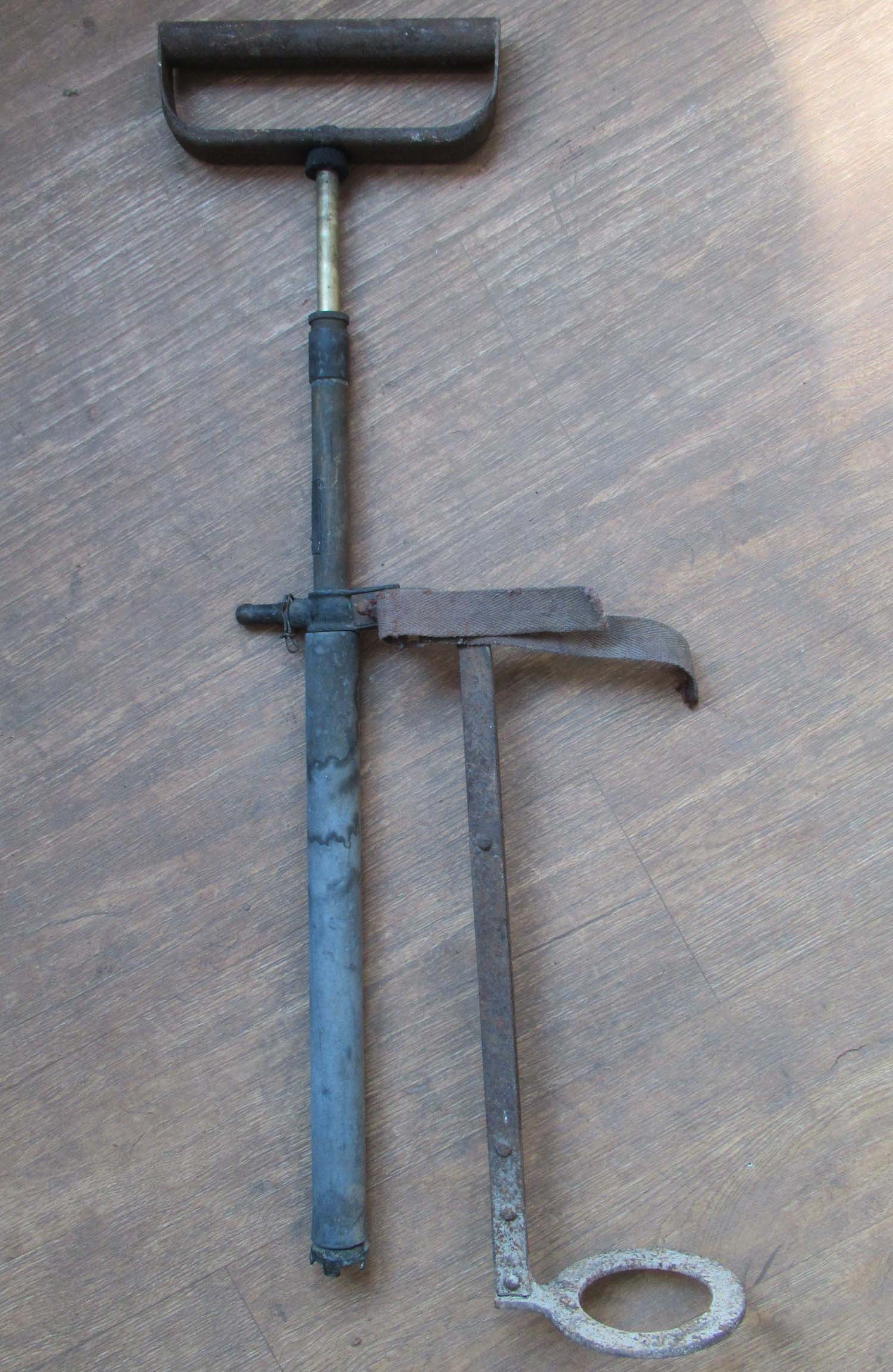
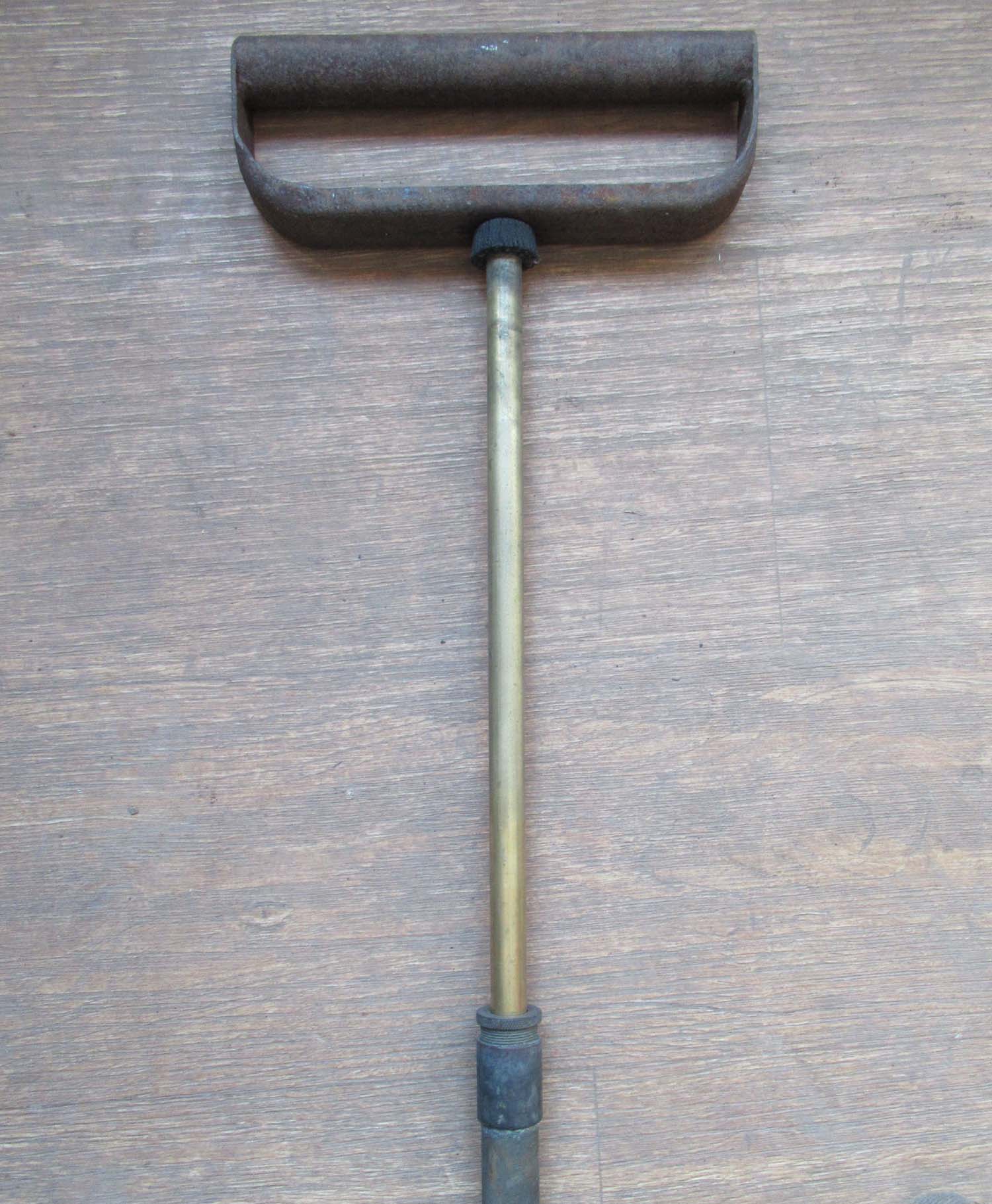
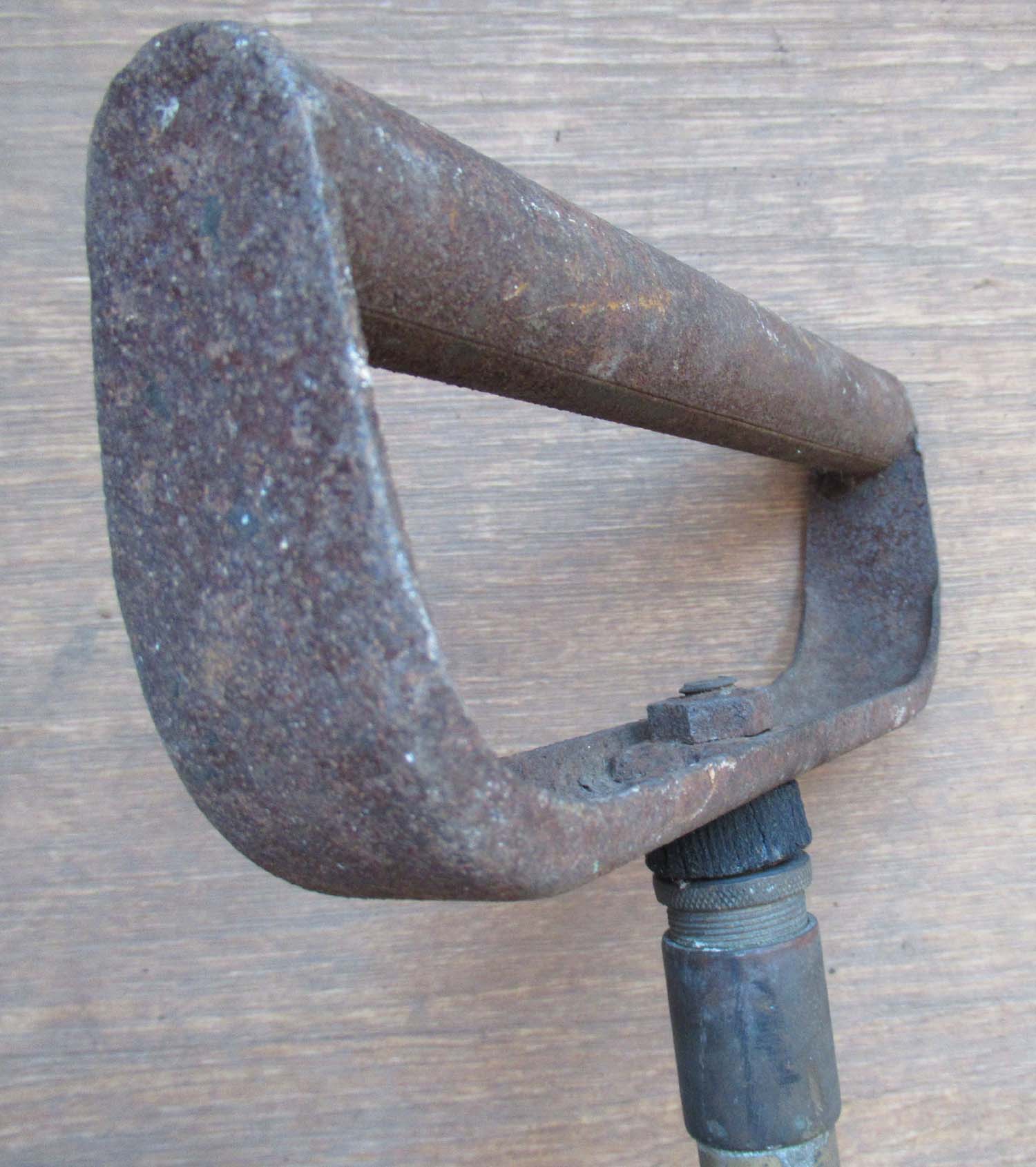
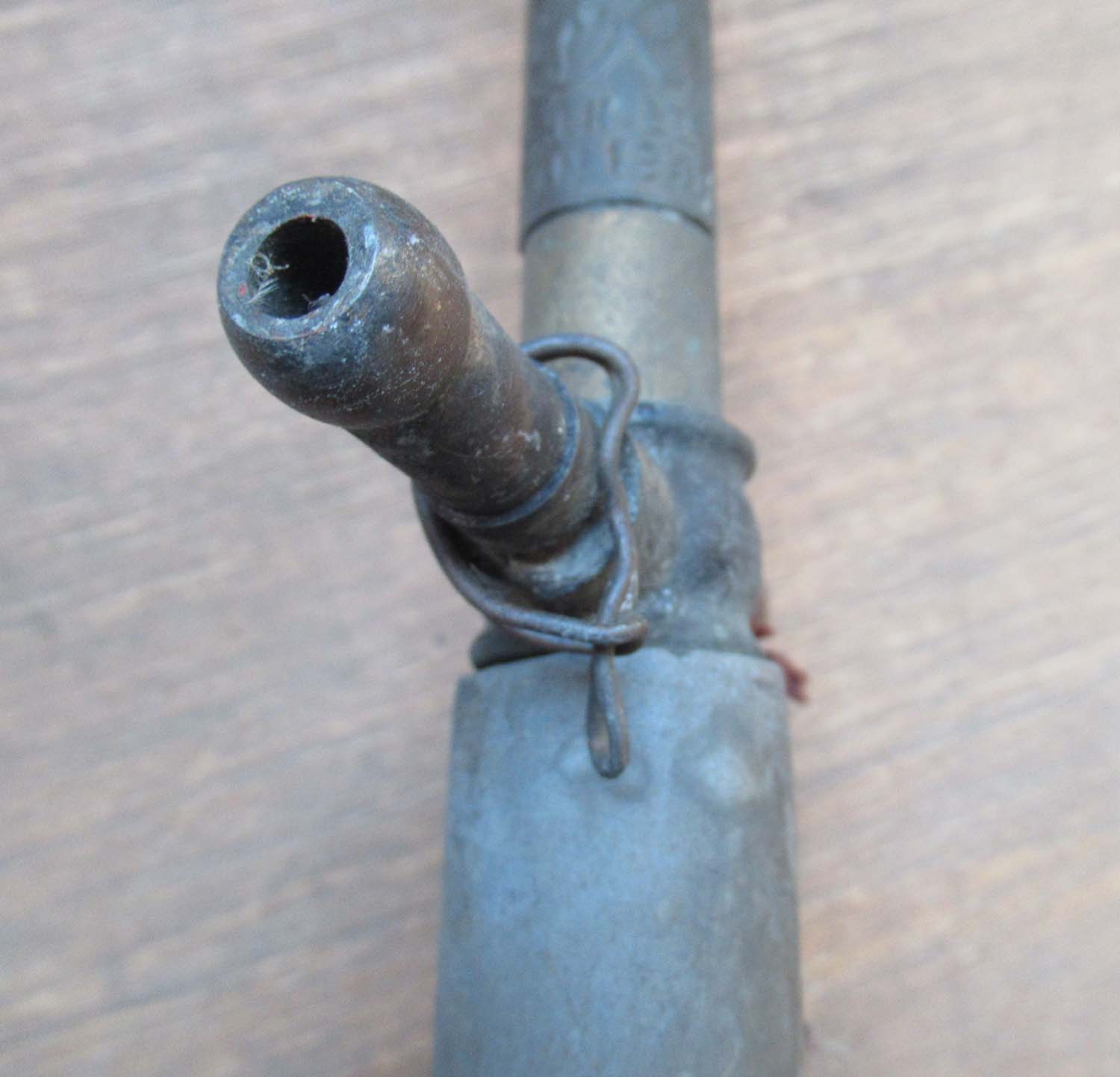
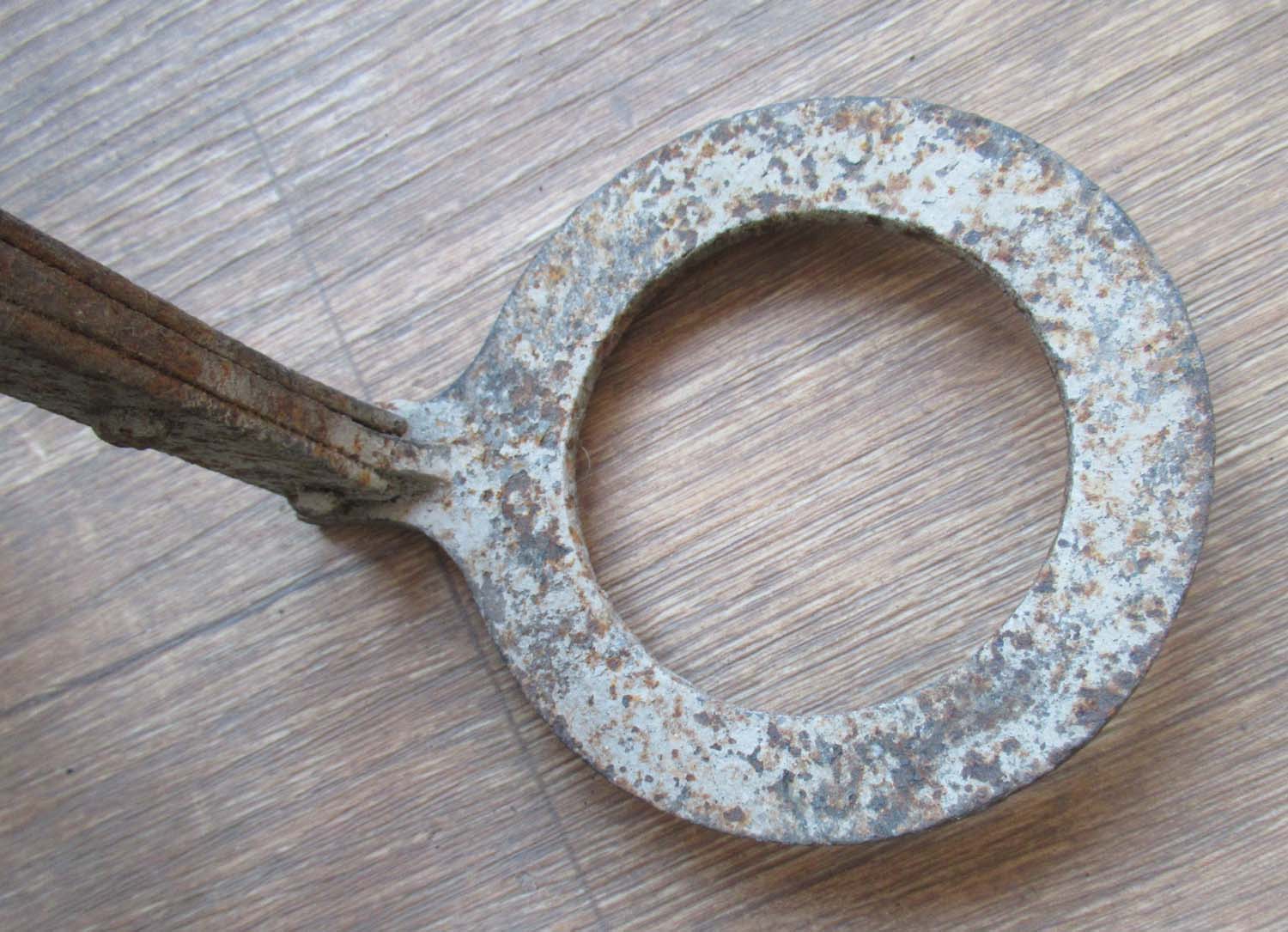
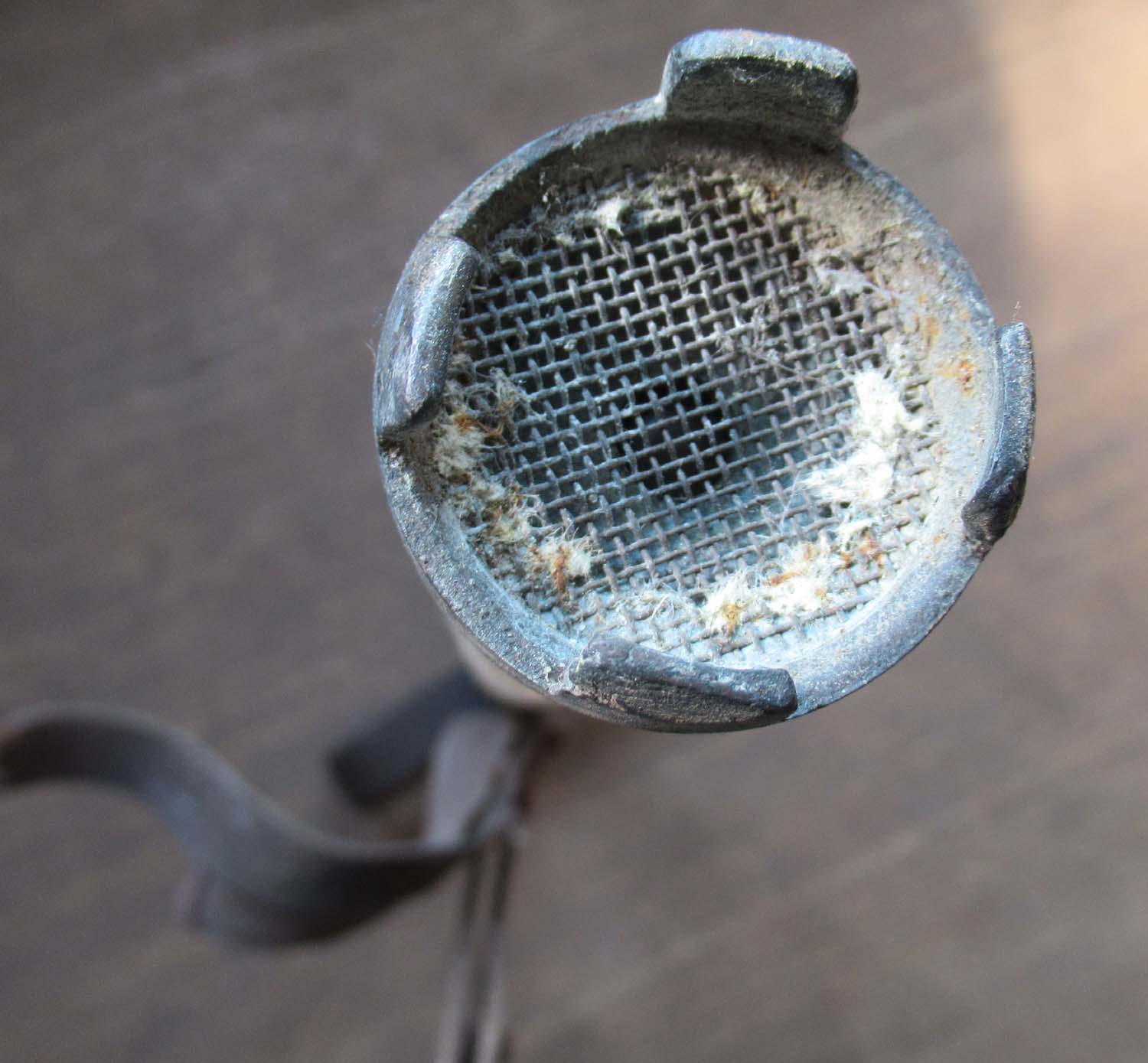
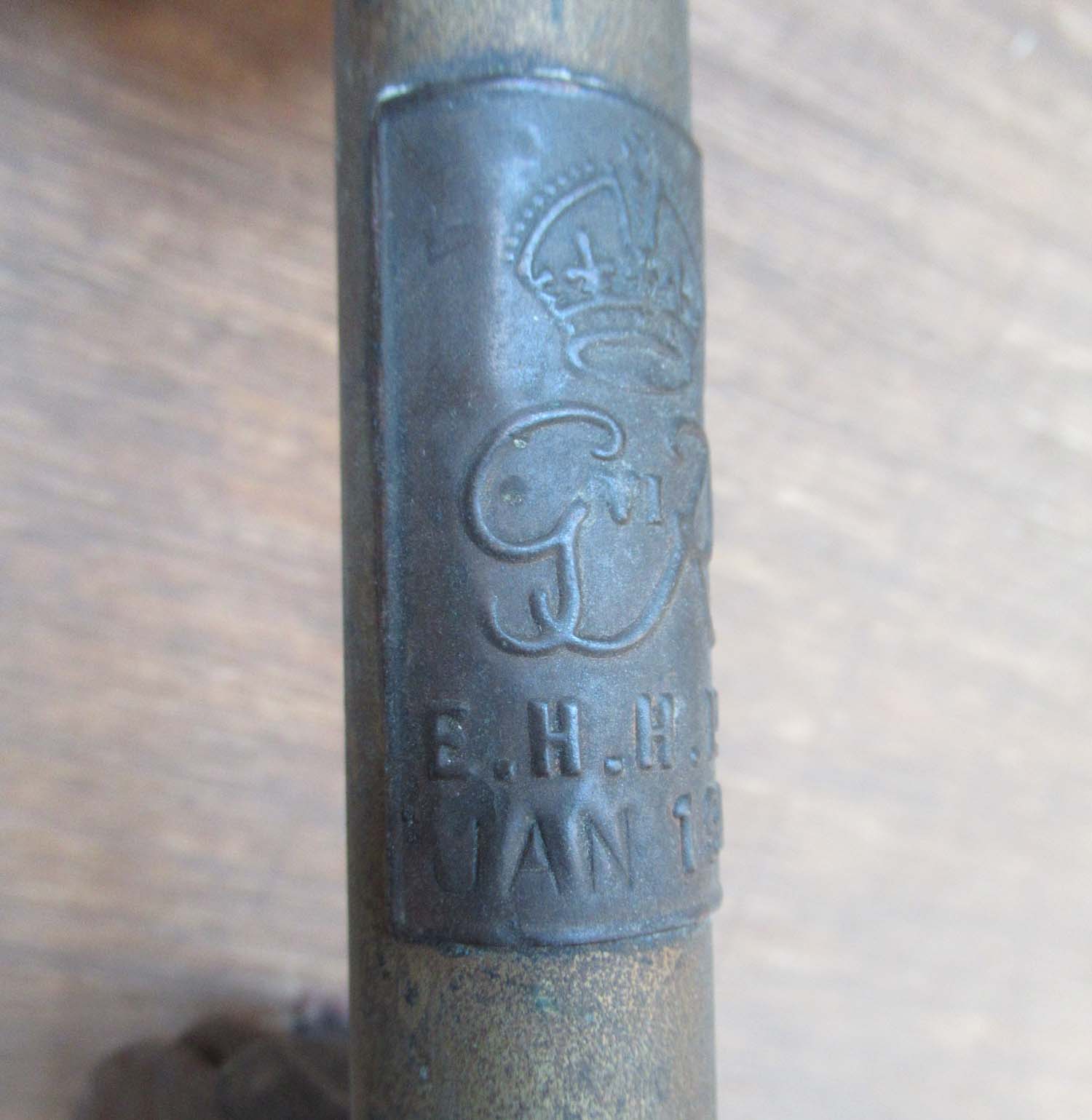
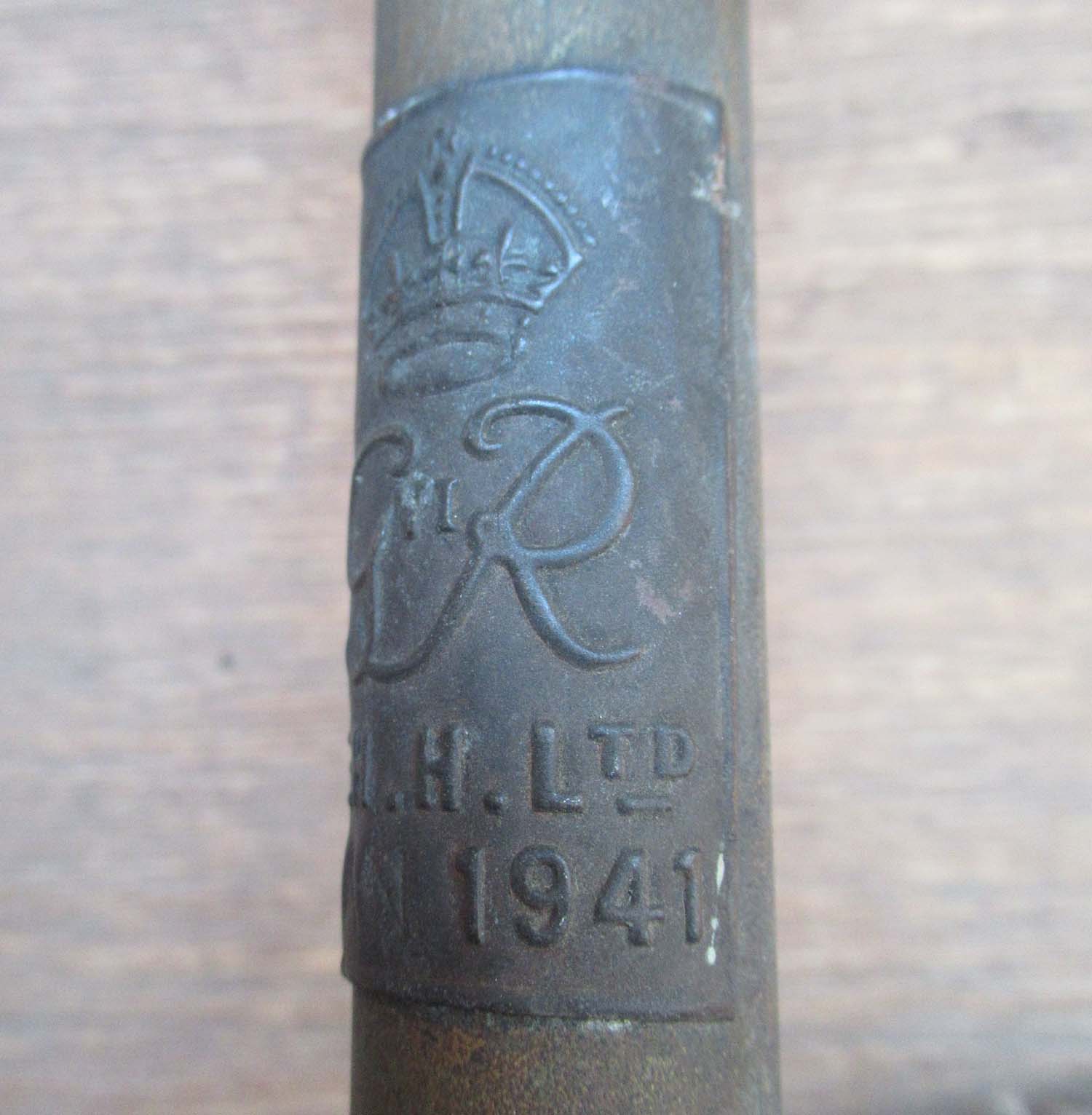
£75


|
|
Click on pictures to
enlarge
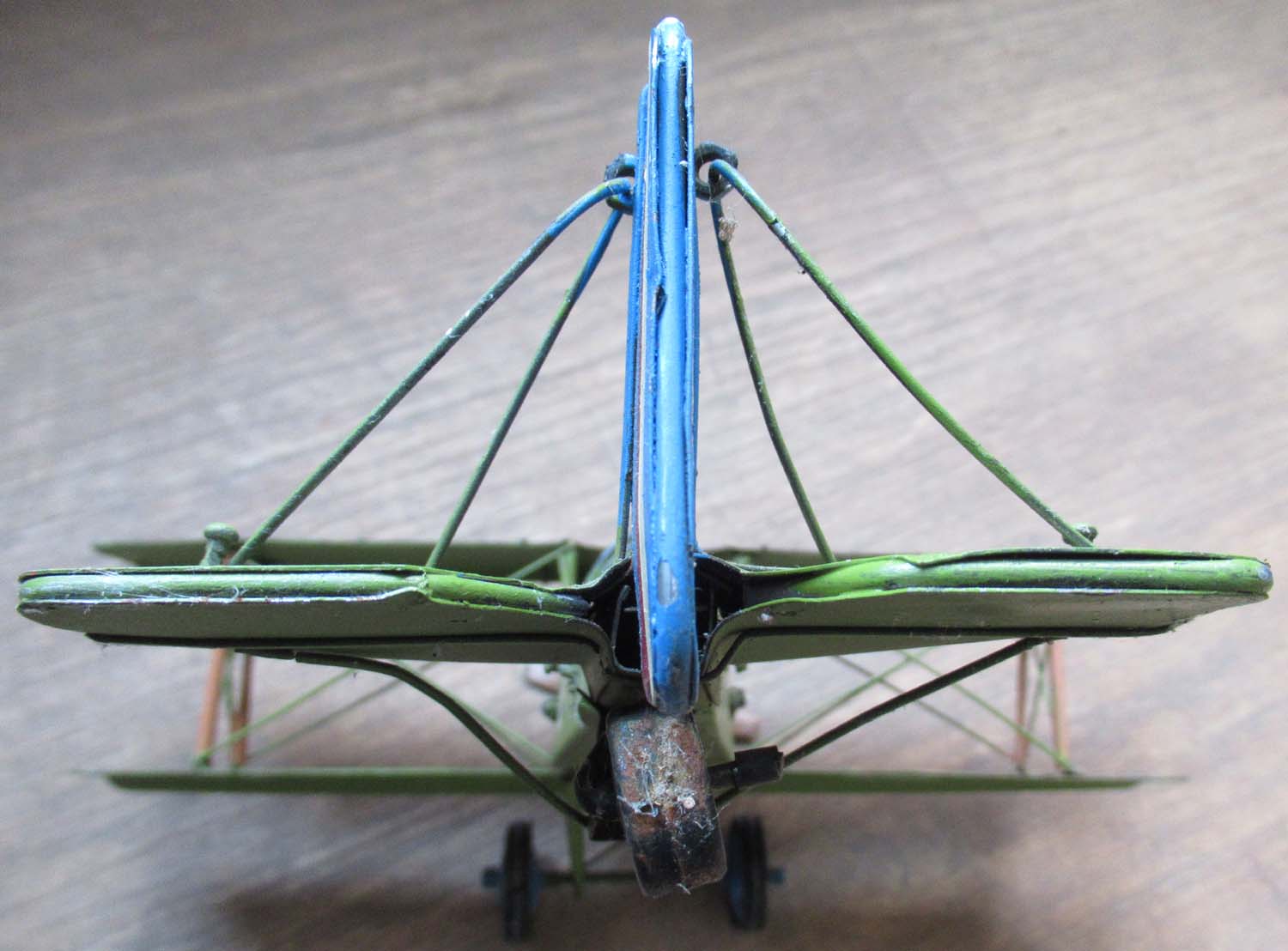
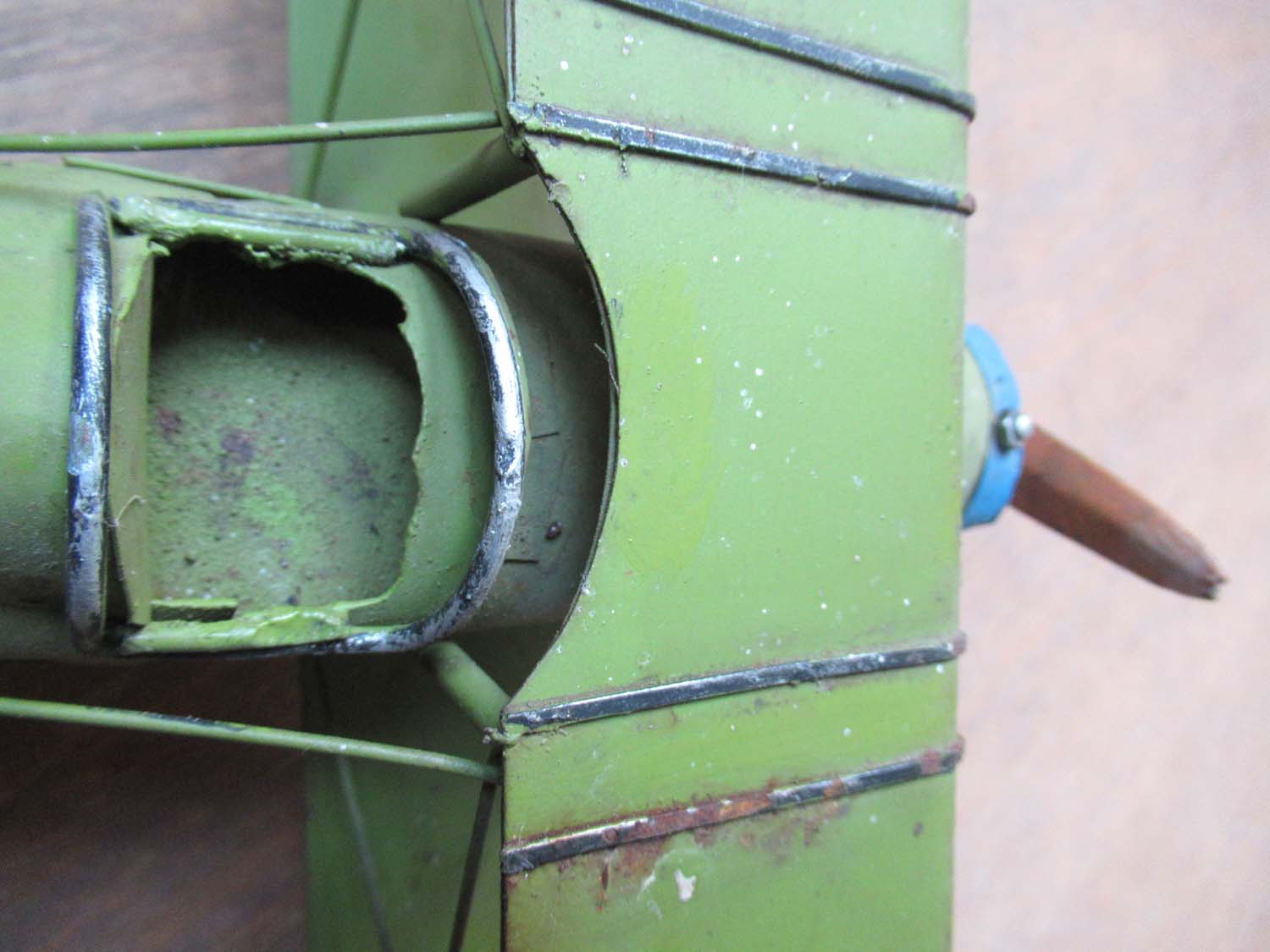 |
SE5A WW1 Fighter Model
(No 14 Pg 1 Misc)
A nice hand made metal model
of the WW1 SE5A.
The Royal Aircraft Factory SE5A proved to be the most
successful of the British single seat fighters. Armed with a
fixed Vickers gun and a tilt able Lewis gun above the wing.
Click on pictures to
enlarge
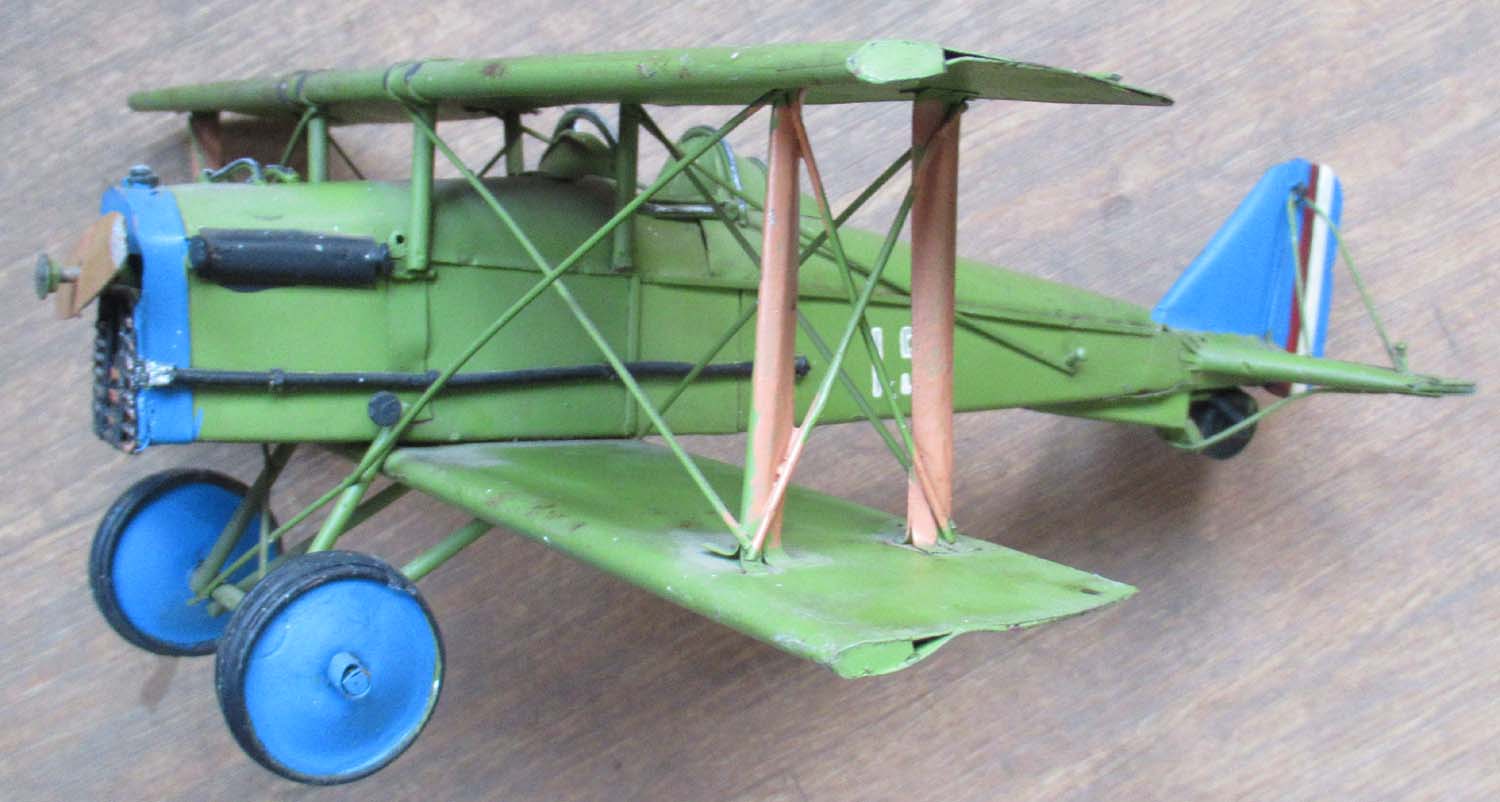
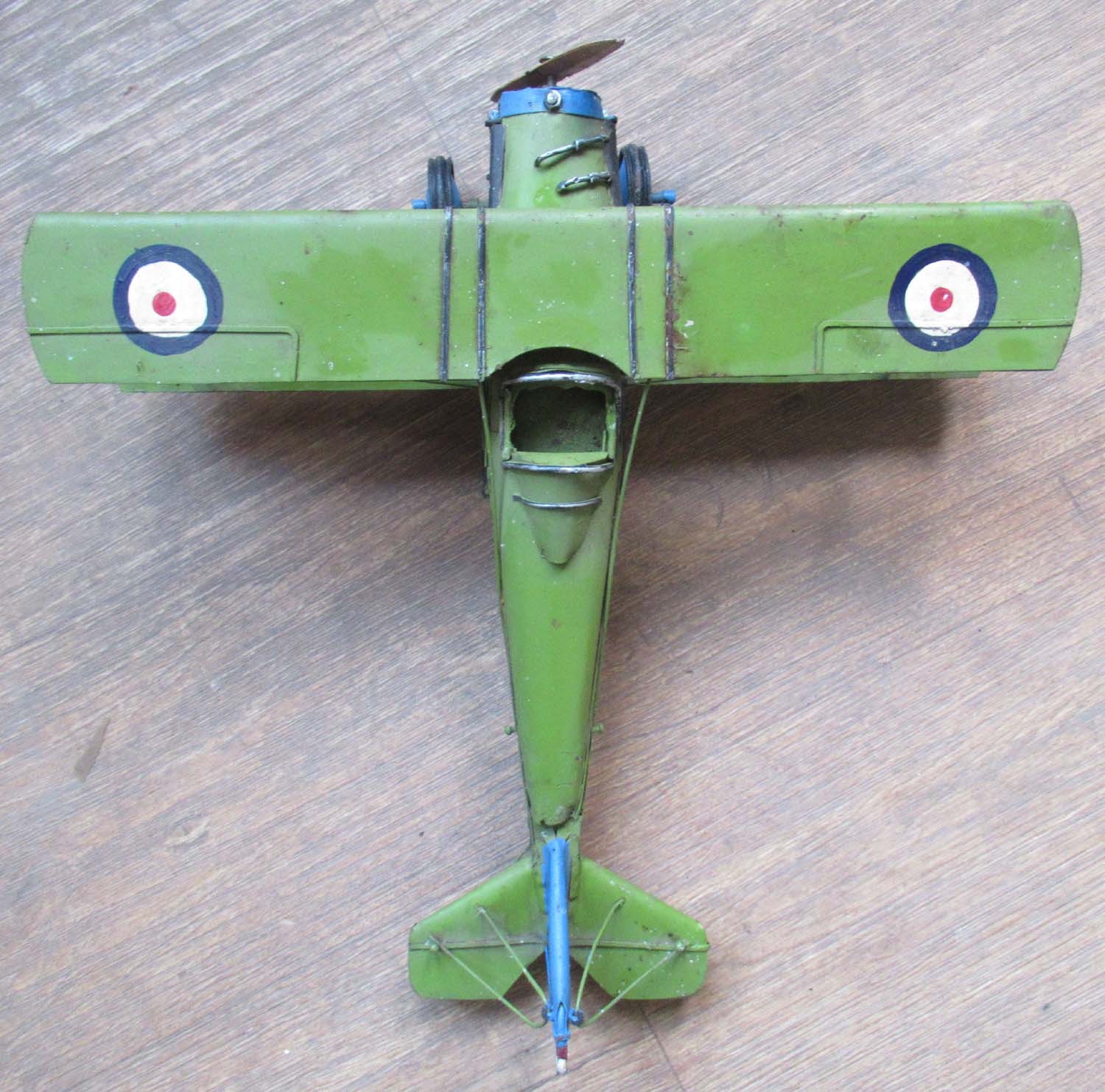
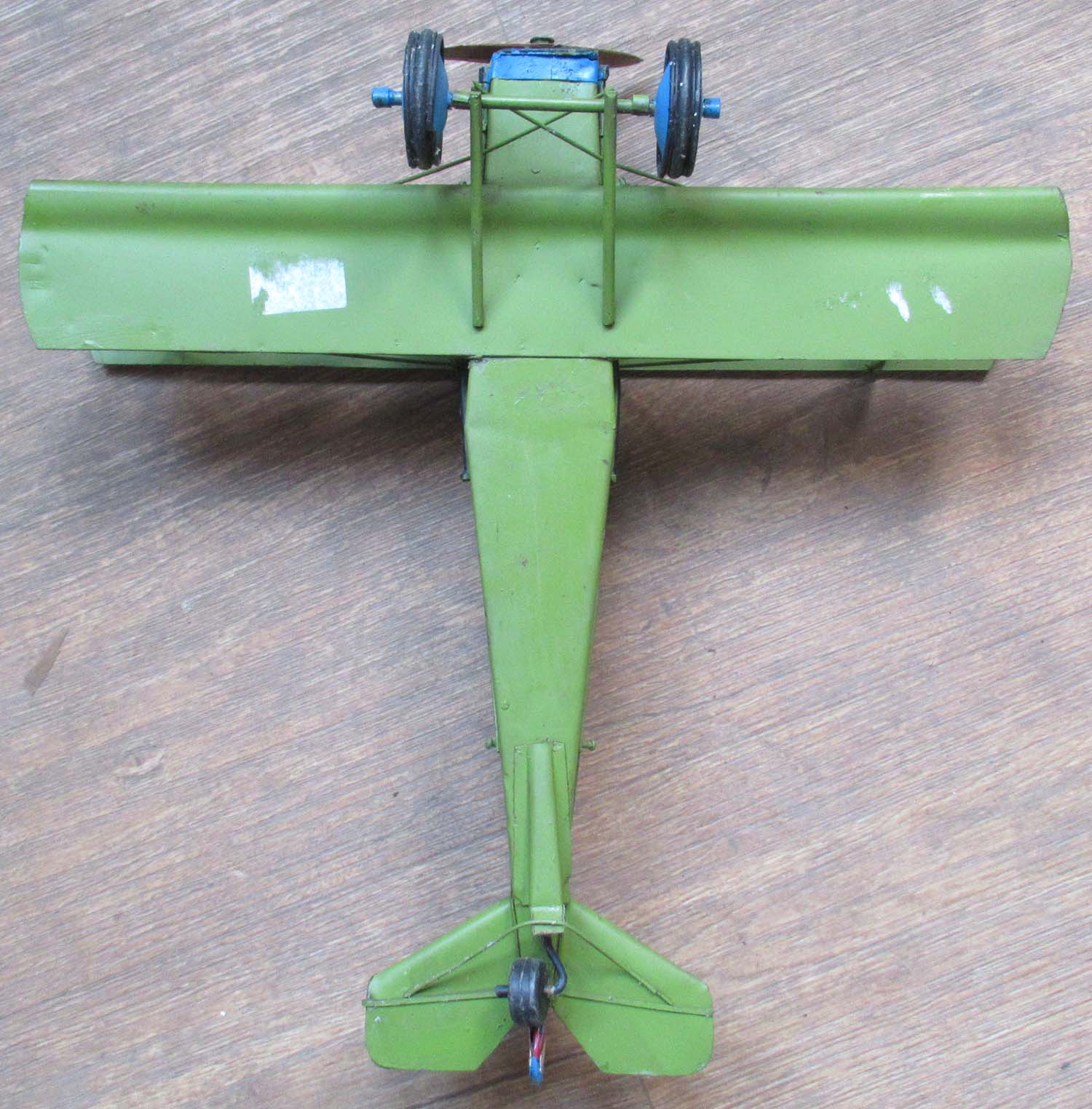
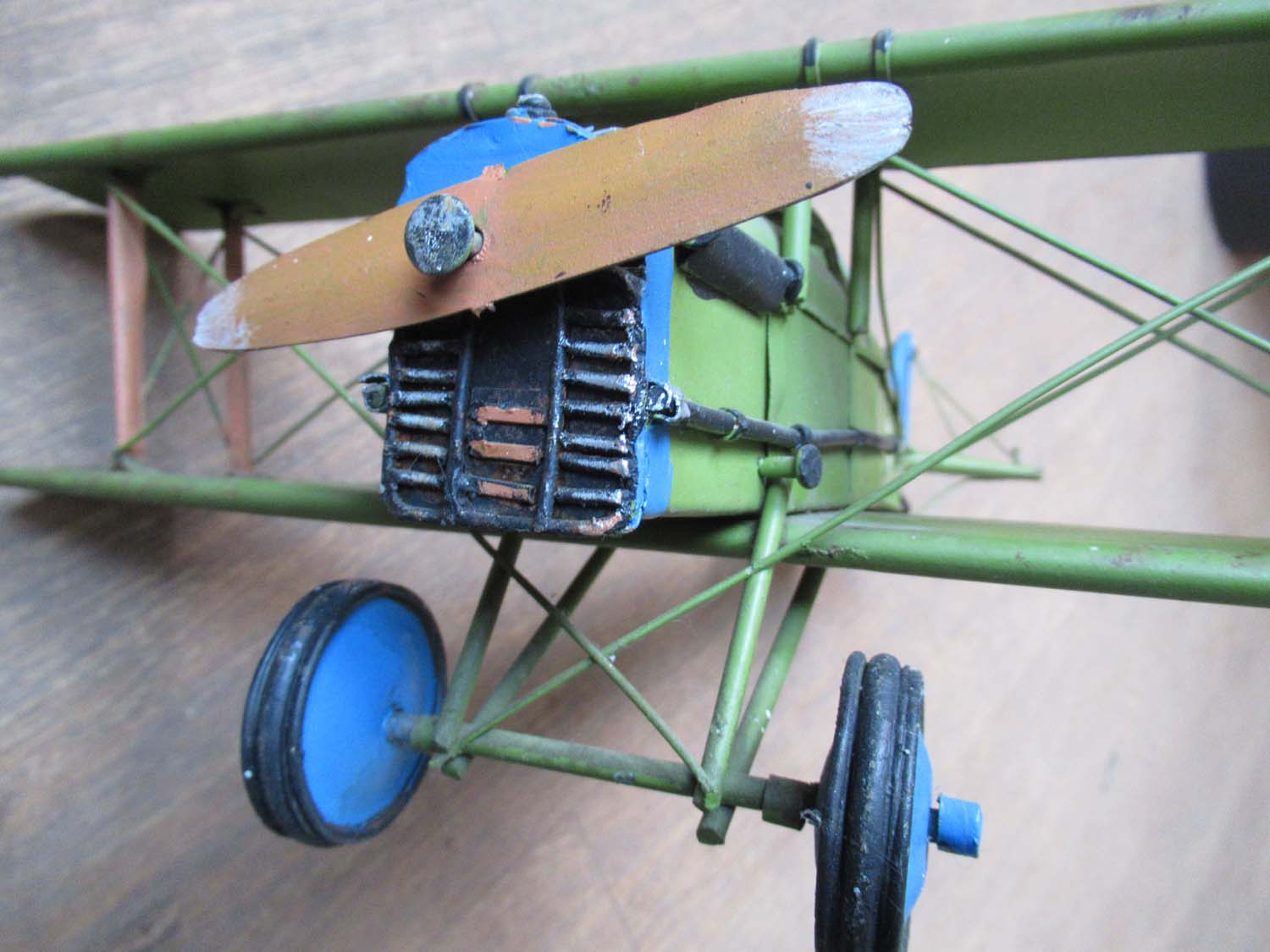
£45


|
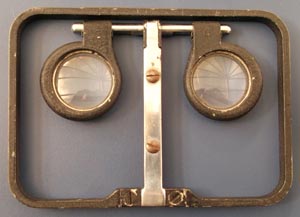
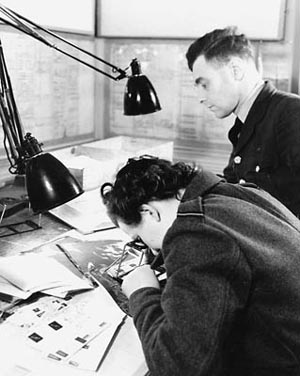 |
Stereoscope Viewer
(No 13 Pg 1 Misc)
WW2 USAAF Stereoscope type B3 Scarce to find an American
version of the Stereoscopes which were used to look at
target photos, etc pre and post bombing. The viewer folds
flat and is fully adjustable and very sturdy. Fully marked
it also has scratched into the paint a name 'Col. R. D.
Hughes'
PRU Spitfire were also
used to take pictures before and after bombing. This high
flying unarmed spitfires of the PRU were fitted with huge
cameras able to take highly detailed pictures. The Spitfires
used in this role were painted in unusual colours from blue
to pink;
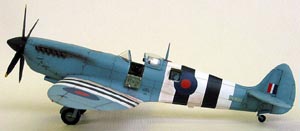

£125


|
|
Click on the picture to
enlarge.
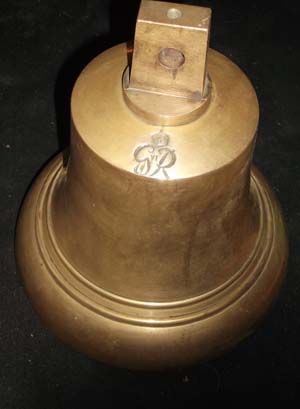
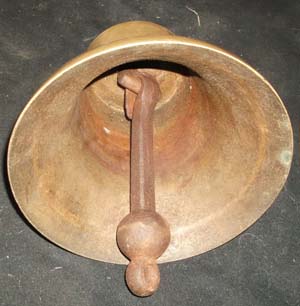
|
George VI Scramble Bell
(No 12 Pg 1 Misc) World War 2
Scramble
Bell, stamped with the Kings Crown and GVIR.
A heavy piece - weight is
approximately 8kg.
Overall height base to shoulder is
10 1/2", diameter is 9 1/2" at Bell opening and 4 1/2" diameter at
the top.
Used by the RAF at squadron bases to
alert air crew into action.
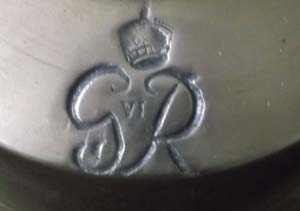
Click on the picture to
enlarge. There are no cracks but there are a few marks on the outside
at the
of the bell.
£795


|
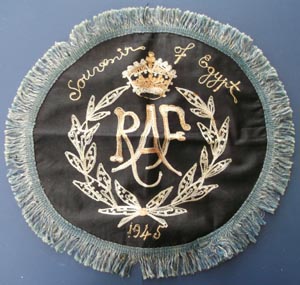 |
RAF Egypt souvenir
(No 11 Pg 1 Misc)
This is a stunning hand
embroidered table mat with the Kings crown RAF motif&nbs(No 18 Pg 1 Misc)d 1945, this would look
stunning framed. The RAF operated in extensively Egypt
from soon after WWI all the way through WWII.
£25


|
|
Below Peter
Townsend

Click on pictures to
enlarge
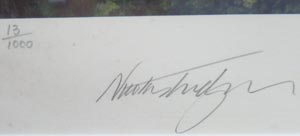
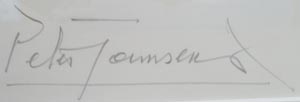


£299


Overseas
buyers please
contact us for shipping
costs
|
Framed and Signed Print of Tangmere Hurricanes
(No 10 Pg 1 Misc)
This is a limited edition print
by Nicolas Trudgian13 of 1000 signed by five Battle of
Britain Pilots one of whom is Peter Townsend who was later
famously
involved with Princess Margaret.
The Hurricanes just
refuelled and rearmed climb
to rejoin the Battle of 1940.
Our
photograph does not do this large vibrant picture justice it
is in good condition with a couple of scratches.
Click on picture to
enlarge
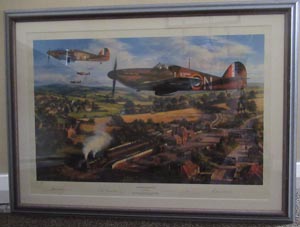
The romance between Princess Margaret and Group Captain
Peter Townsend has been described as 'the
most tragic royal love story ever'.
Townsend joined the Royal Air Force in 1933 and after
graduating from RAF Cranwell was commissioned a pilot
officer in 1935. His first posting was No. 1 Squadron at
Tangmere where he flew a Hawker Fury and in 1936 was
transferred to Singapore where he joined No. 36 Squadron and
flew the Vickers Vildebeest torpedo bomber. Upon being
promoted to flying officer in 1937, he returned to Tangmere
where he joined No. 43 Squadron and shortly after the
beginning of WWII he was promoted to flight lieutenant.
Flying out of RAF Acklington Townsend was blooded in
February 1940 when he and two other pilots flying Hurricanes
shot down a Heinkel 111 near Whitby. His score of claimed
and confirmed continued and in April he was awarded the DFC.
Townsend serving throughout the Battle of
Britain as commanding officer of No. 85 Squadron of Hawker
Hurricanes. In July he ditched his aircraft in the sea after
forcing down a Dornier at Arras. His exploits continued
until he was shot down over Tonbridge and although wounded
continued to command from the ground while recovering. In
September he was awarded a bar to his DFC for his
“unflagging zeal and leadership” in battle and for
personally shooting down four aircraft.
By early 1941 Townsend had shot down at least
11 enemy aircraft, became an acting Wing Commander and was
awarded the DSO for his “outstanding powers of leadership
and organisation… and skill in air combat”.
Between December 1941 and January 1943 he was
confirmed in the temporary rank of wing commander, appointed
commanding officer of RAF Drem in Scotland, appointed
commander of No. 611 Squadron of Spitfires, was leader of
No. 605 Squadron of night fighters and appointed commanding
officer of RAF West Malling in Kent.
|
|
Click on pictures to enlarge
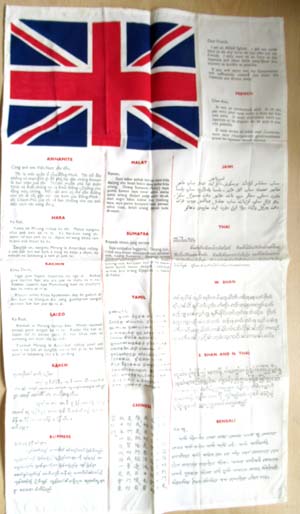
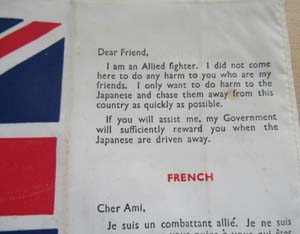
|
Blood Chit (No
8 Pg 1 Misc)
This is an original blood
chit in very nice original condition.
Blood chits were not only cloth patches, they
also were cards or sometimes letters with a promise of
reward directed to anyone who would assist a downed flier.
In the early days of World War II, the
British routinely issued blood chits to their aircrews,
including several types in 1940 to fliers in Ethiopia.
When the US entered the war, the American air
services adopted the practice and they were eventually
issued in all theatres of combat operations by all the
western Allies.
Blood chits were duly honoured and the
helpers were rewarded with money or gifts.
Later, chits were printed in nearly 50
languages, including many European, North African, and Asian
tongues.
Not all of them contained the same
statements, but all were bona fide government IOUs promising
to reward those who assisted Allied airmen.
£195


|
|
Click on pictures to enlarge
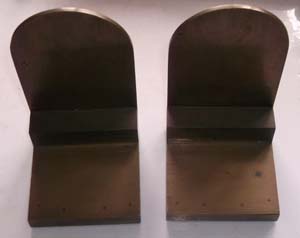
|
Trench Art Brass
Book Ends (No 7 Pg 1 Misc)
Brass book end trench art.
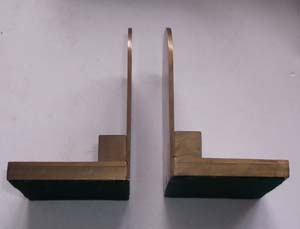
£55


|
|
Click on pictures to enlarge
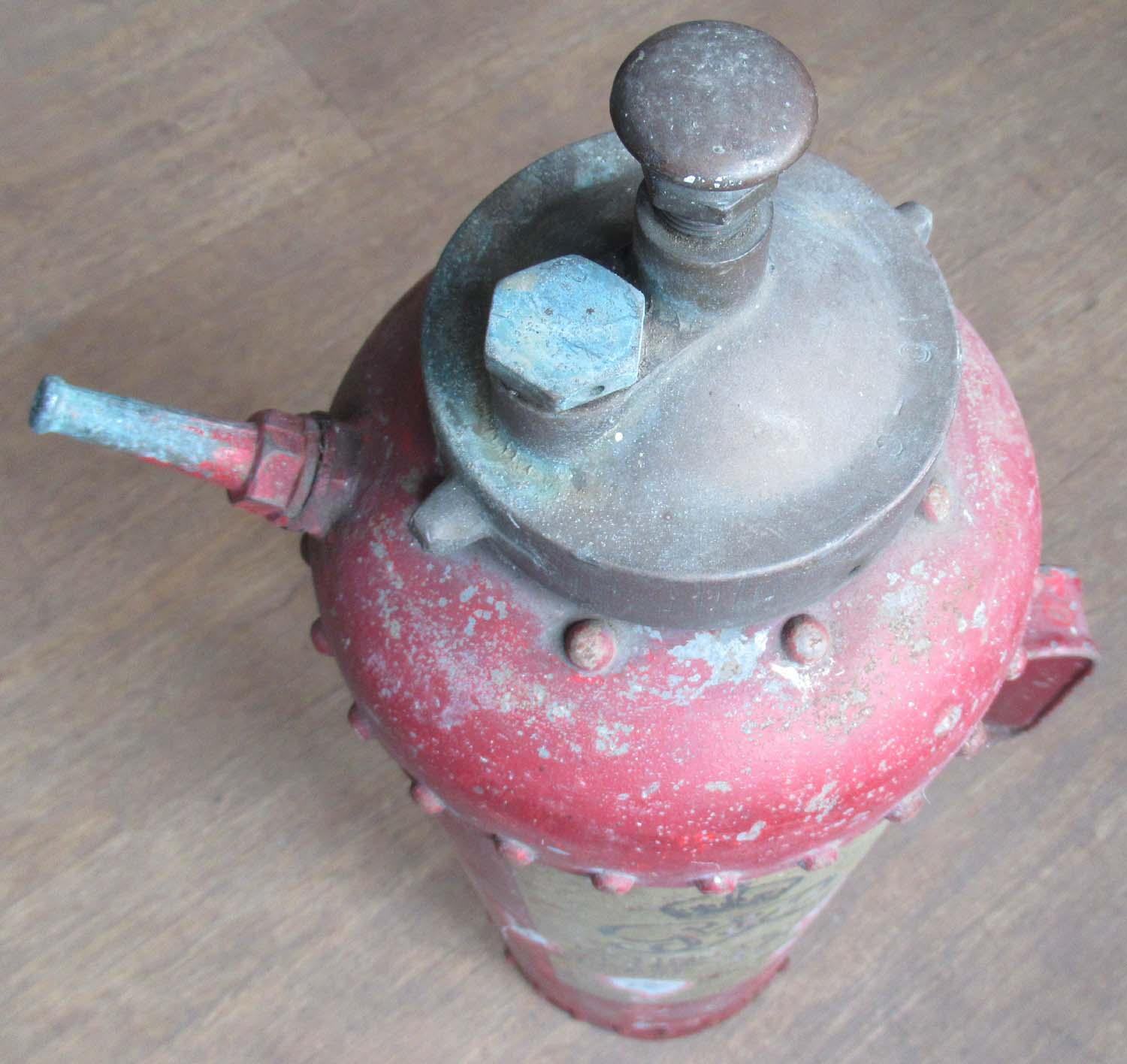
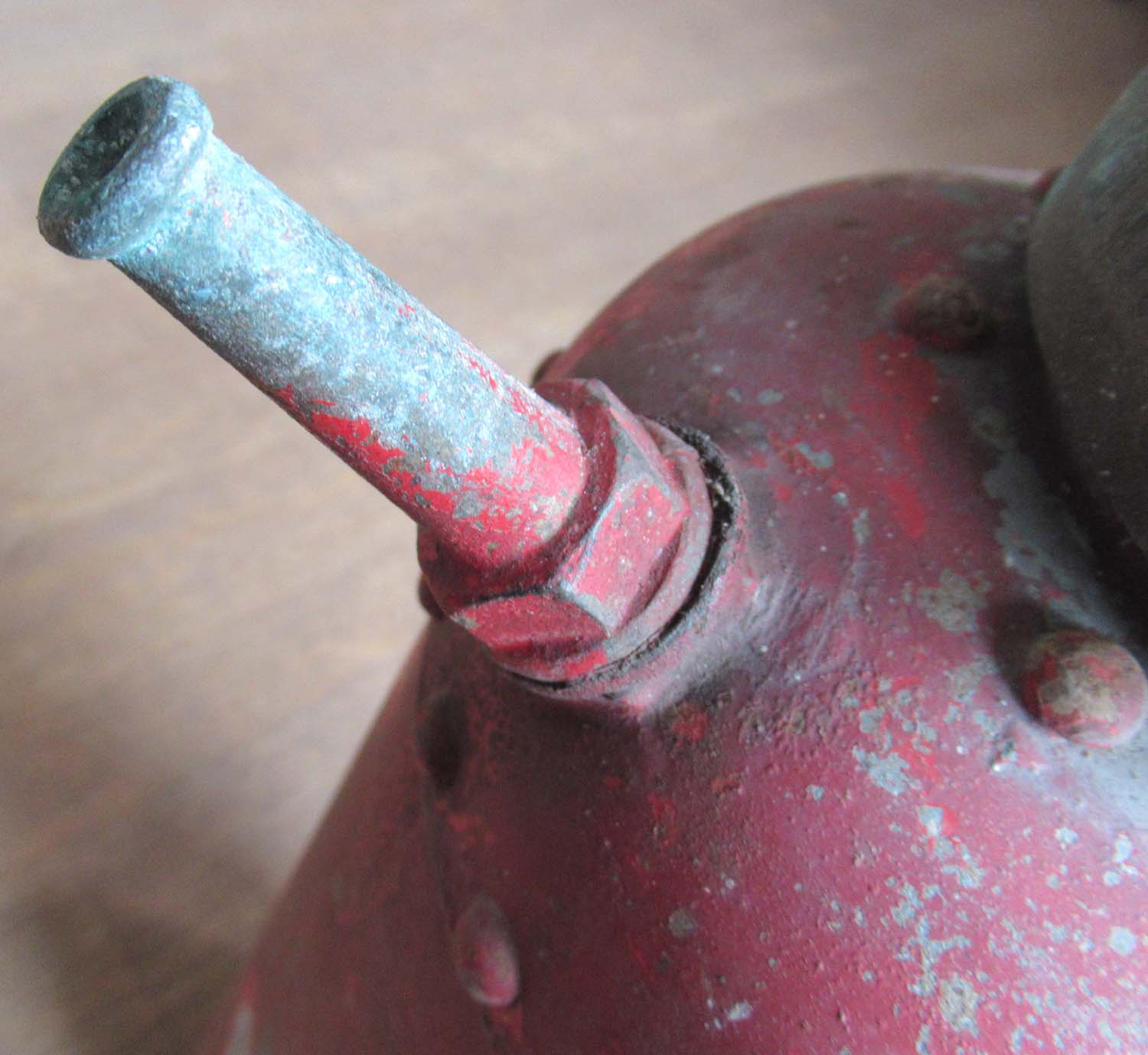
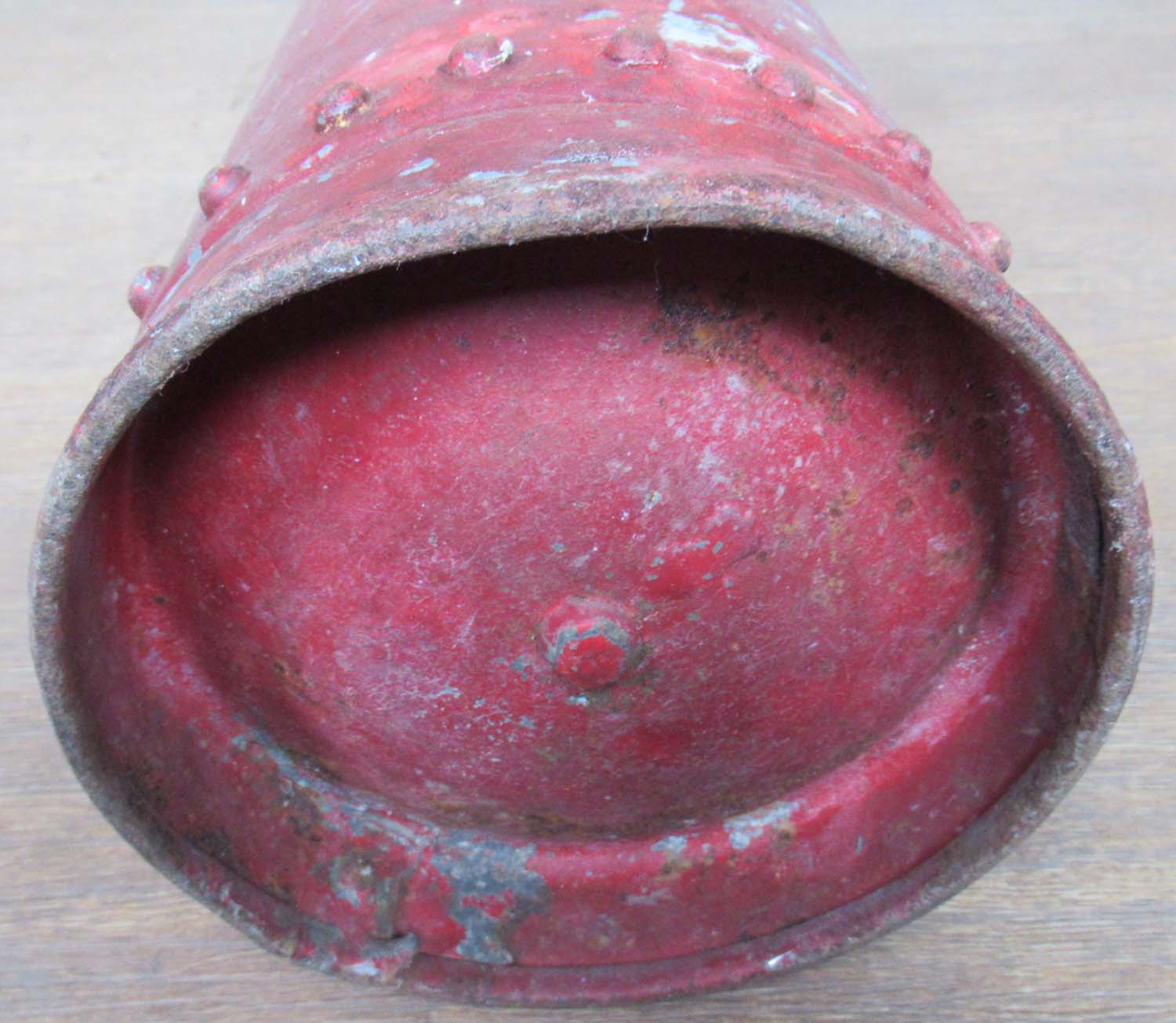
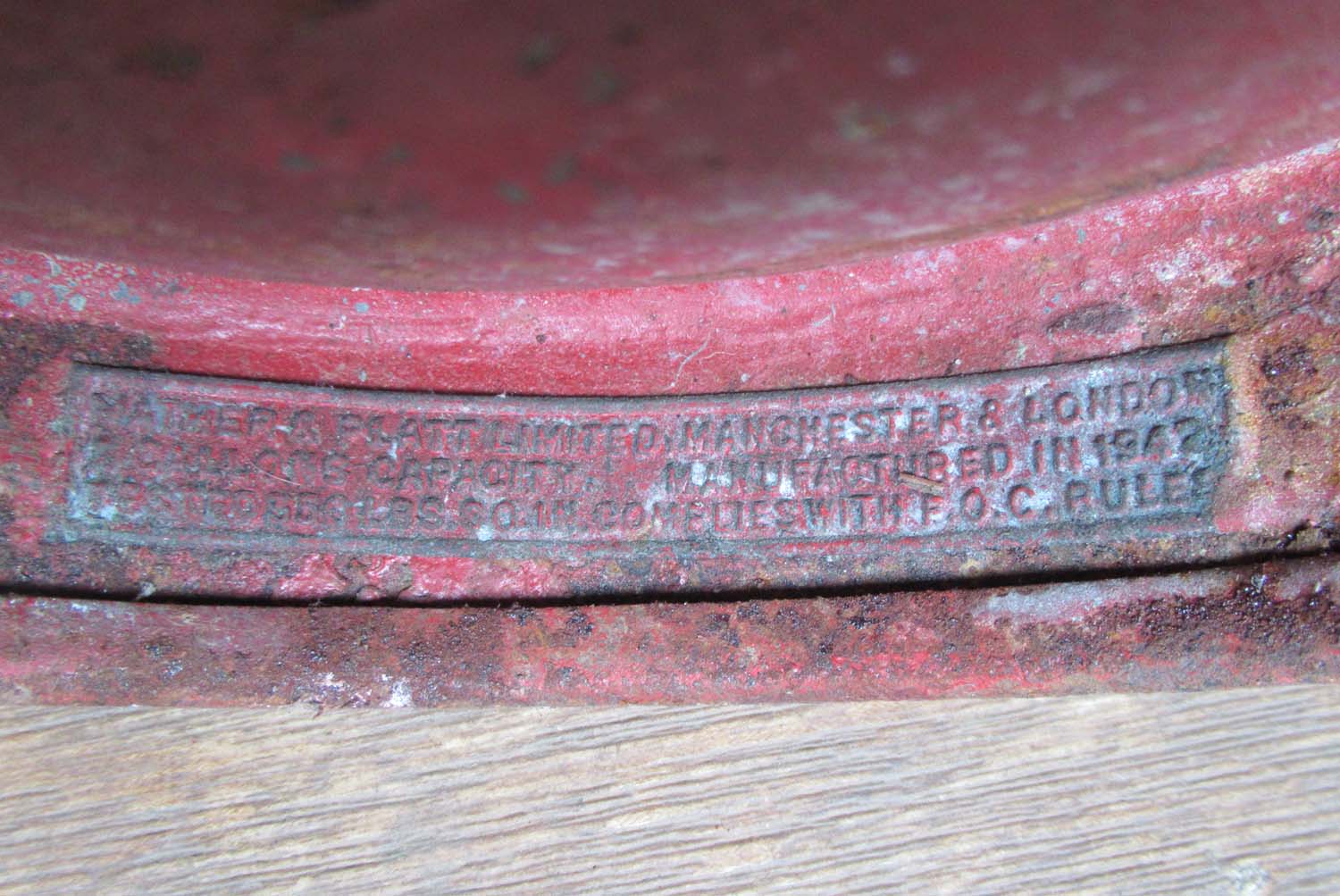 |
George VI Type S.A.2 Fire Extinguisher (No 6 Pg 1 Misc)
Here we have a fire extinguisher with the
King George VI Royal Cypher.
This is a
type S.A.2 manufactured by Mather and Platt.
This is unusual as
extinguisher is written as Extincteur (which is
French for extinguisher) however the rest of the label is
written in English.
This is a
nice piece with a brass top and dated 1942.
Click on pictures to enlarge
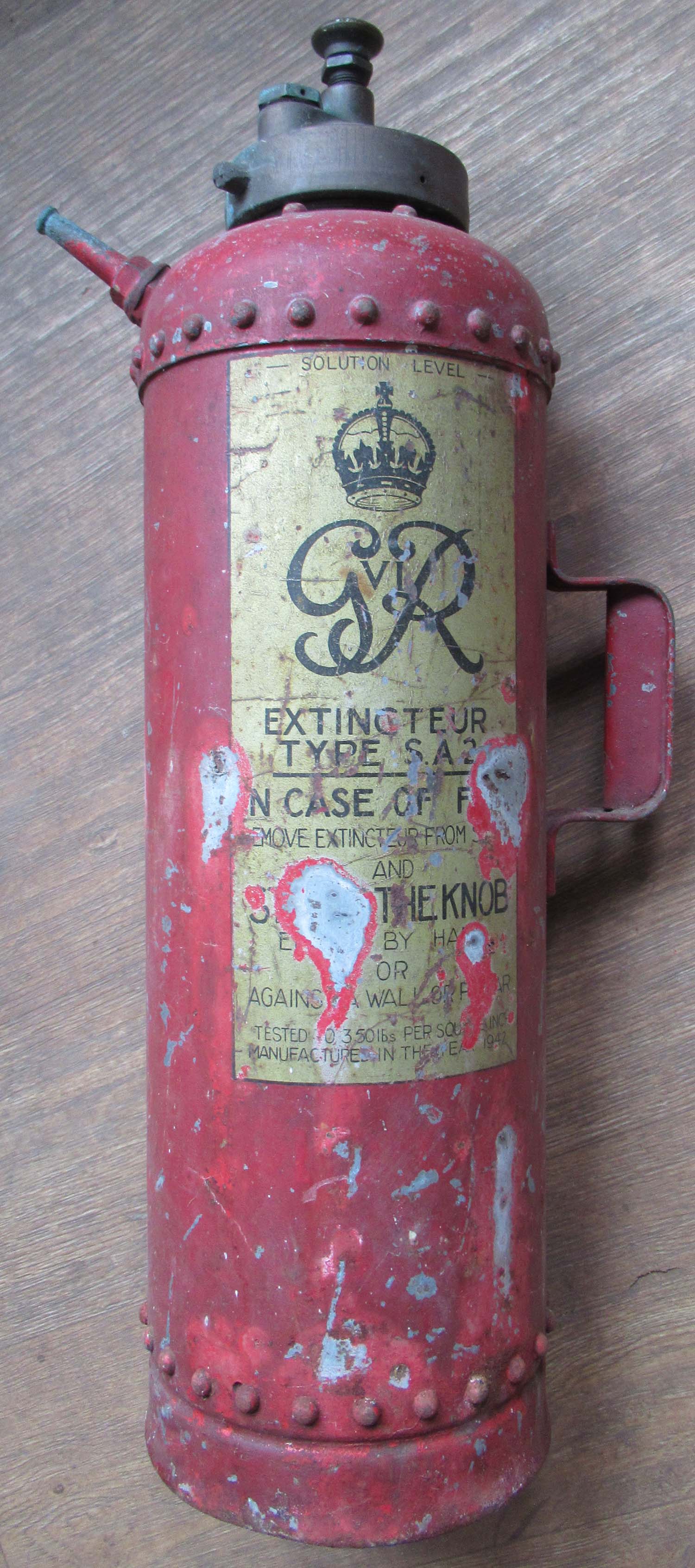
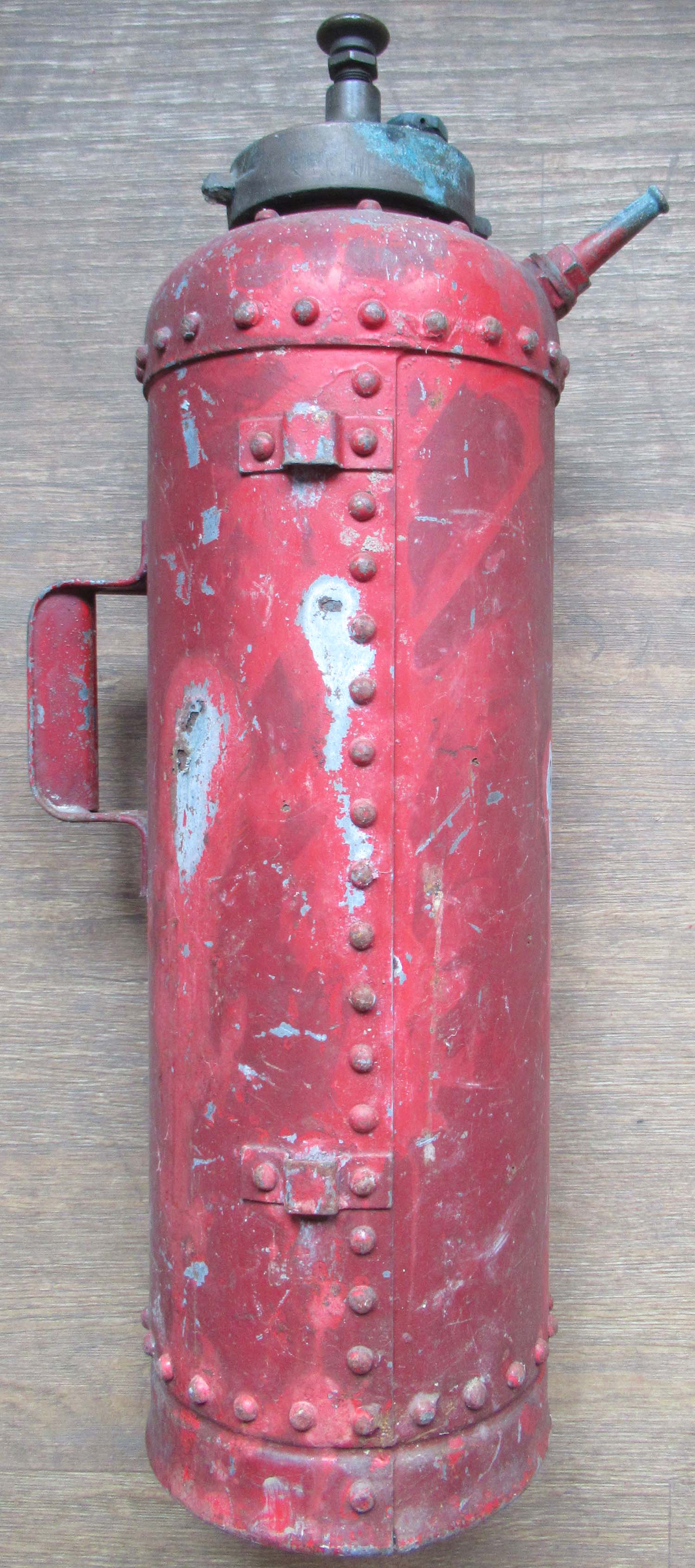
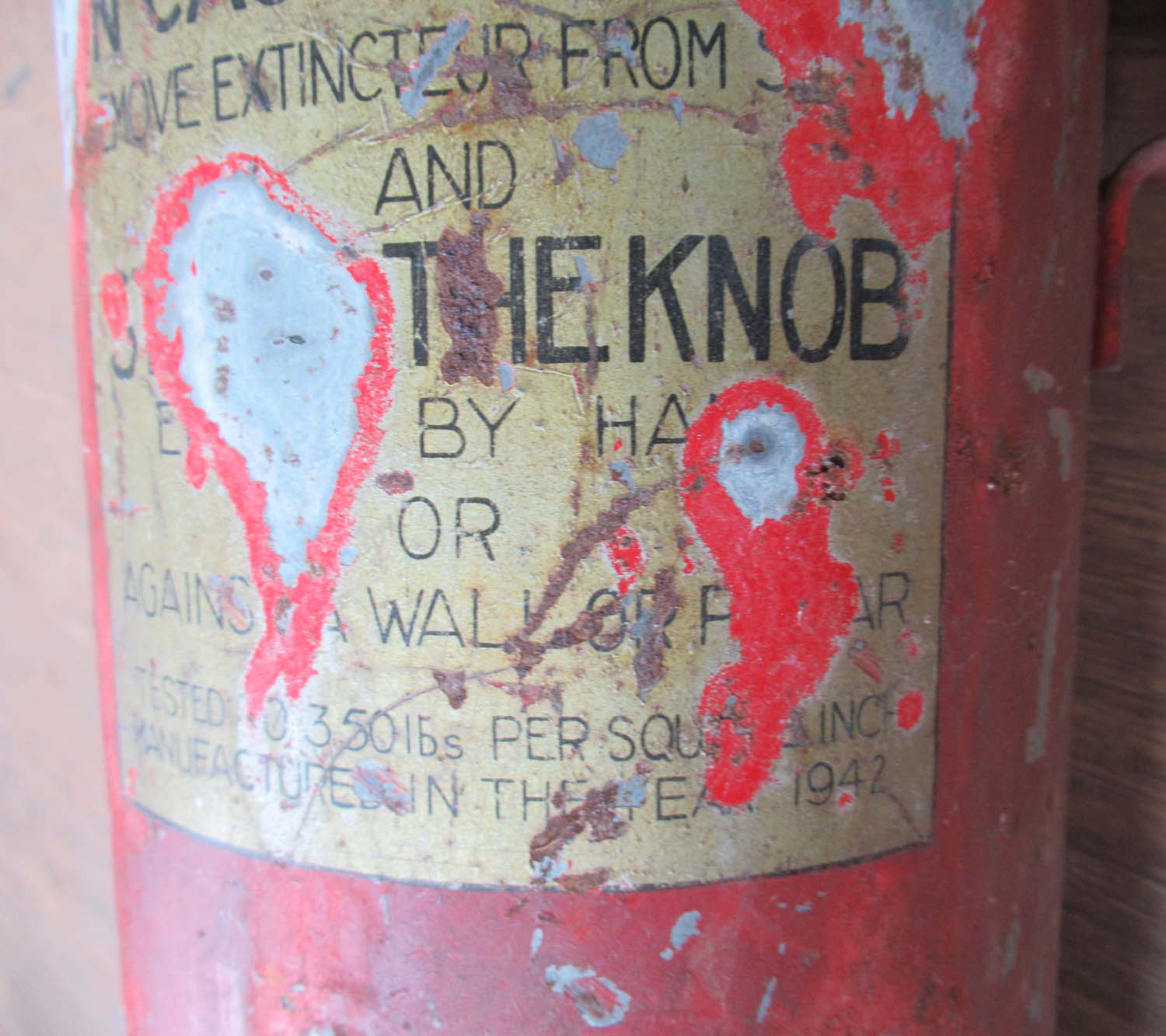
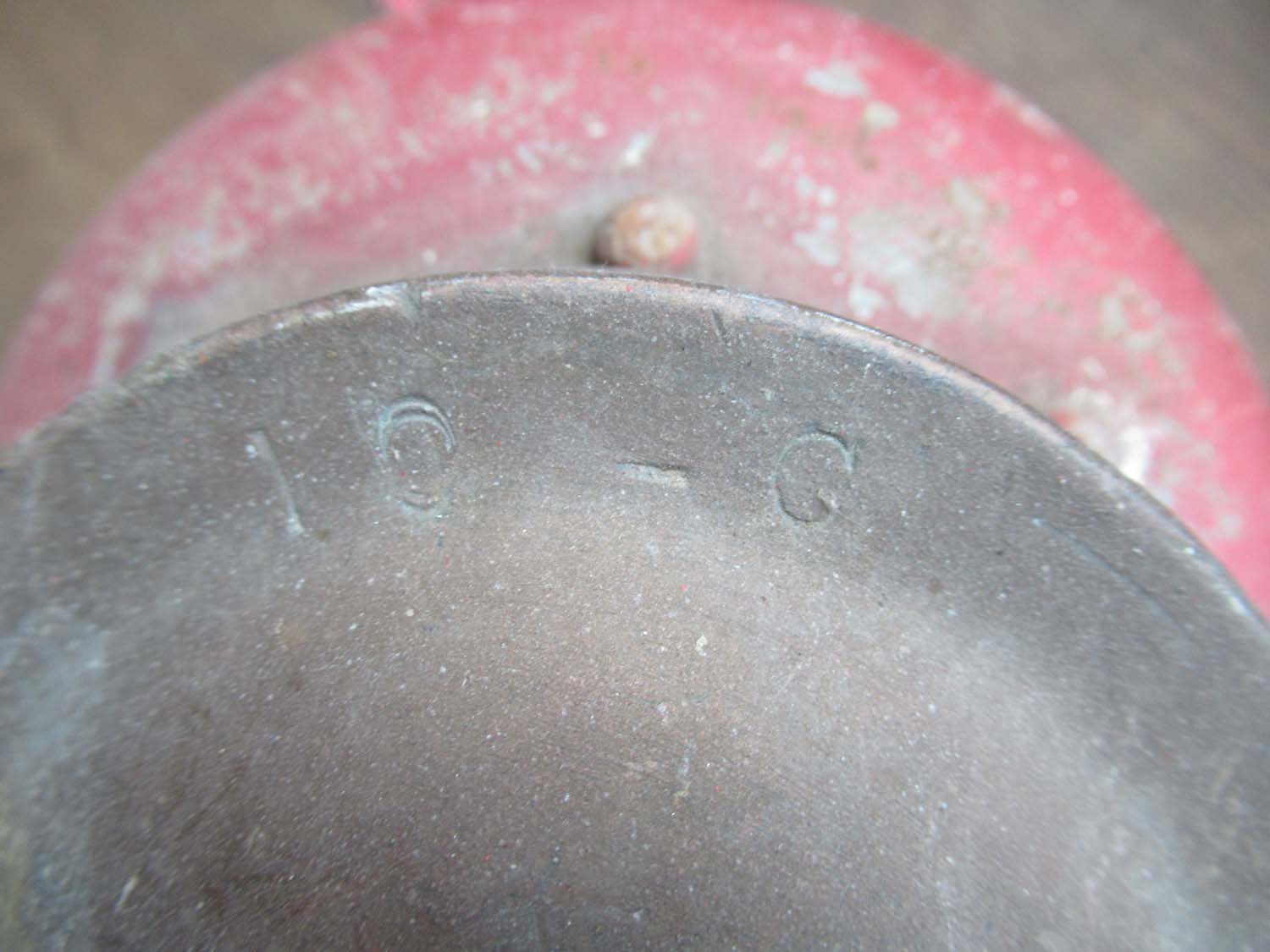
£275


|
|
Click on pictures to enlarge

 |
Shute Target Rocket
Glider
(No 5 Pg 1 Misc)
A rare World War II rocket propelled target
glider designed by Nevil Shute (1899-1960), built by
International Model Aircraft (IMA), 43ins long x 45ins span
.
It was previously owned by a chap who had it as a child and
did some dubious artwork I believe the base colour is
original it also has some damage to one wing but this should
be repairable to anyone with some modelling skills.
Nevil Shute, an English-Australian novelist was an
experienced aeronautical engineer. During World War II he
was commissioned into the Royal Naval Volunteer Reserve,
becoming head of engineering within the directorate of
miscellaneous weapons development.
During this period Shute designed the rocket
propelled gunnery practice Target Glider.
He also oversaw the Swallow Glider which was
a Barnes Wallis proposed, clockwork-controlled smoke laying
glider. The Swallow was to be launched from an LCT (Landing
Craft Tanks) at the invasion beaches. International Model
Aircraft who also made Frog models built both gliders.
They were launched from the catapult and
powered by a 1" rocket. Wrens were trained to set up and
fire these gliders.
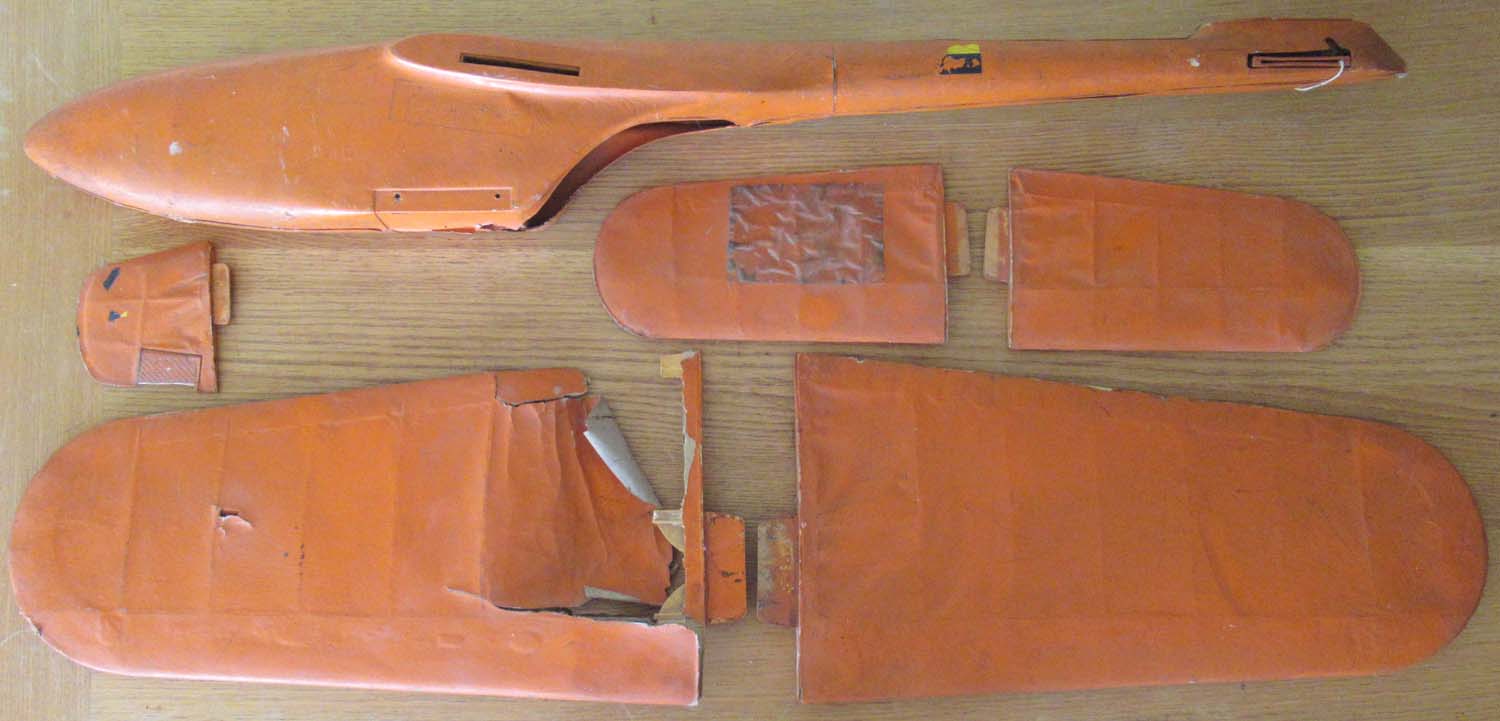
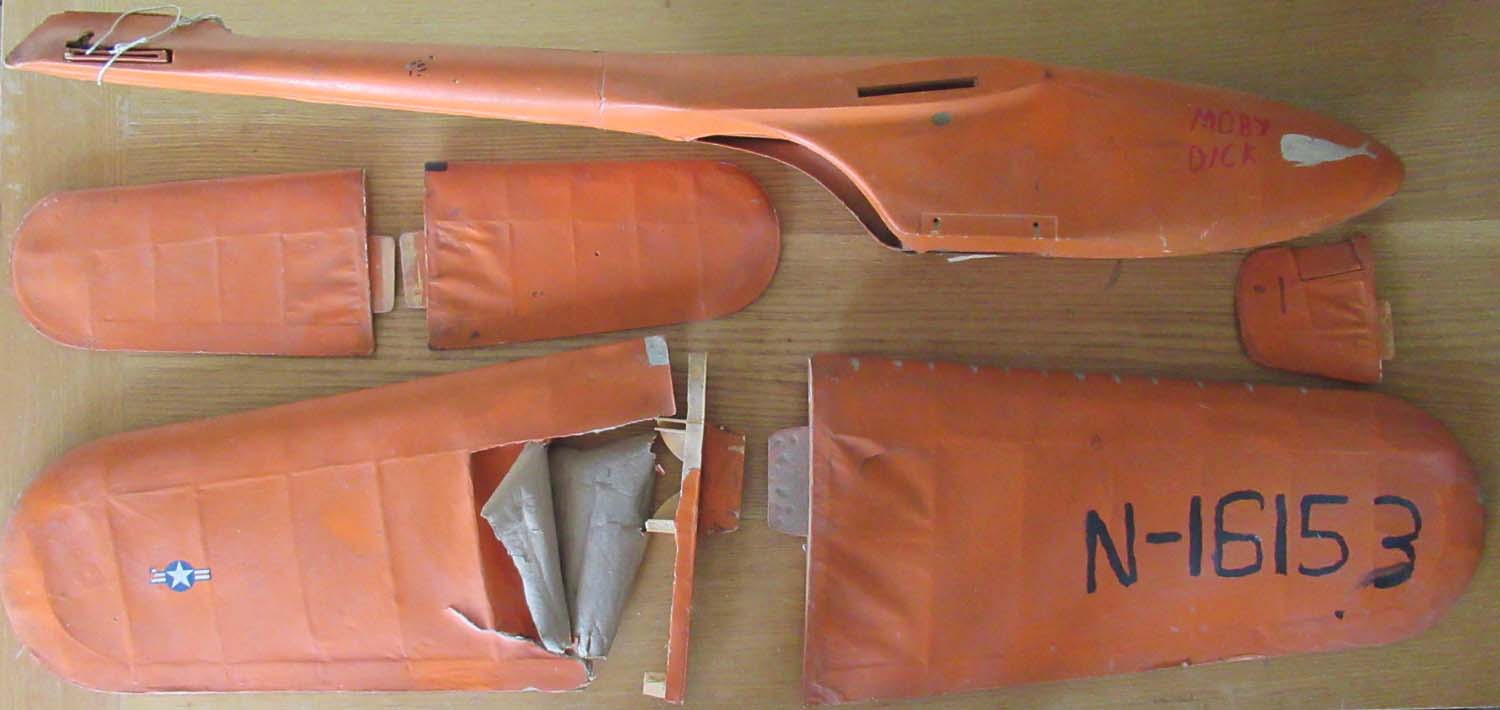
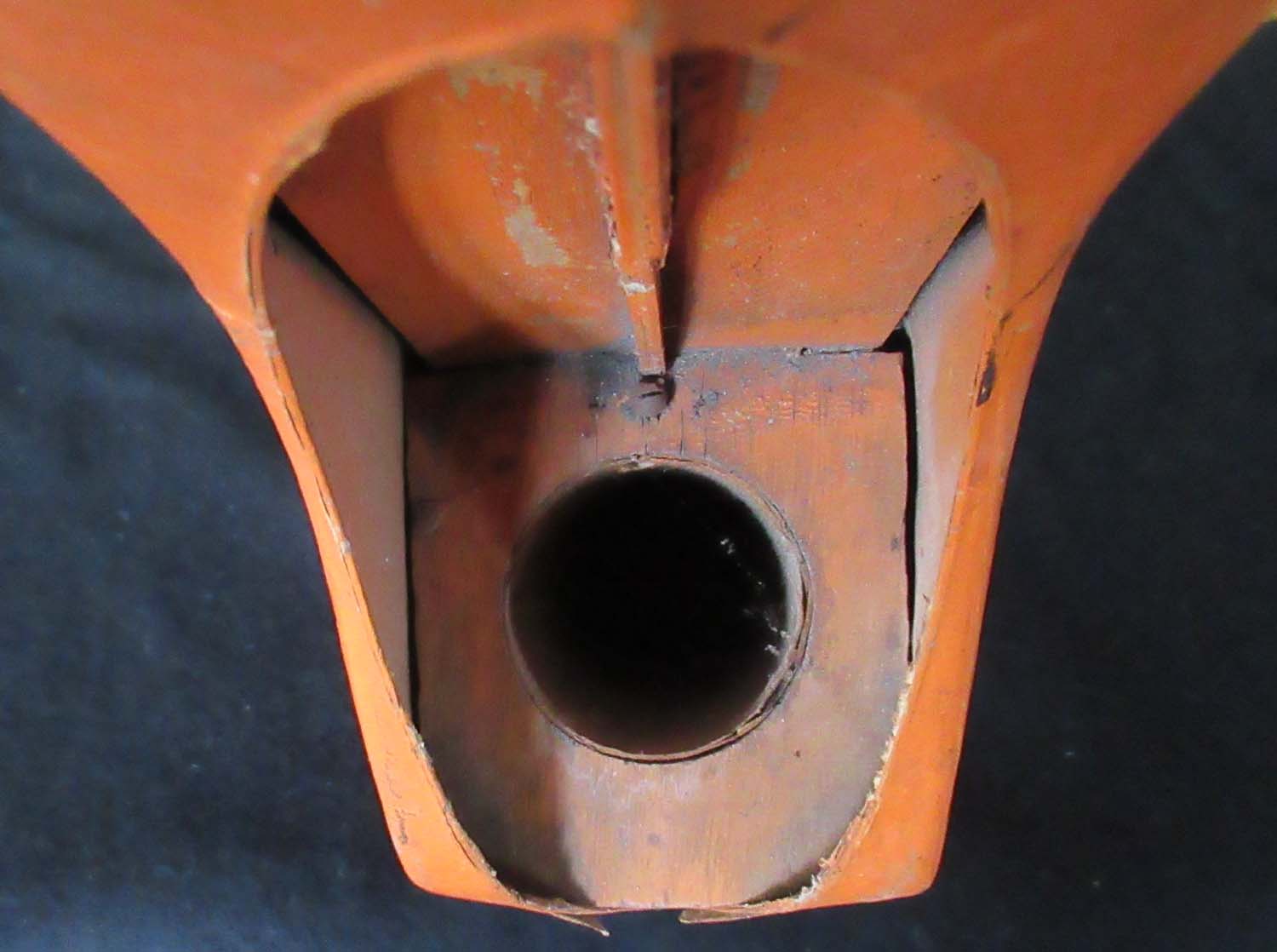
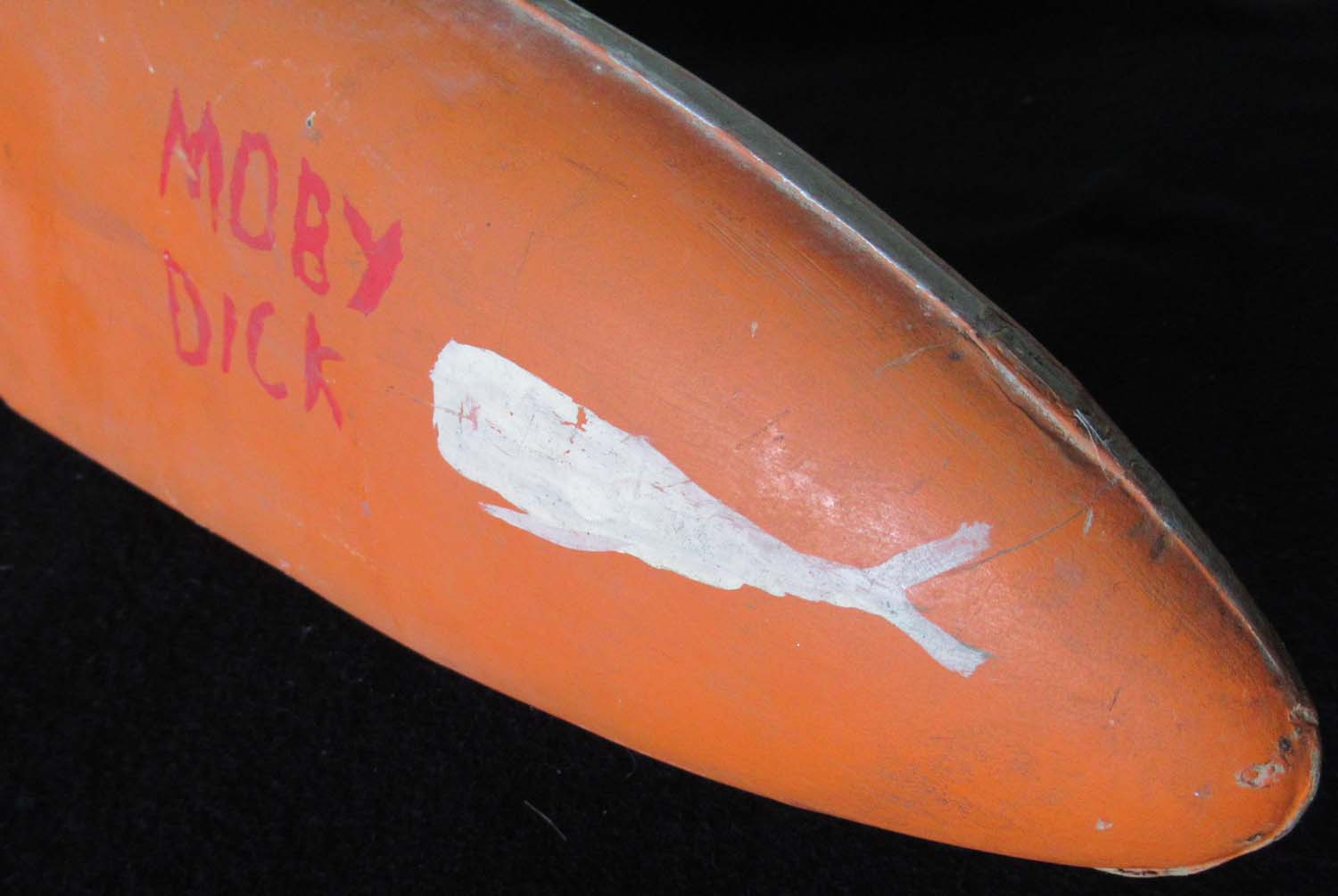
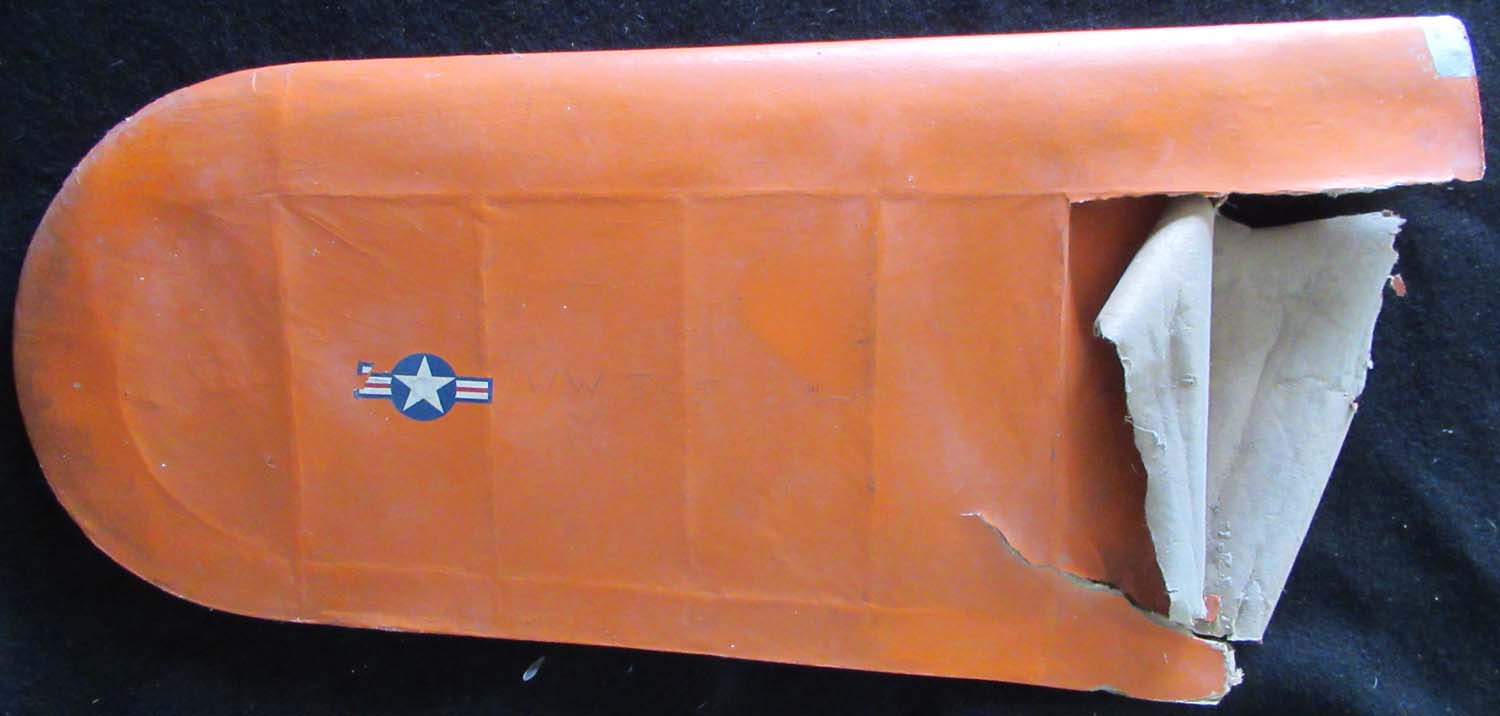
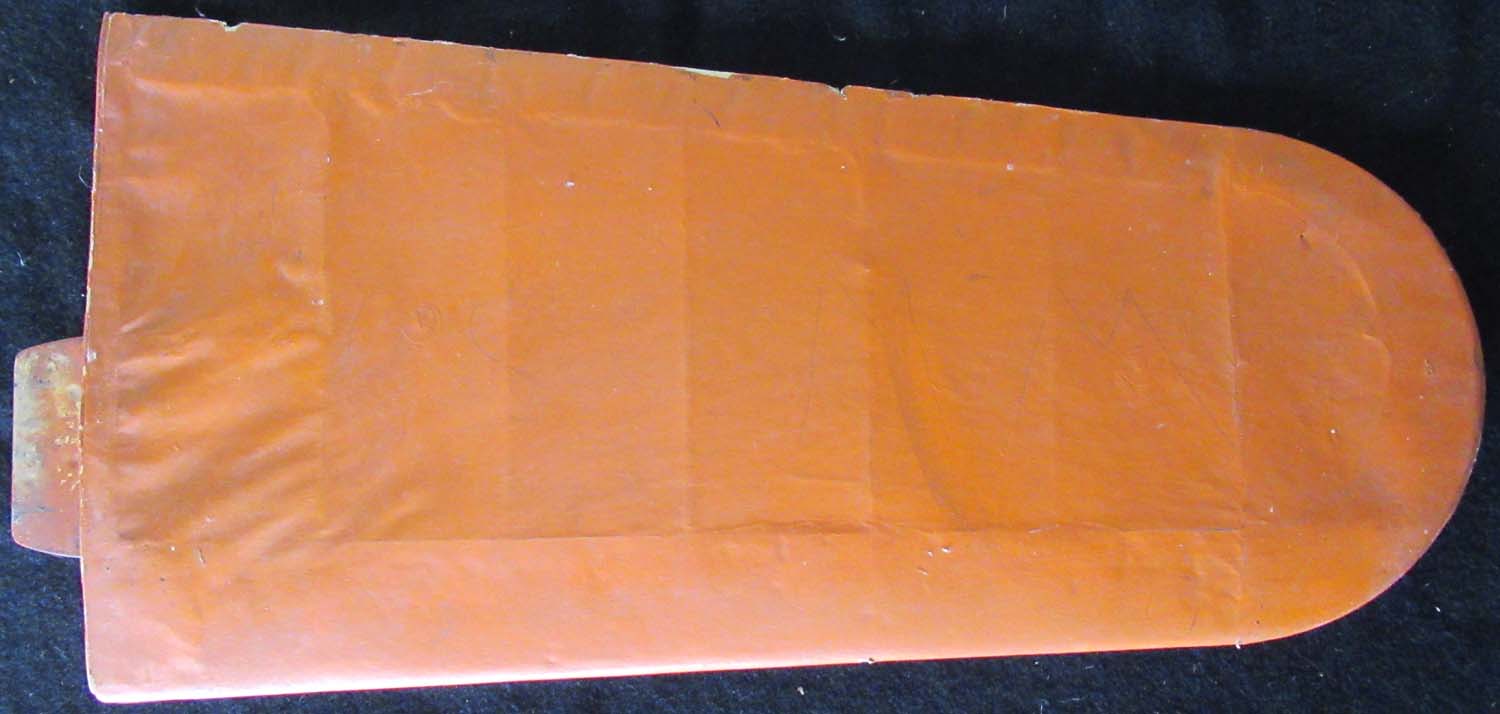
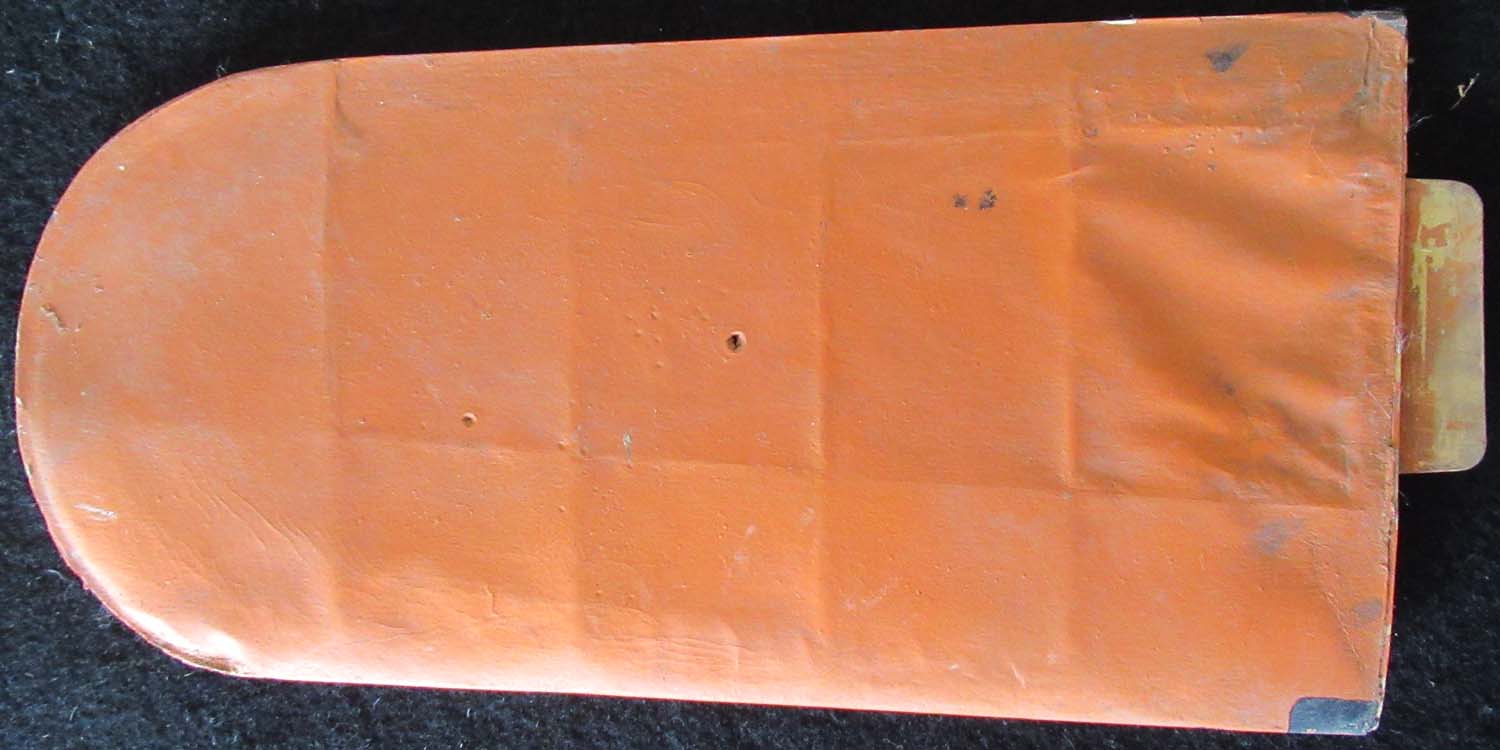
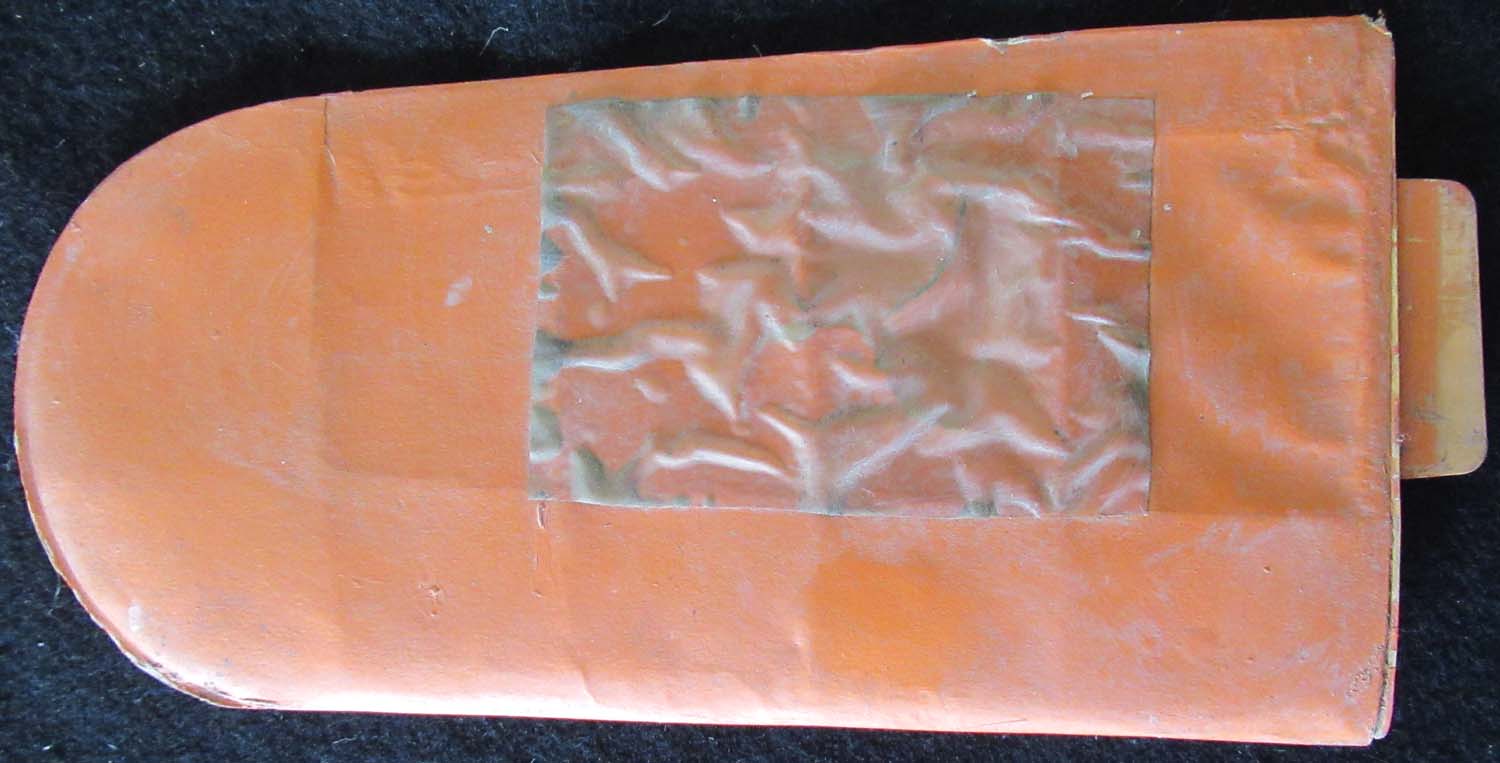
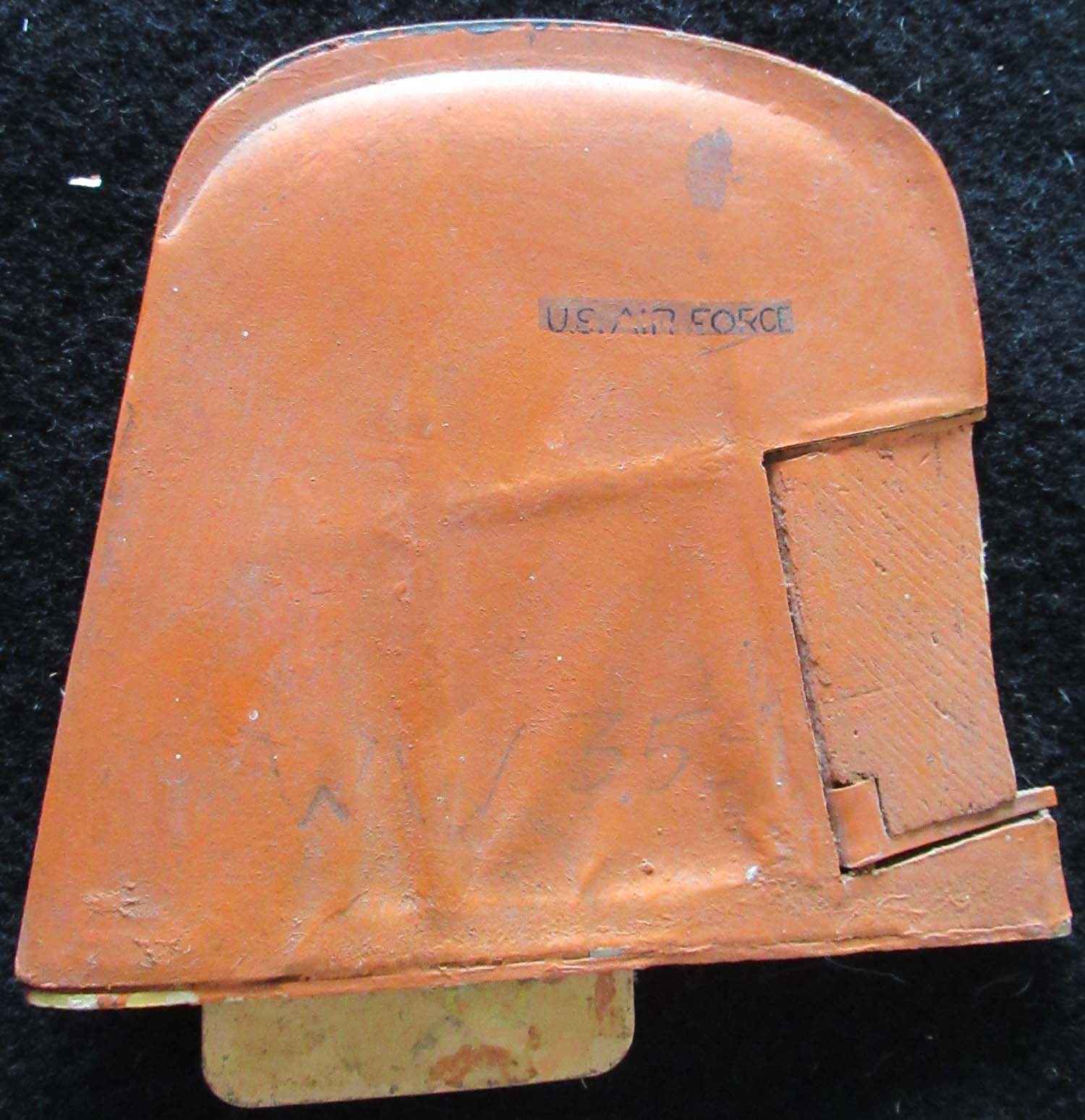
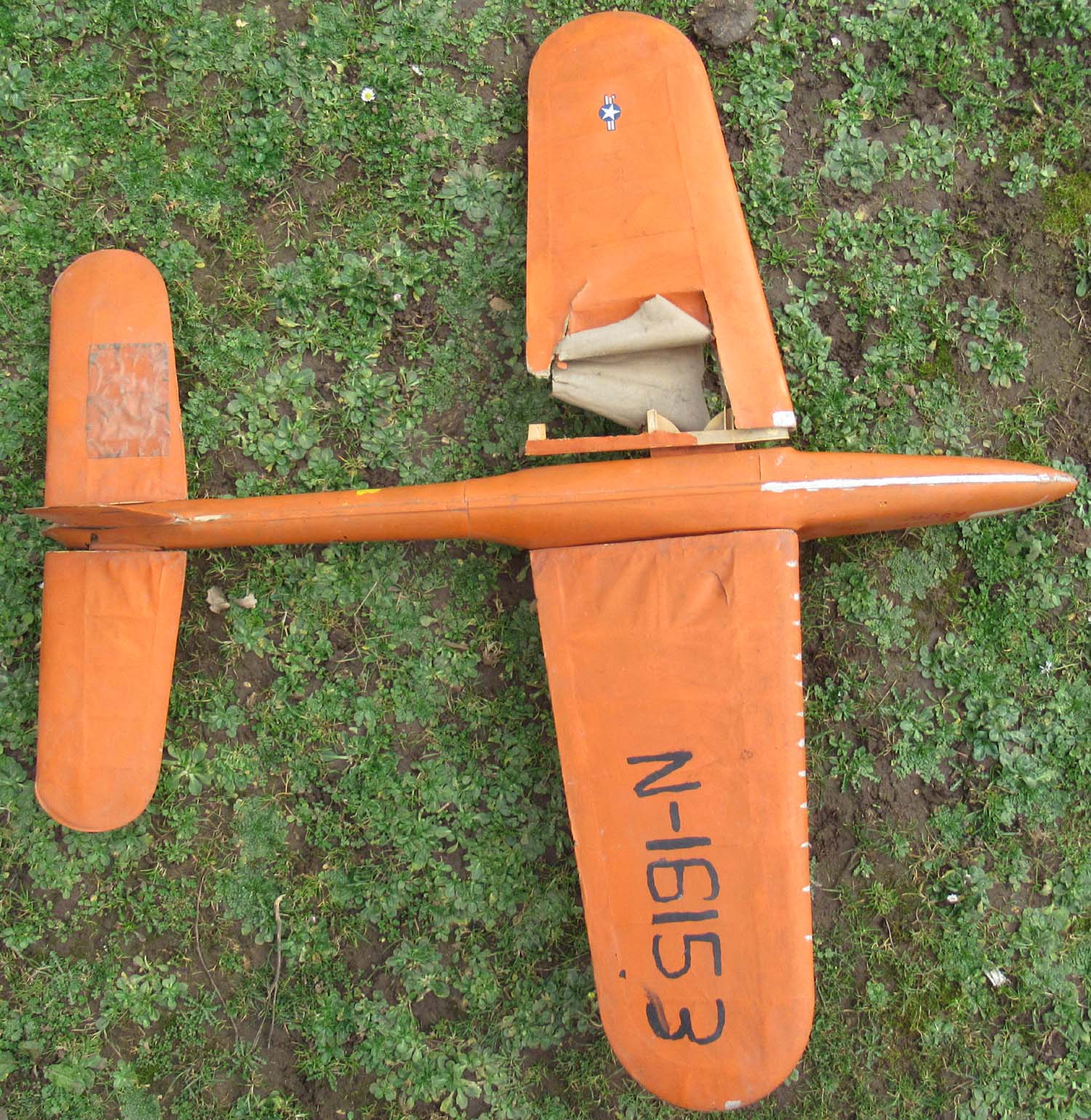
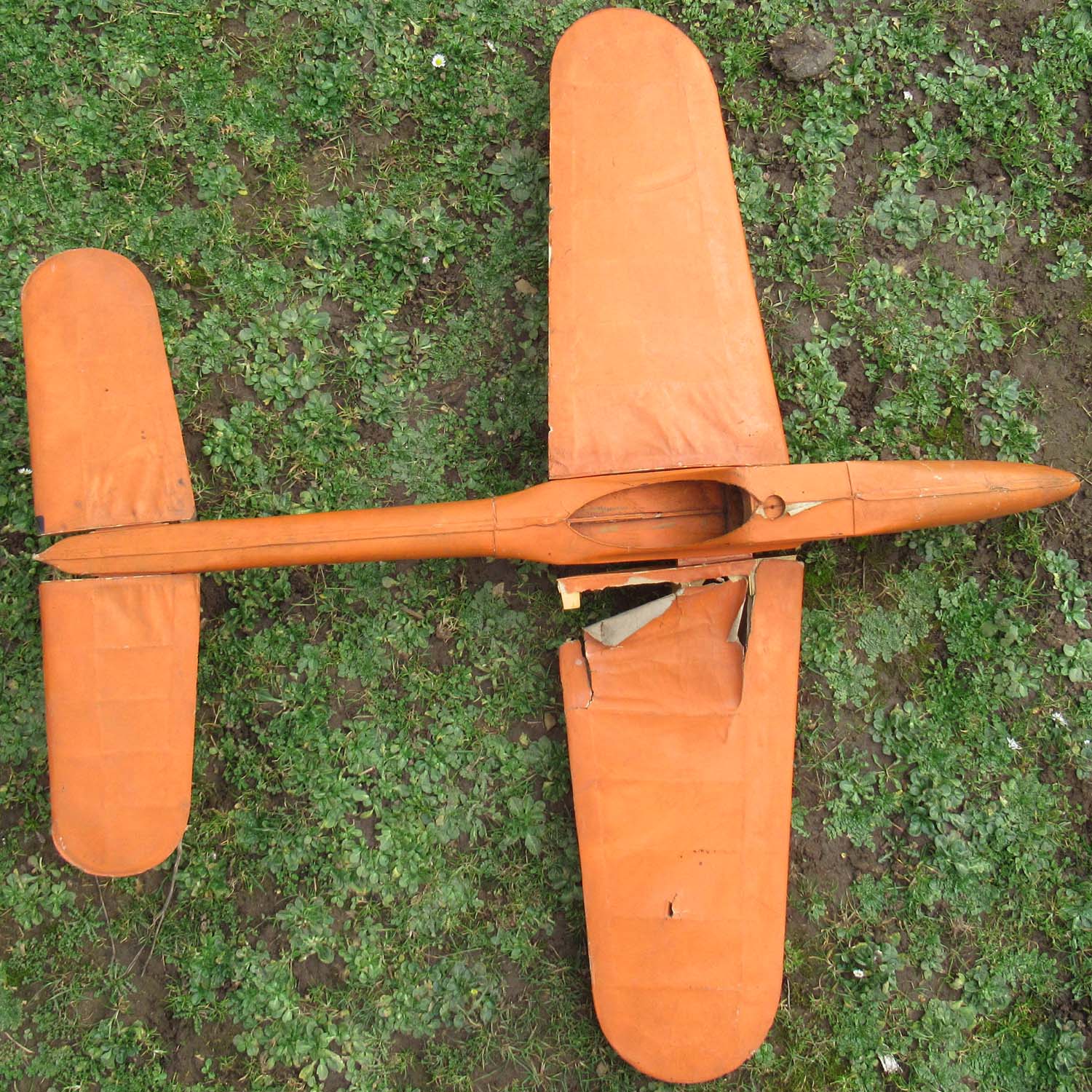
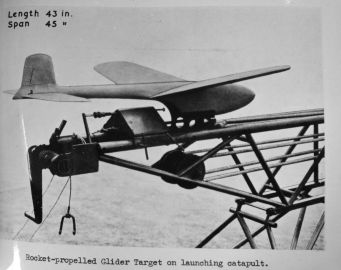
£295


Overseas
buyers please
contact me for shipping
costs
|
Click on
pictures to enlarge.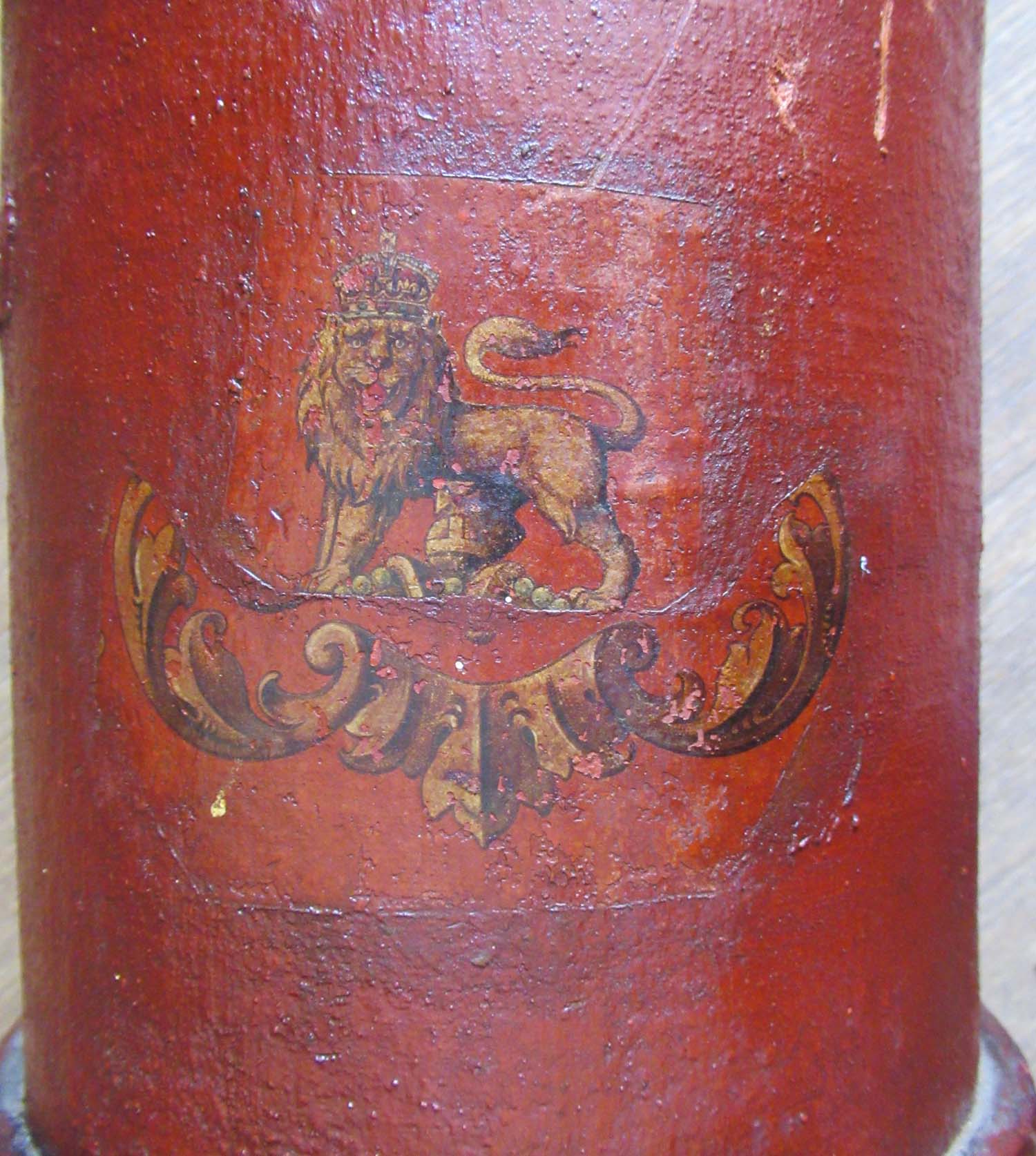
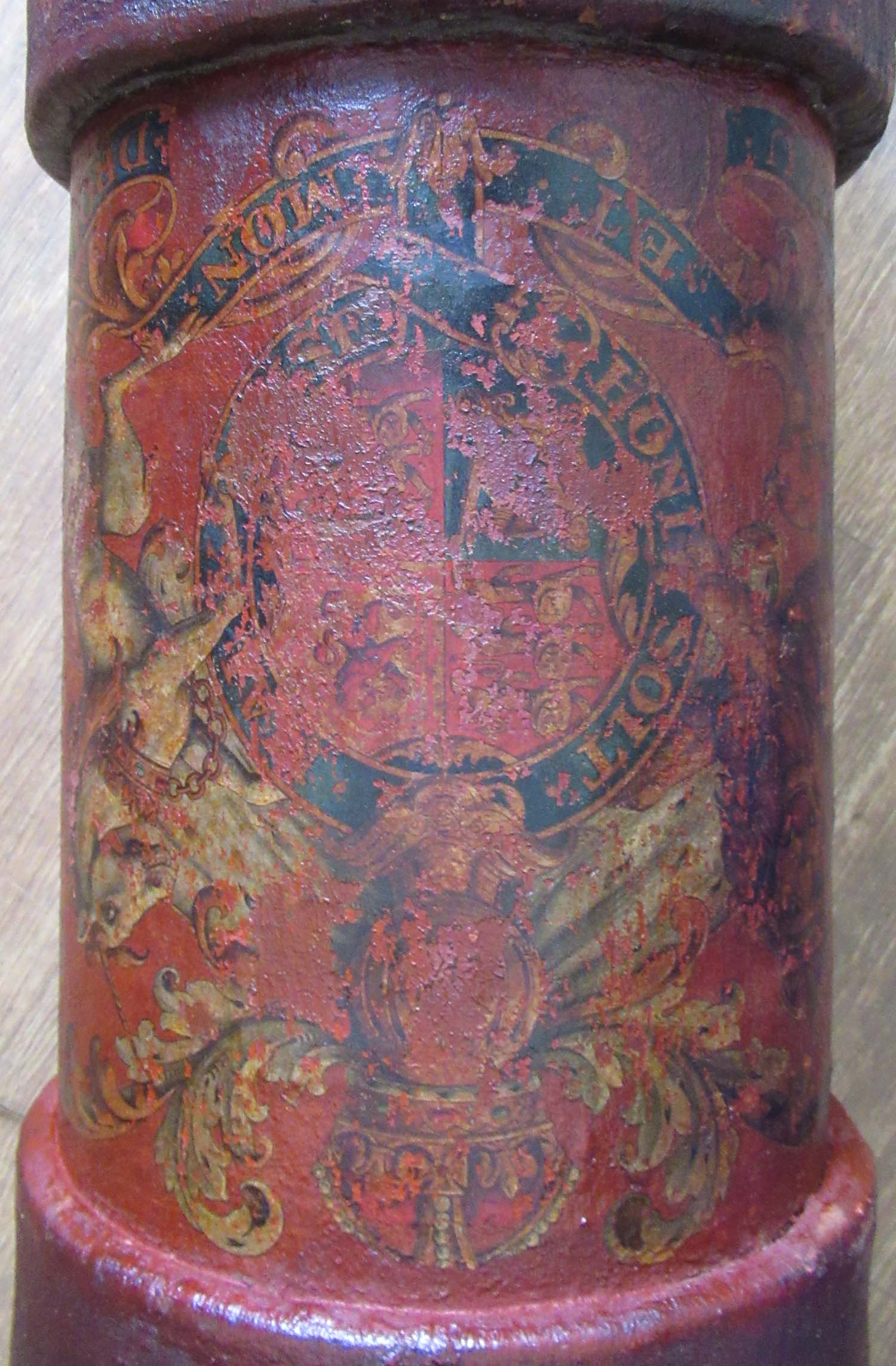
£245


|
Red Cordite
Carrier (No 4 Pg 1 Misc)
Here we have a red shell
carrier, with the Royal Coat of Arms applied to the front.
Dated around the beginning
of the 20th century. Made of cork and covered in canvas and
leather.
It was used on Royal Navy
ships to carry cordite charges.
Perfect for use as a stick
or umbrella stand.
Click on pictures to enlarge
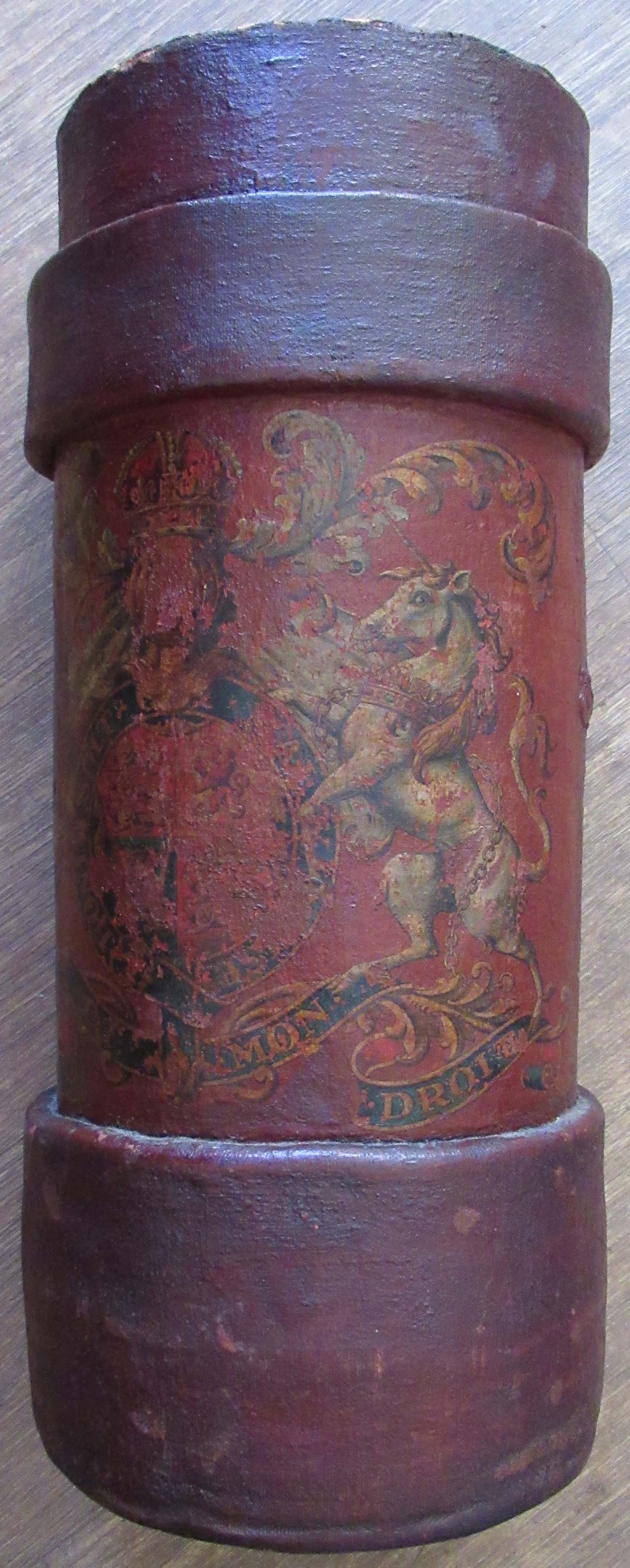
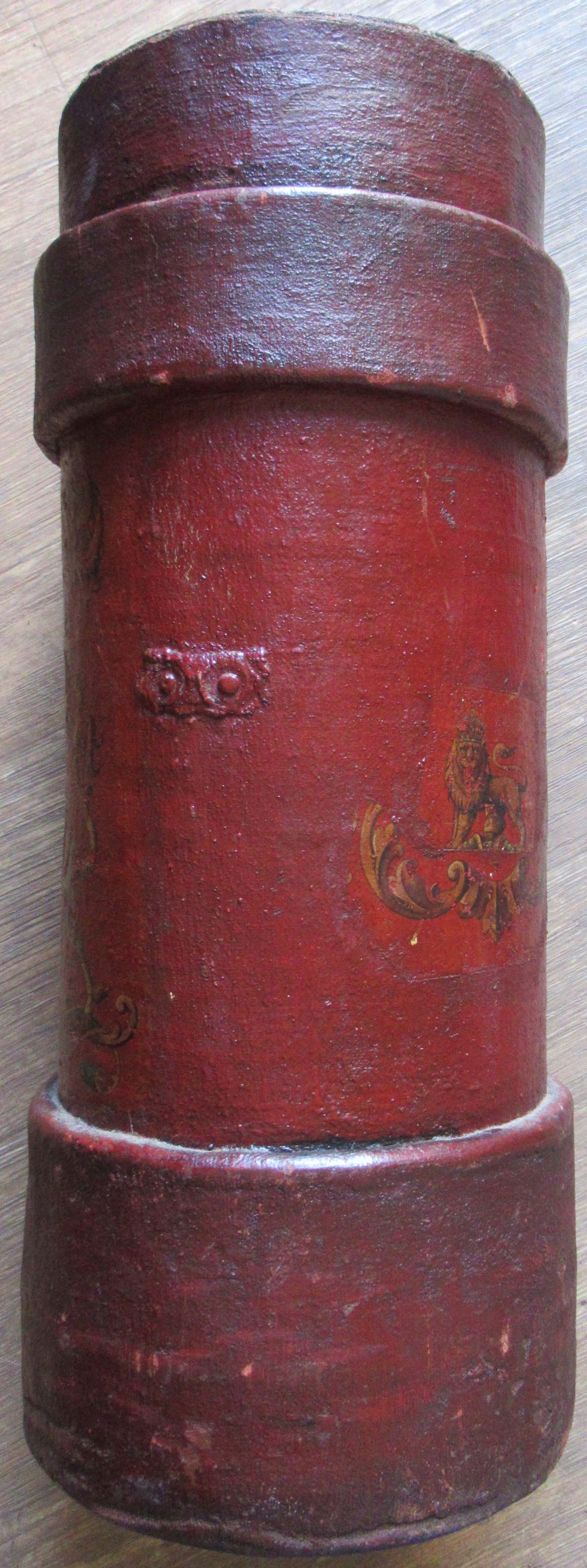
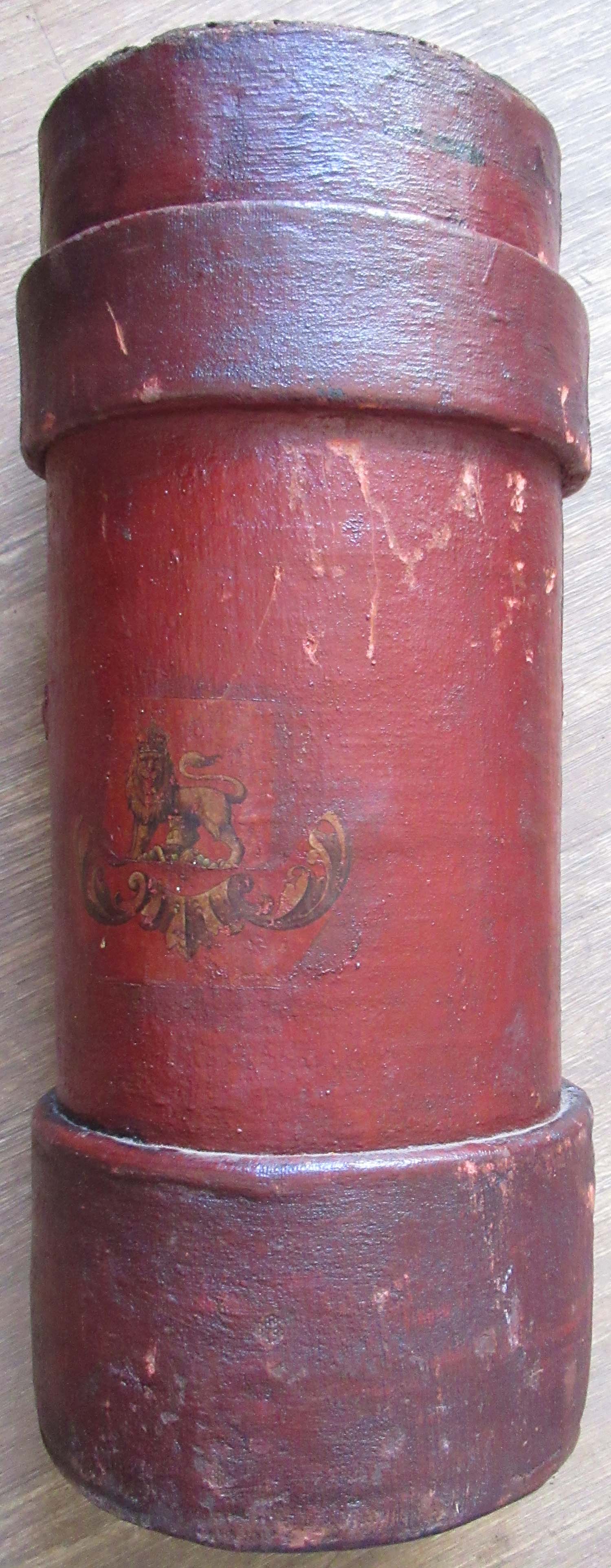
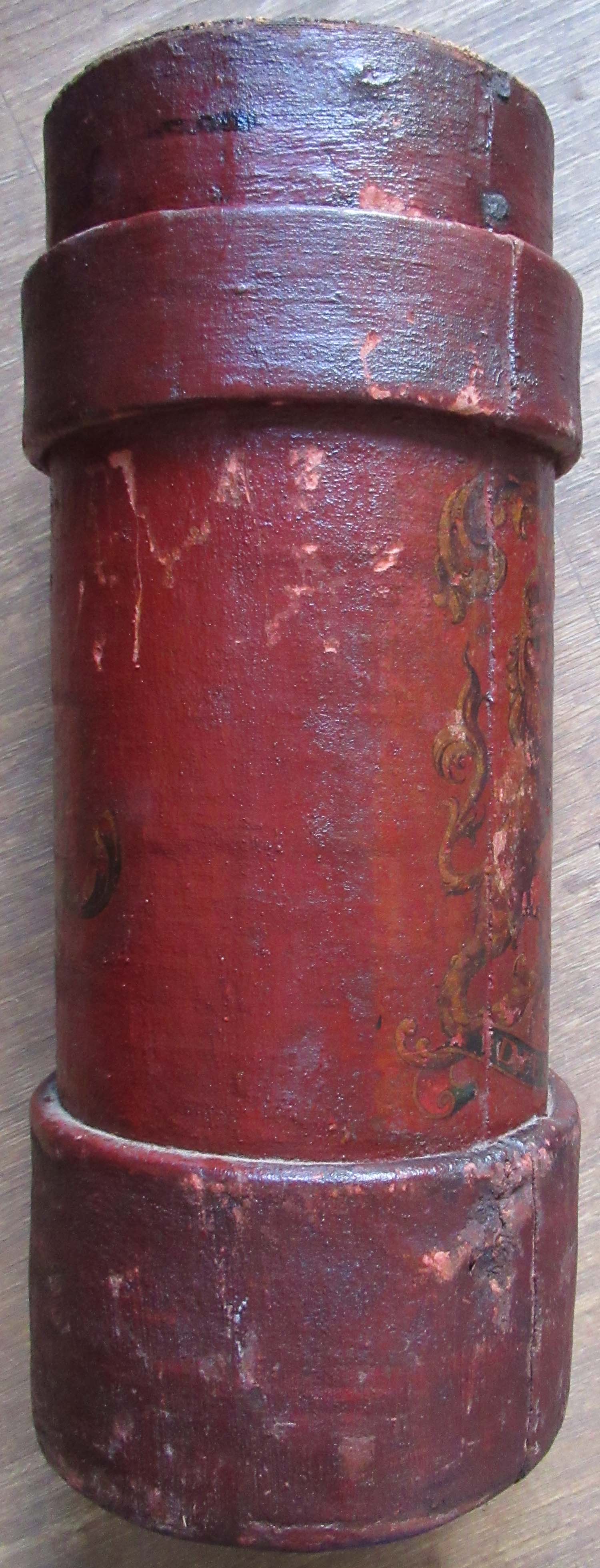
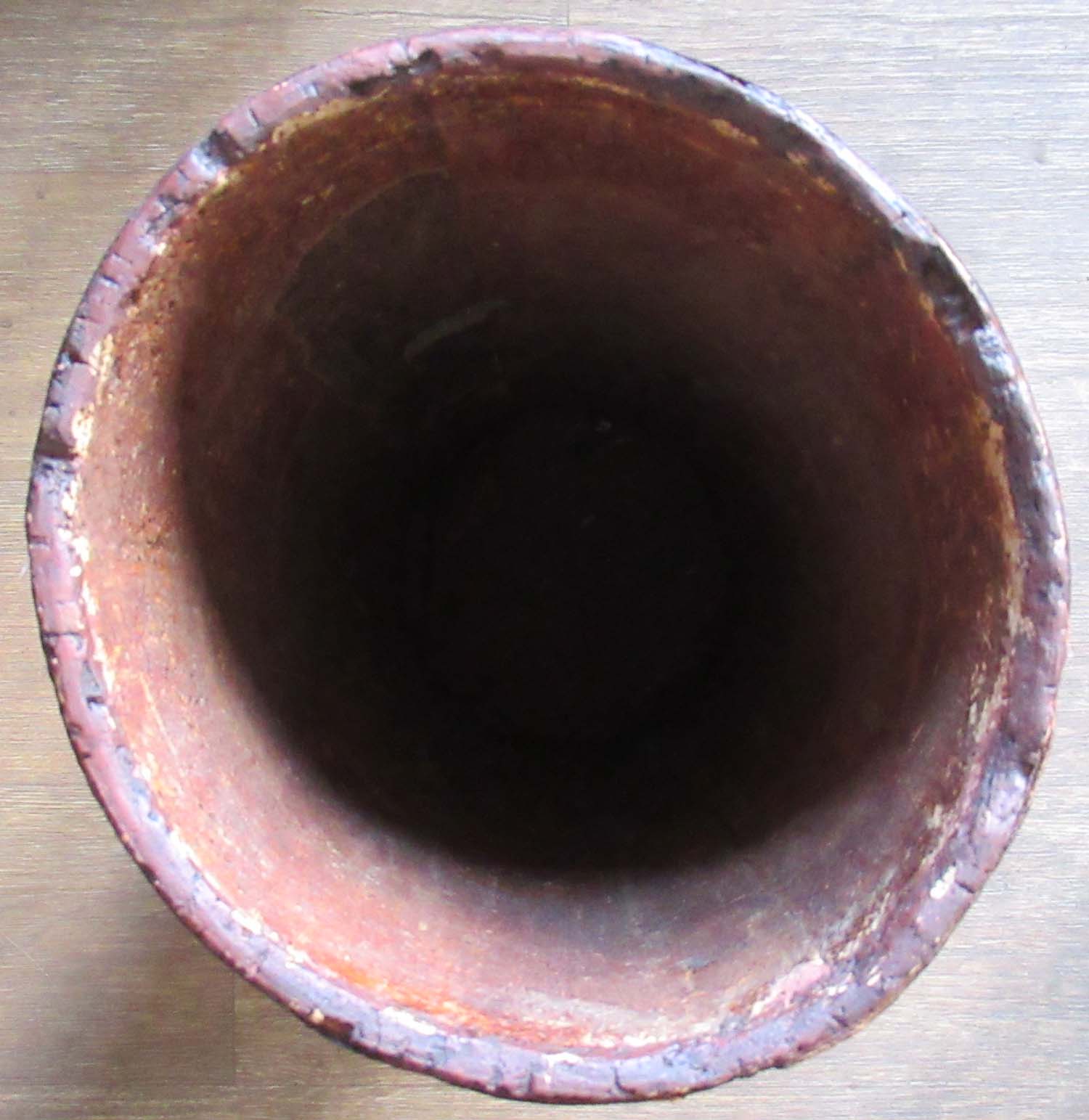
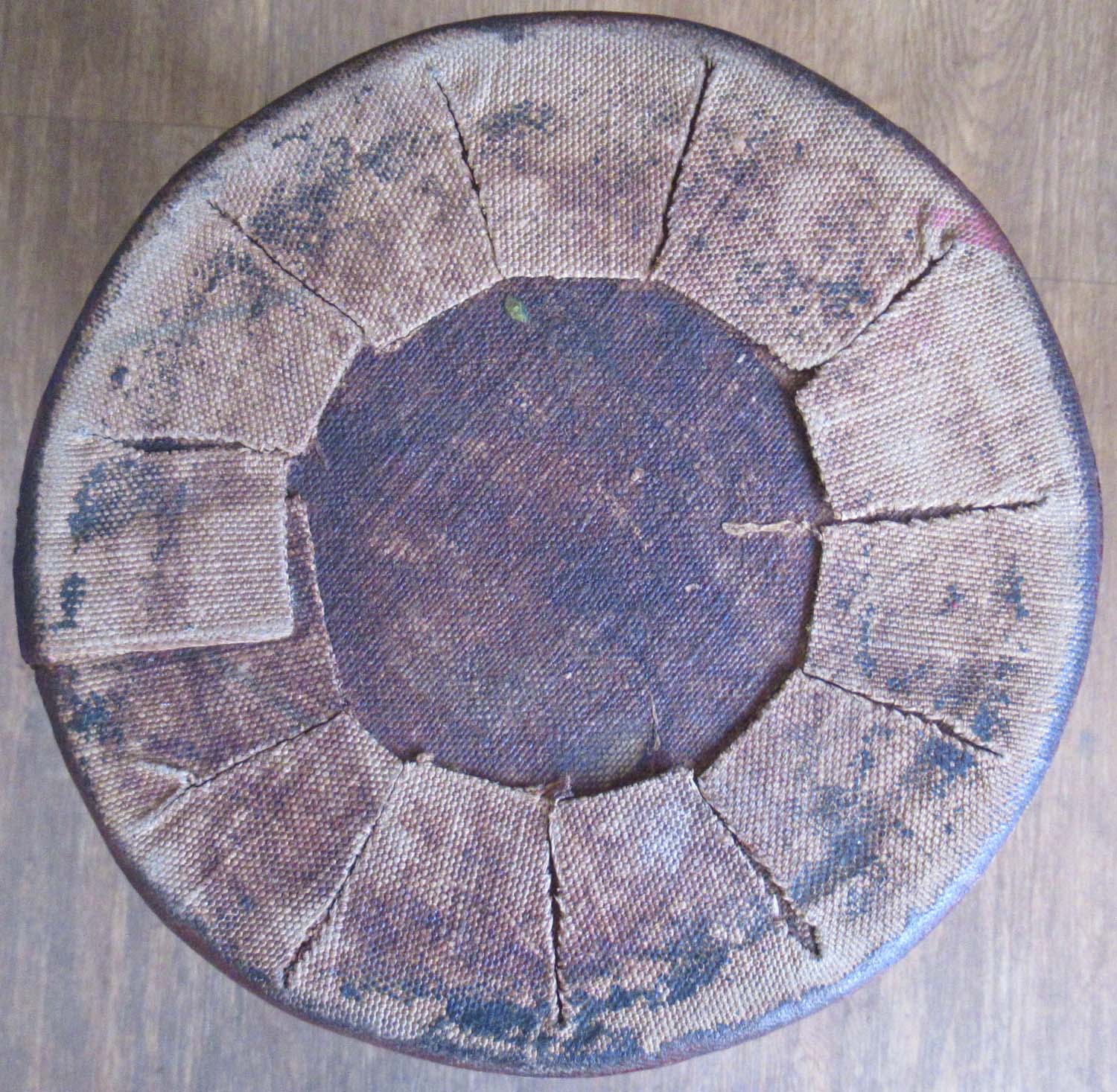 |
|
Click on
pictures to enlarge

 |
Wooden Box (No 3 Pg 1 Misc)
Here we have an RAF WWII
storage box. I have no idea what was in it as its not
labelled by I have seen similar with gunsight tops .
Click on pictures to enlarge


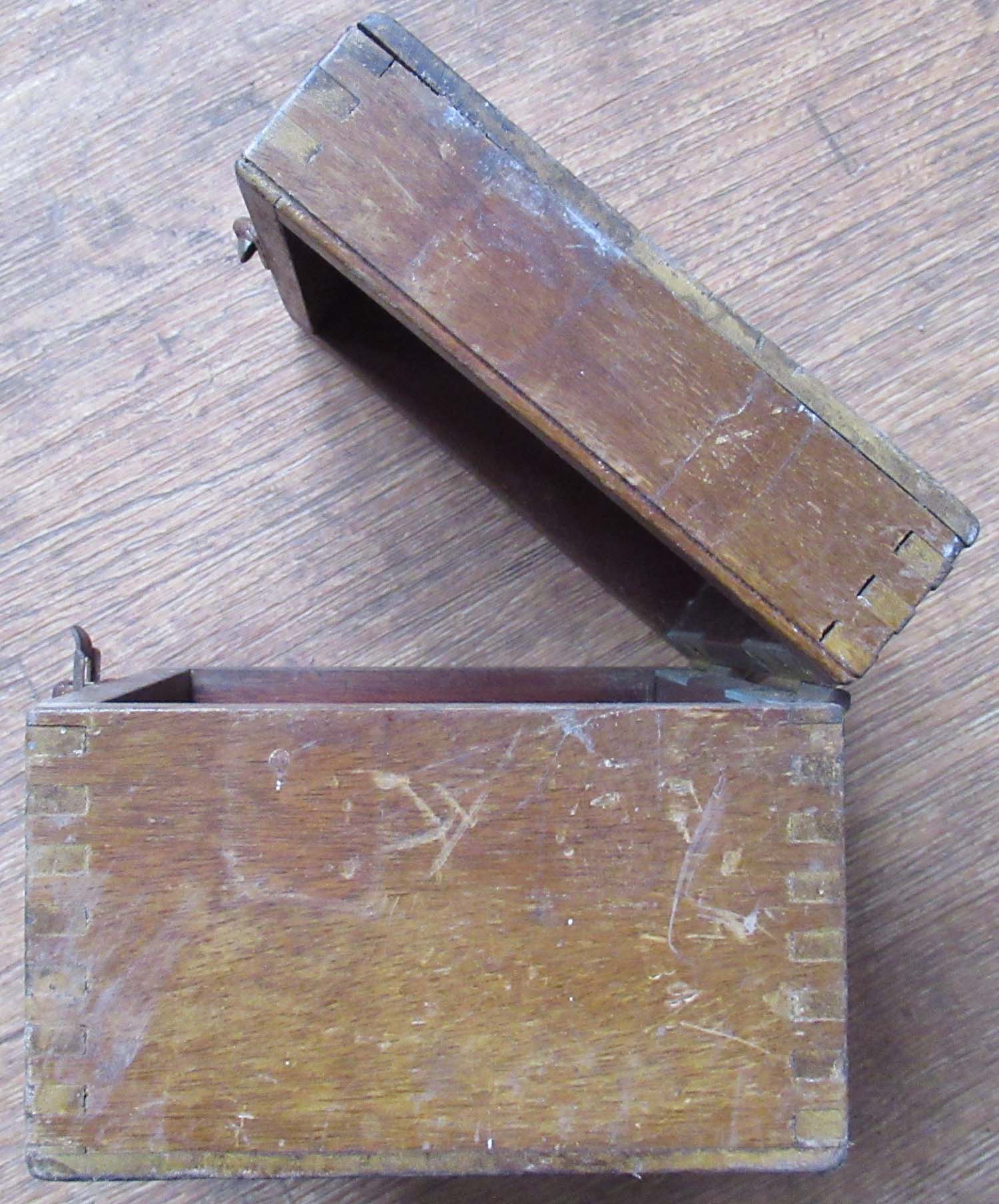
£35


|
|
Click on
pictures to enlarge
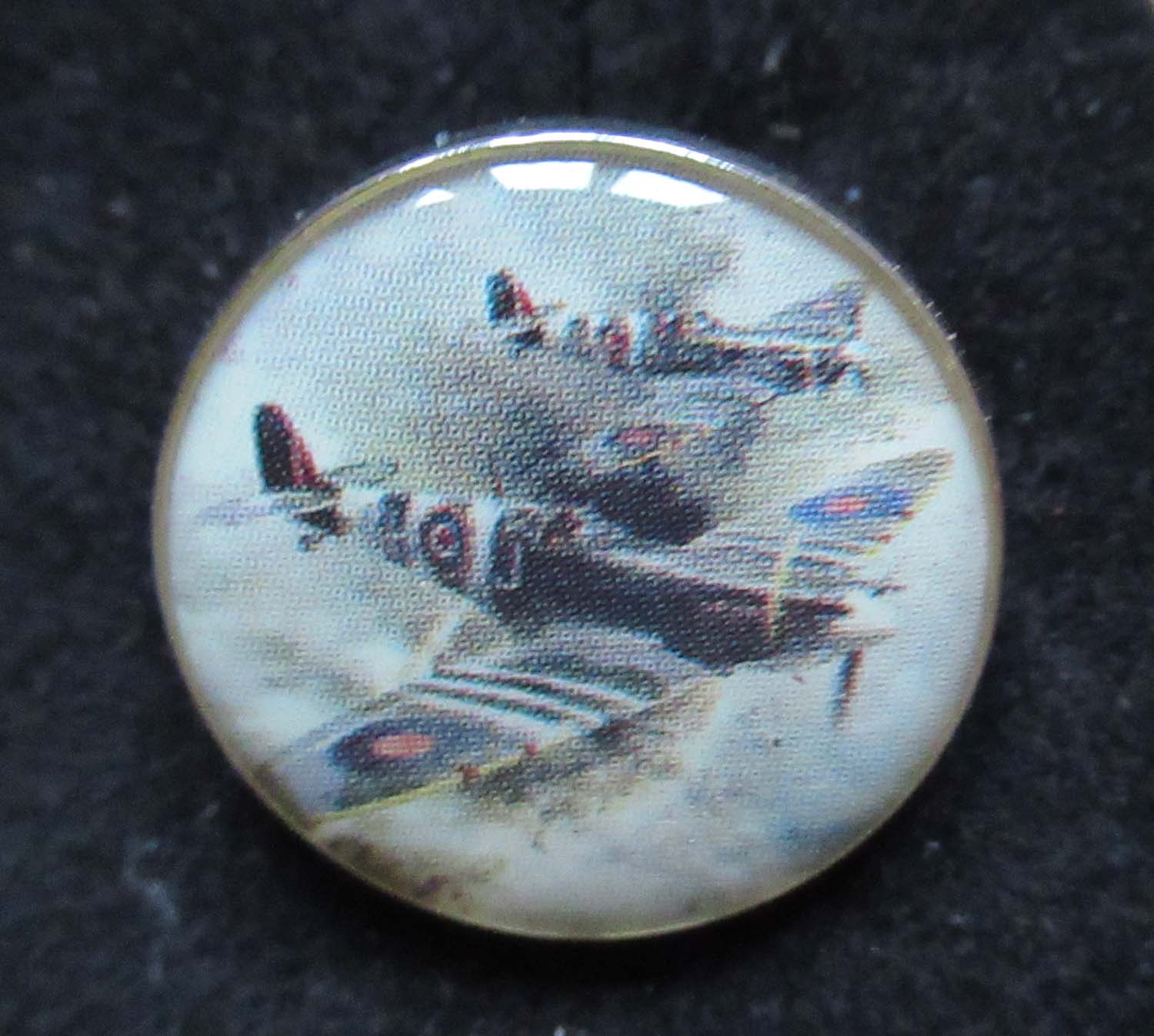
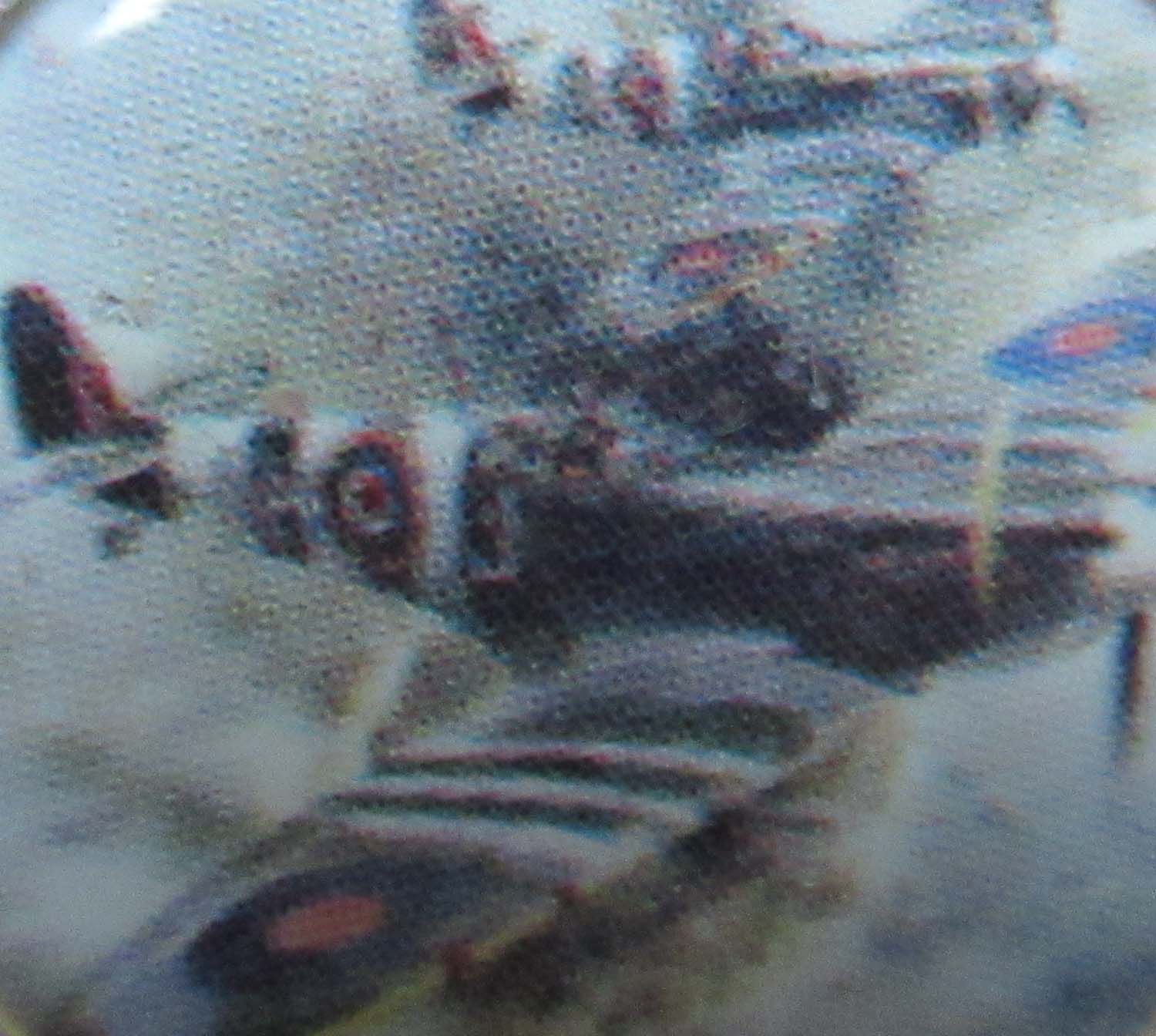 |
Spitfire Design
Cufflinks (No 1 Pg 1 Misc)
Here we have a nice pair
of Spitfire design cufflinks. In gift box. Approximately 20
mm in diameter.
Click on pictures to enlarge
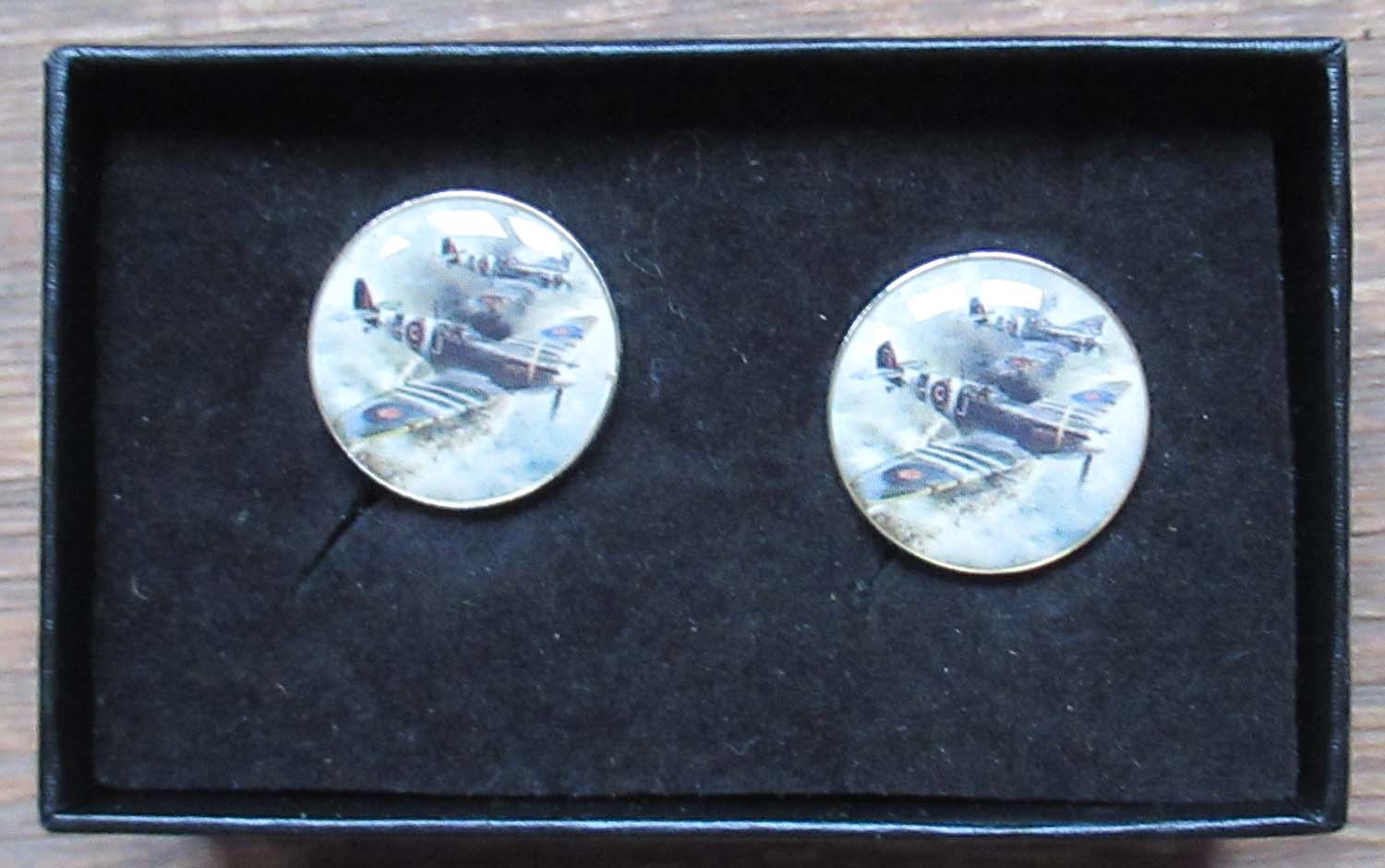
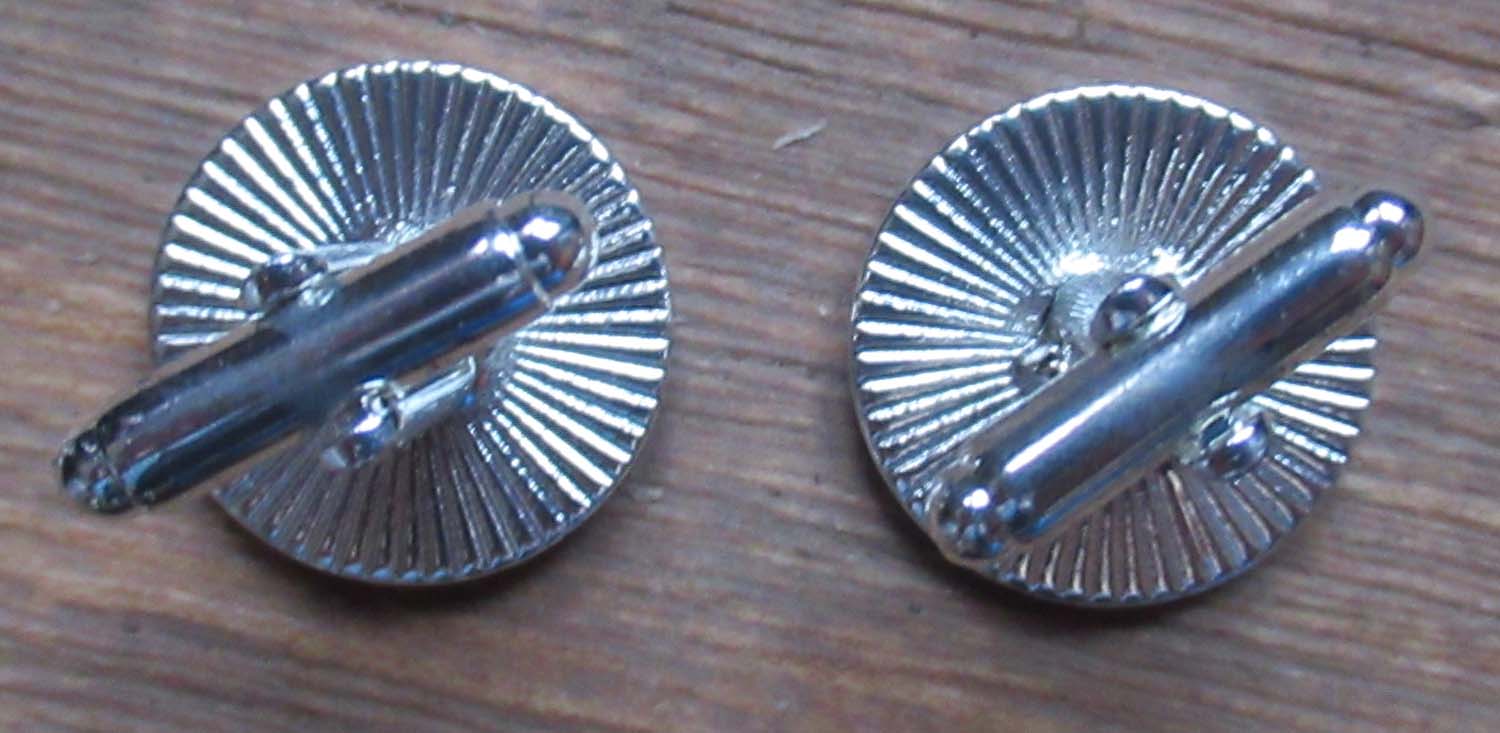
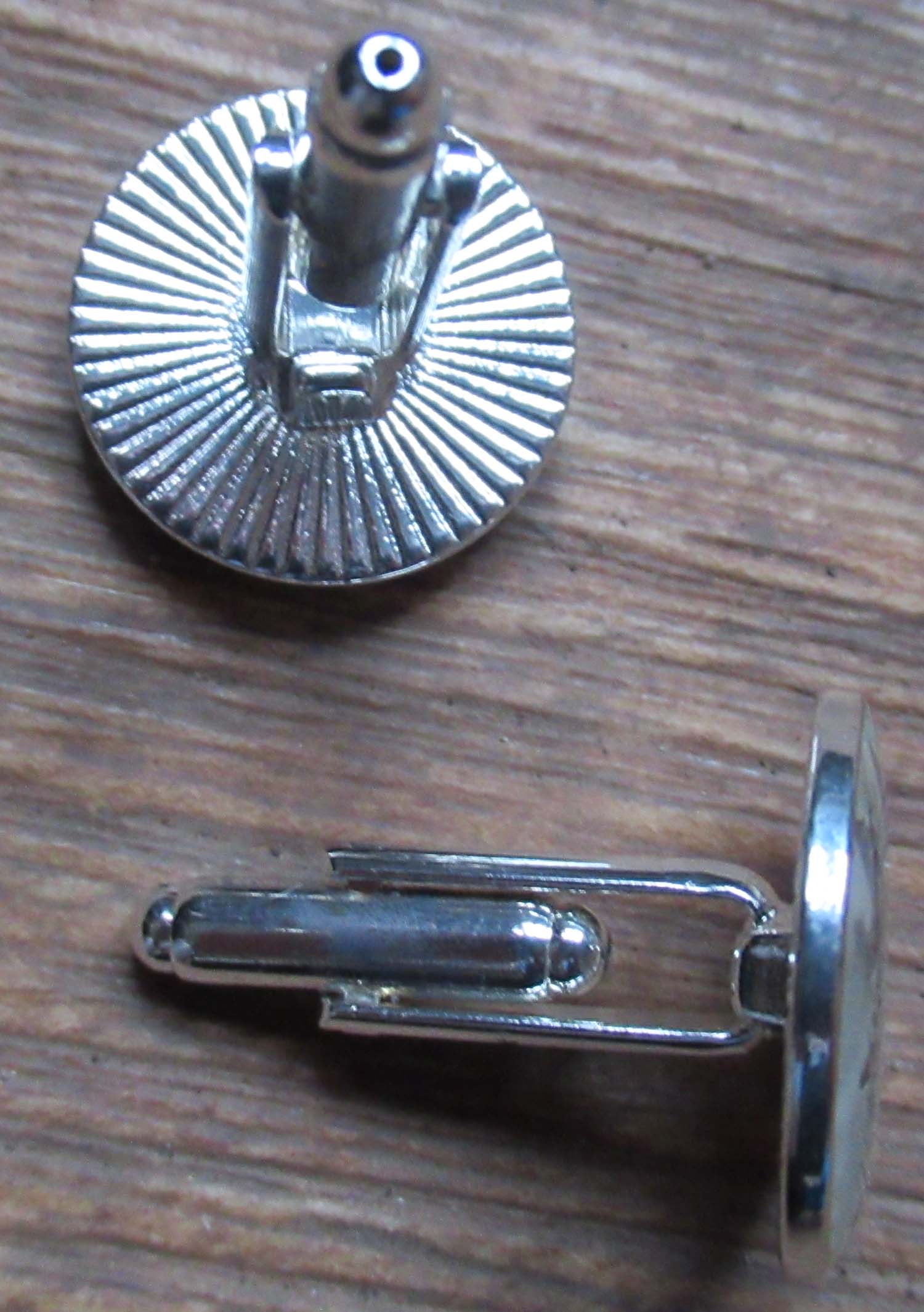

£20


|
|
Click on
pictures to enlarge
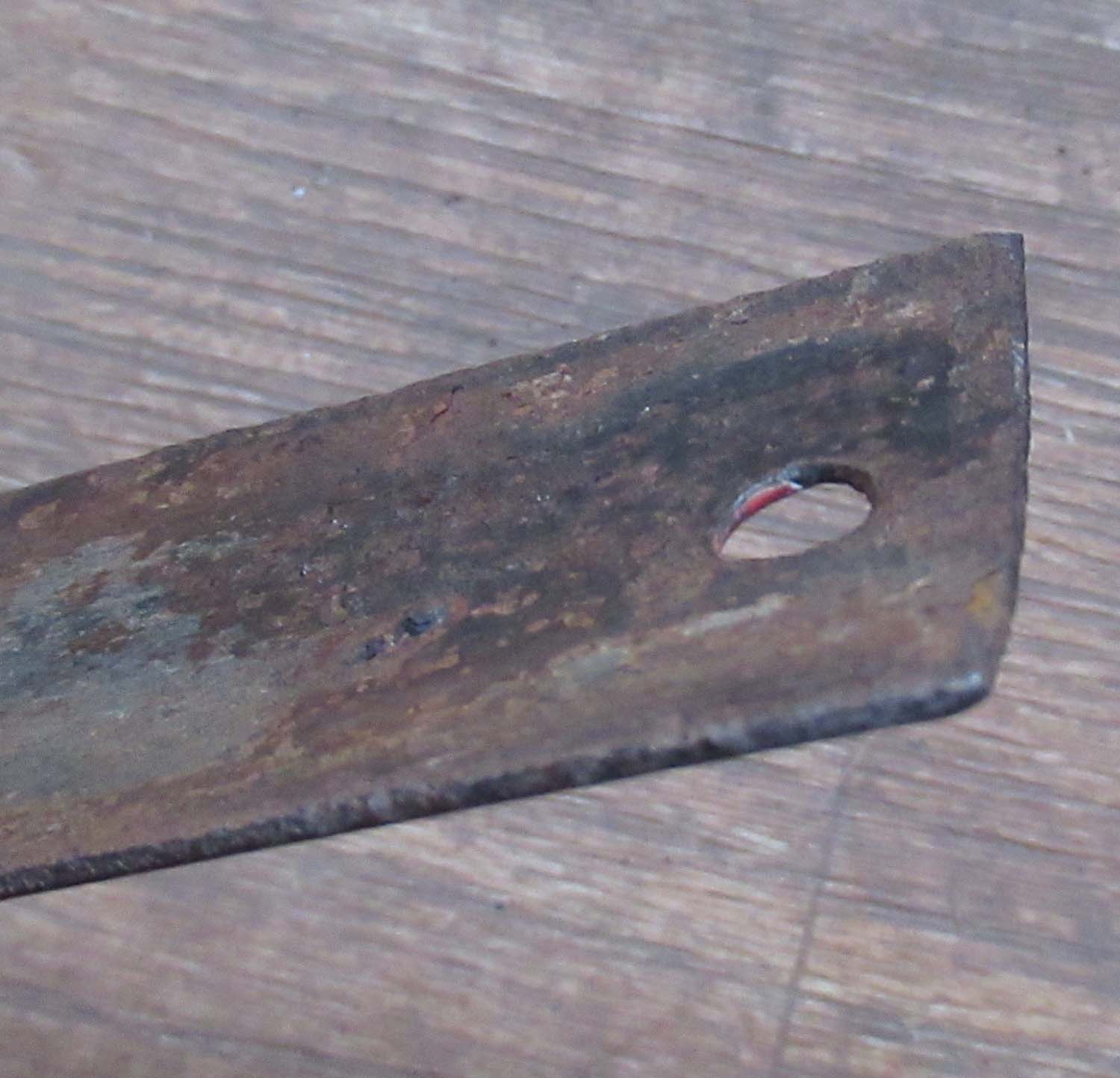 £30


|
Wartime Enamel
DANGER Sign (No 2 Pg 1 Misc)
Here we have an enamel
coated wartime sign. Made of metal and approximately 305 mm
in length.
Click on pictures to enlarge
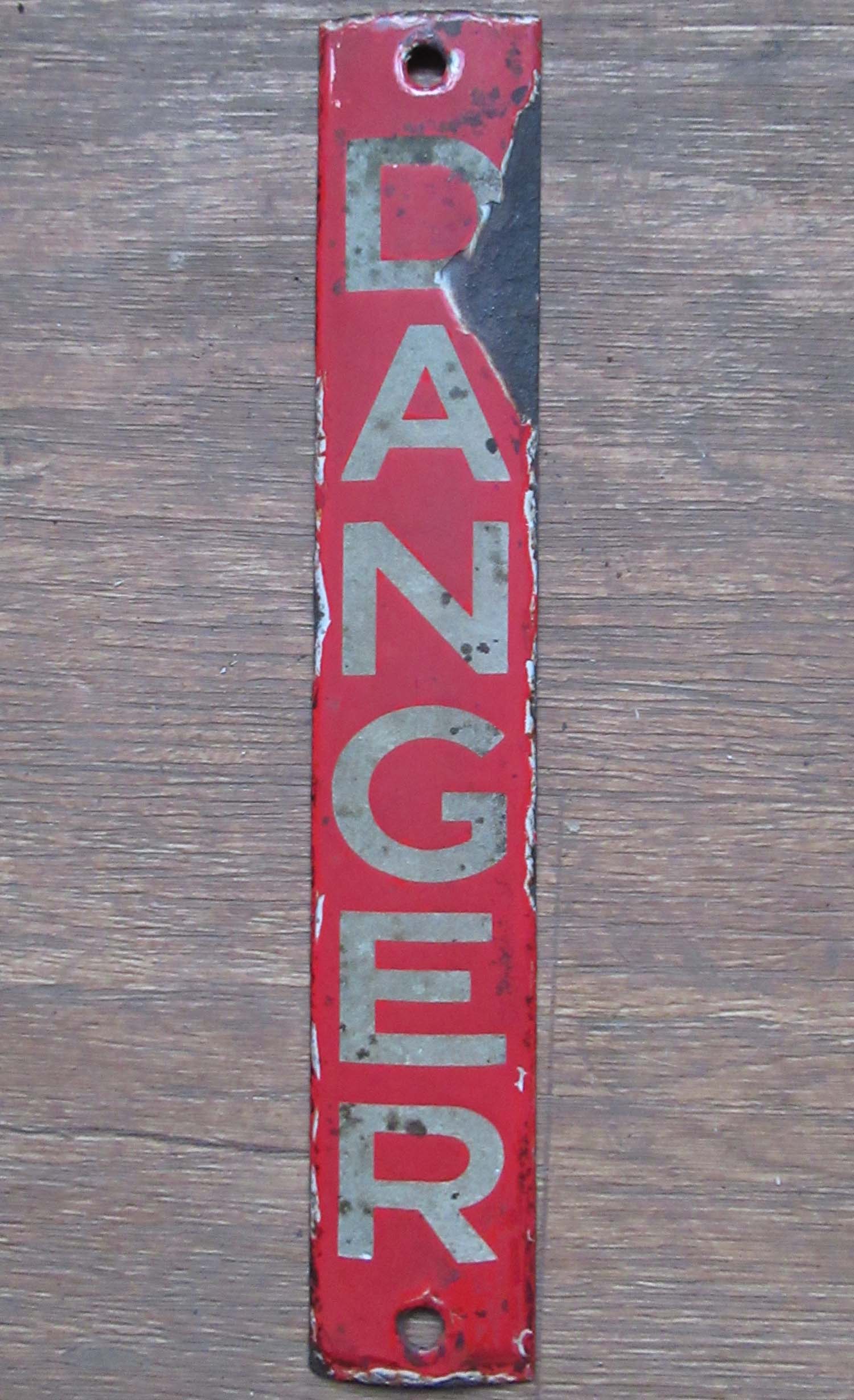 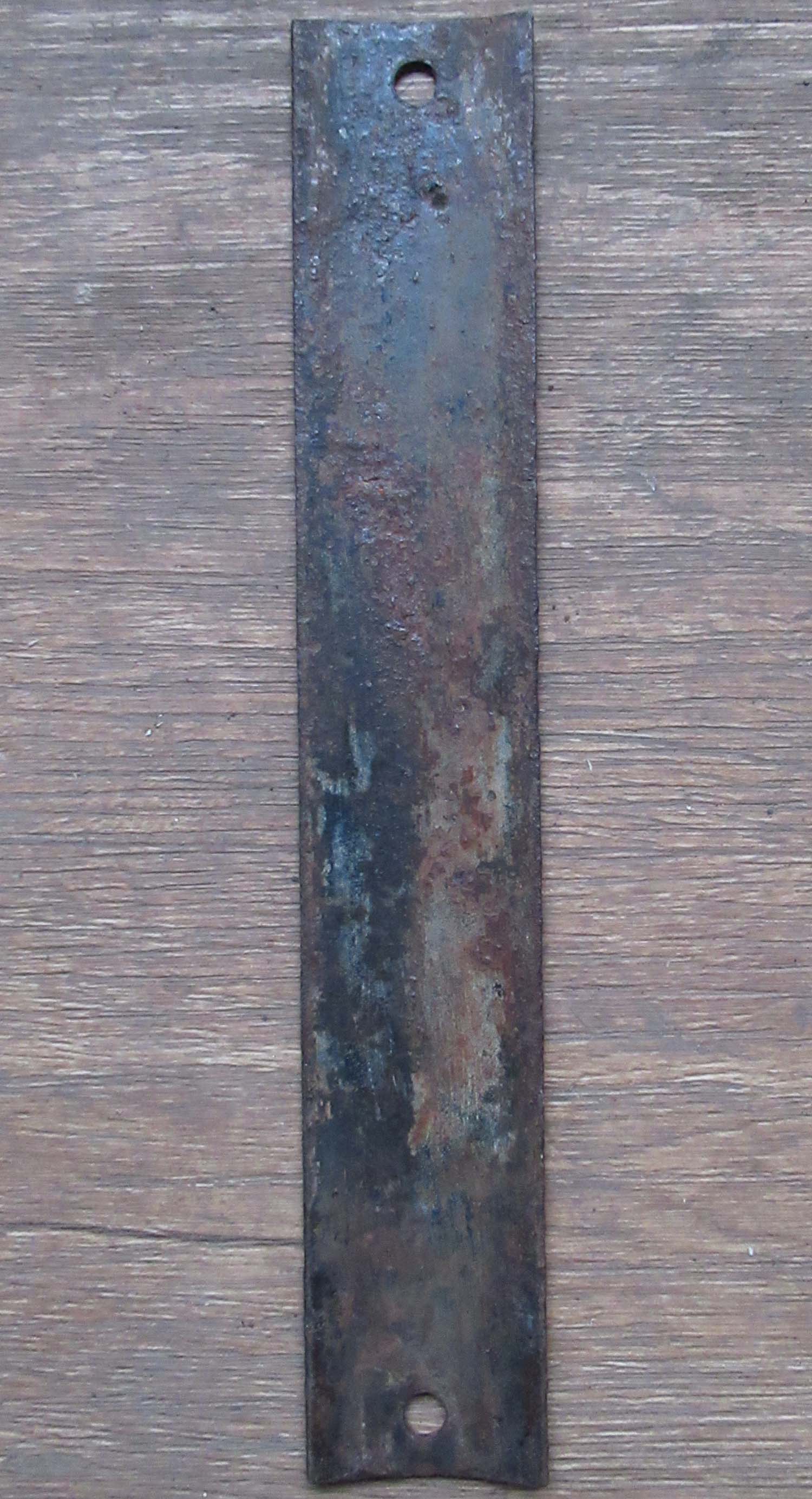
|
|
Click on
picture to enlarge
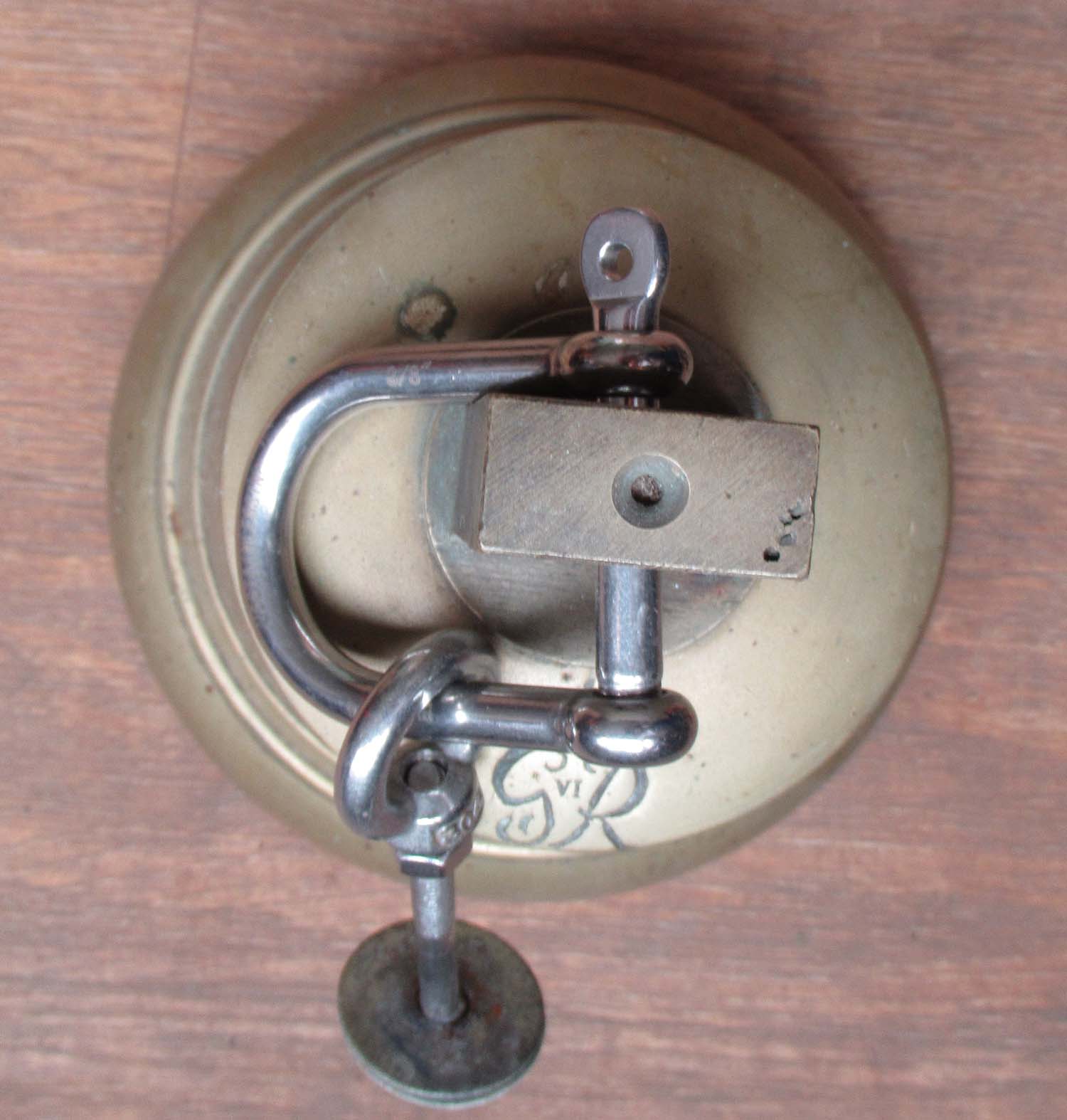
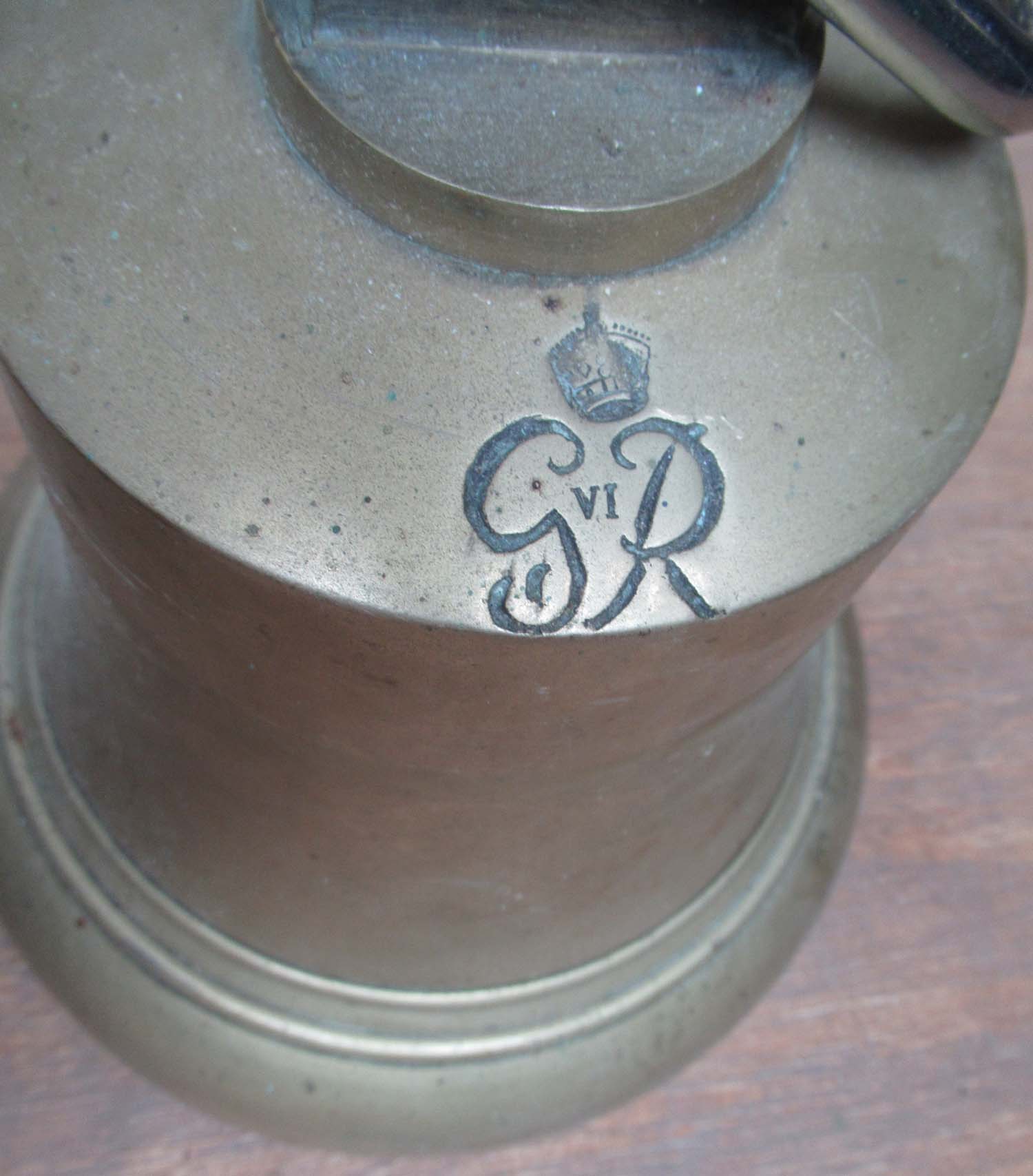
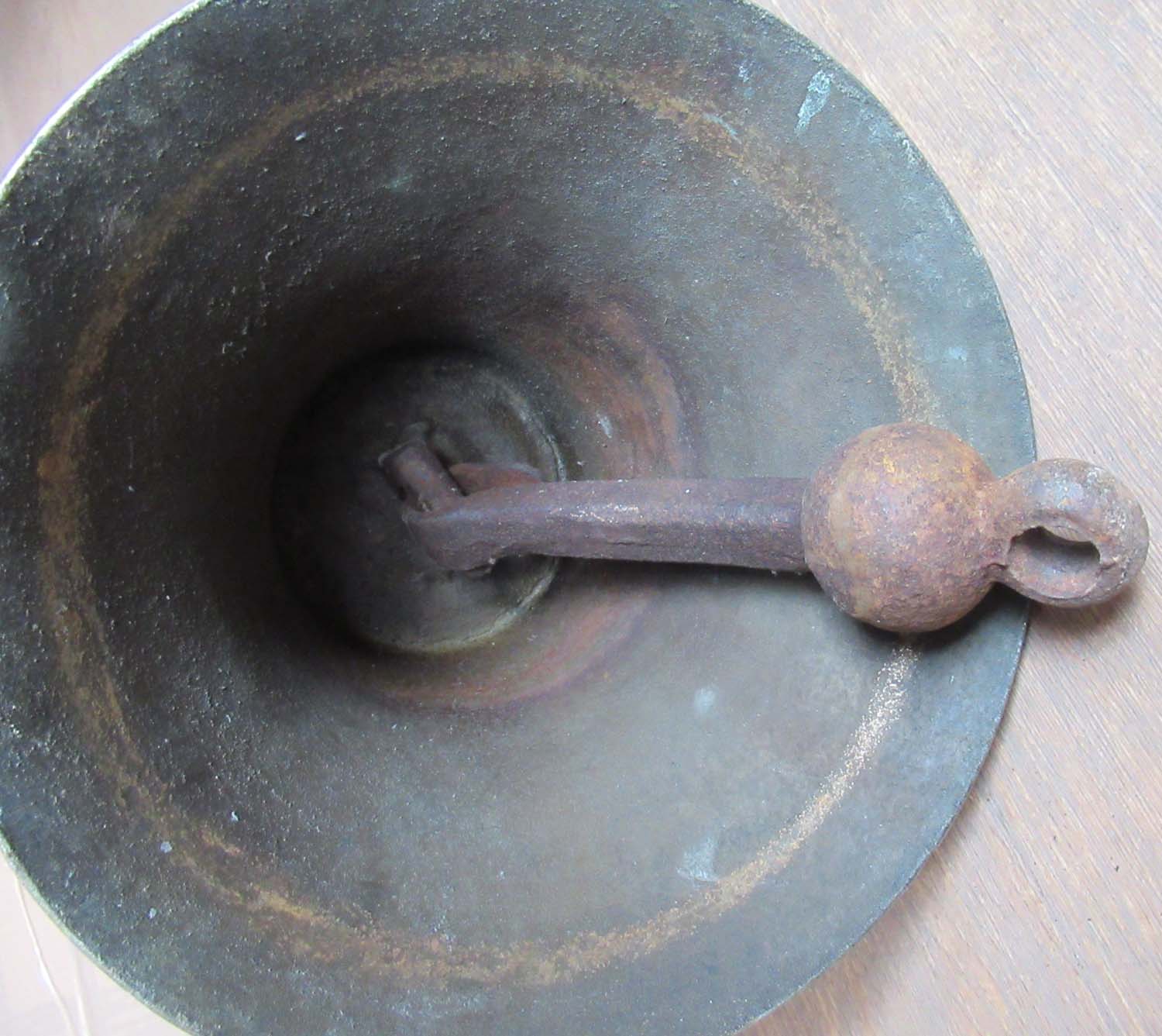
|
George VI
Scramble Bell 2 (No 34 Pg 1 Misc) World War 2
Scramble
Bell - stamped with the Kings Crown and GVIR.
Very large, so very heavy - weight is
approximately 8kg.
Size: overall height base to shoulder is
10 1/2", diameter is 9 1/2" at Bell opening and 4 1/2" diameter at
the top.
Used by the RAF at squadron bases to
alert air crew into action.
This comes complete with the 'clapper' attached to the Bell.
In good original condition.
Click on
picture to enlarge
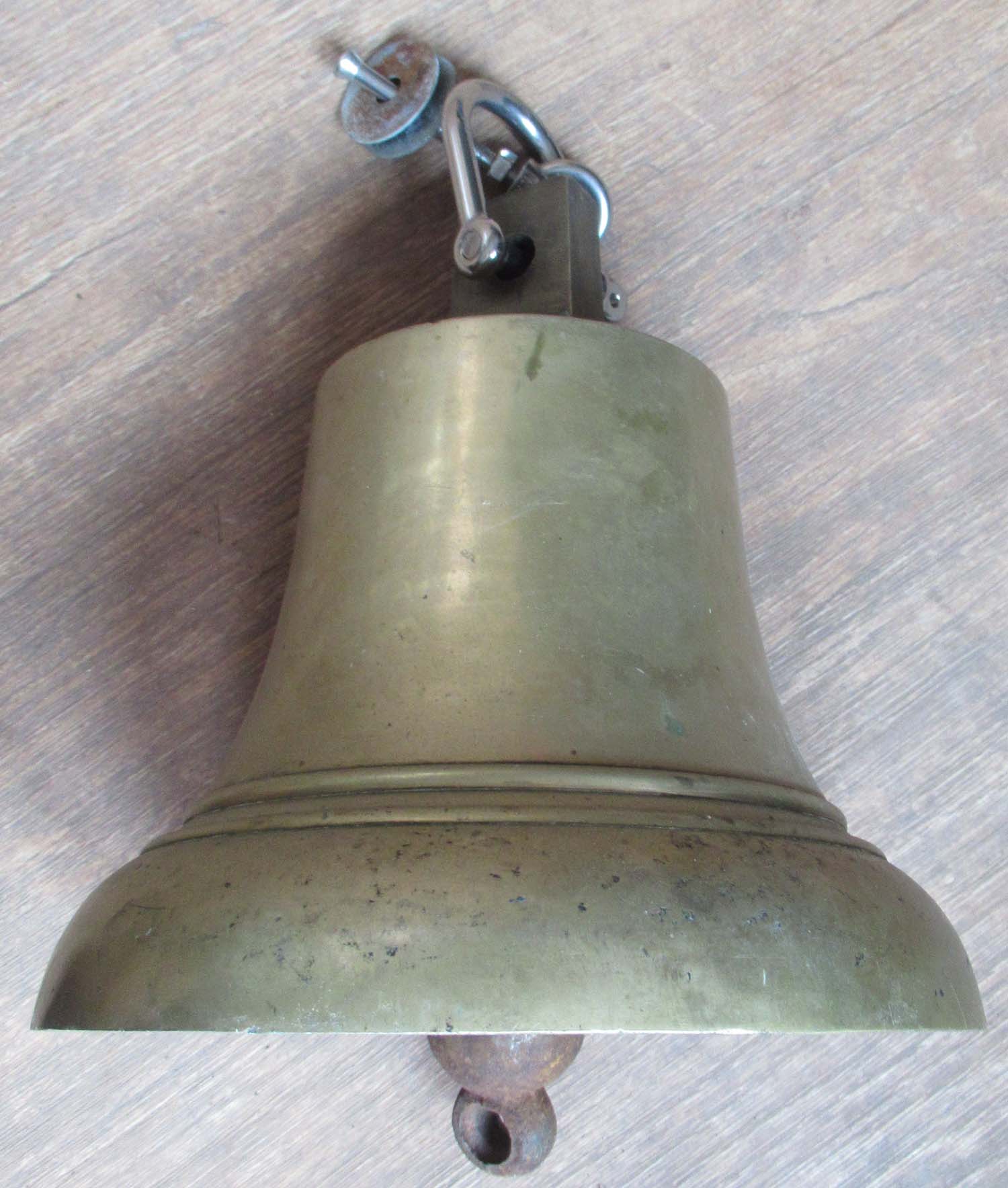
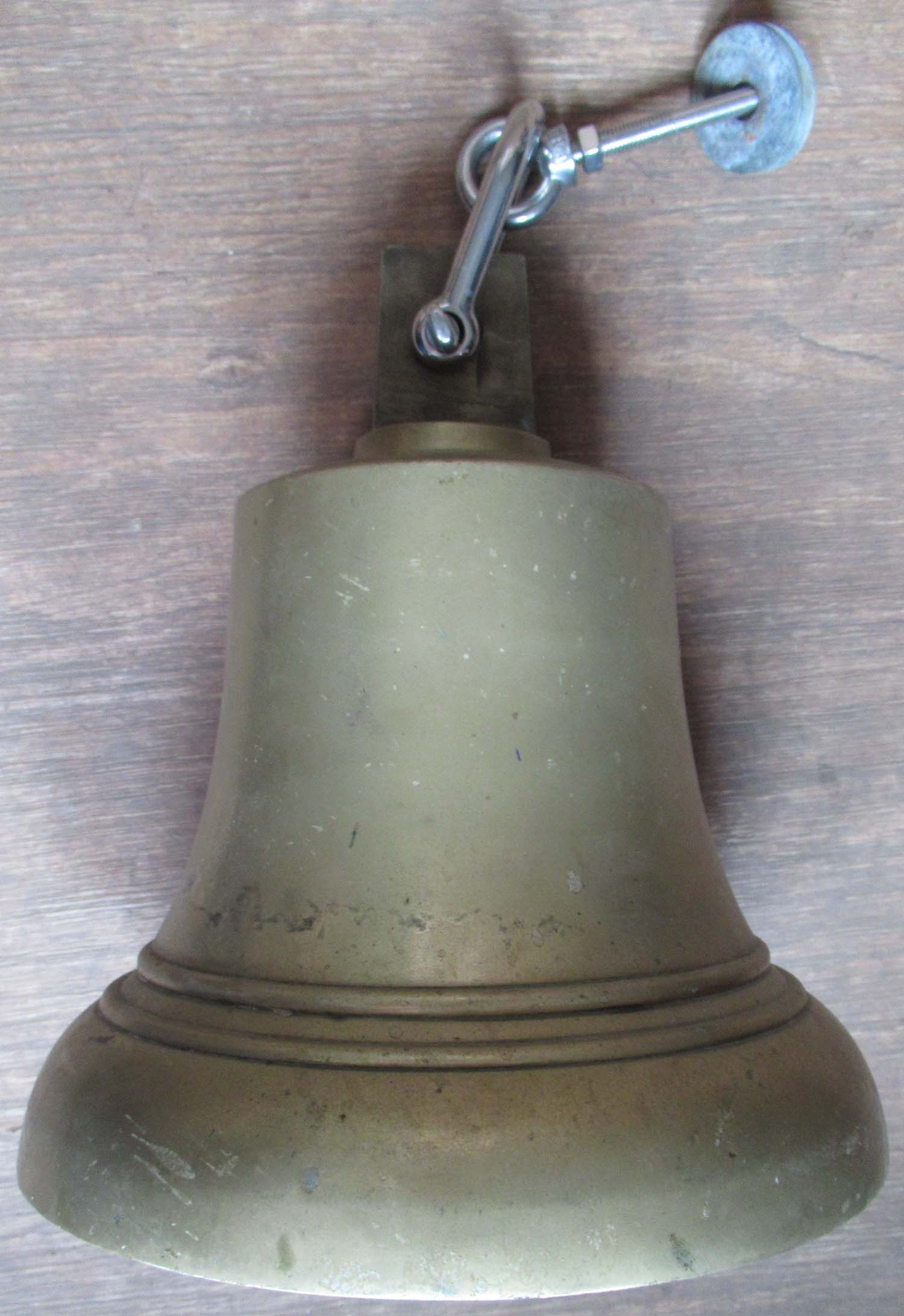
Out of stock more wanted please
contact me
|

















































































































































